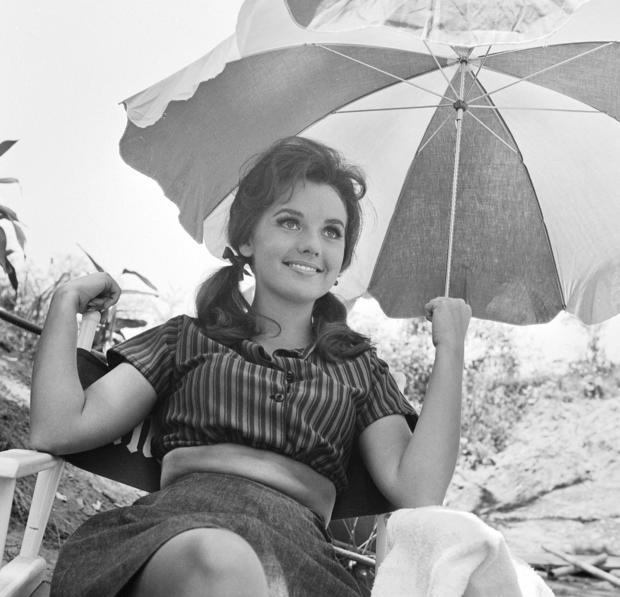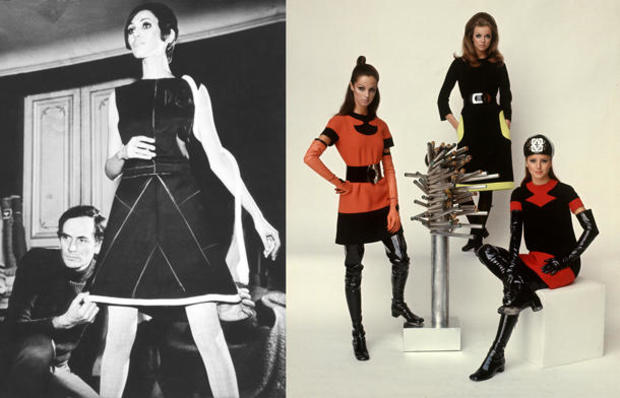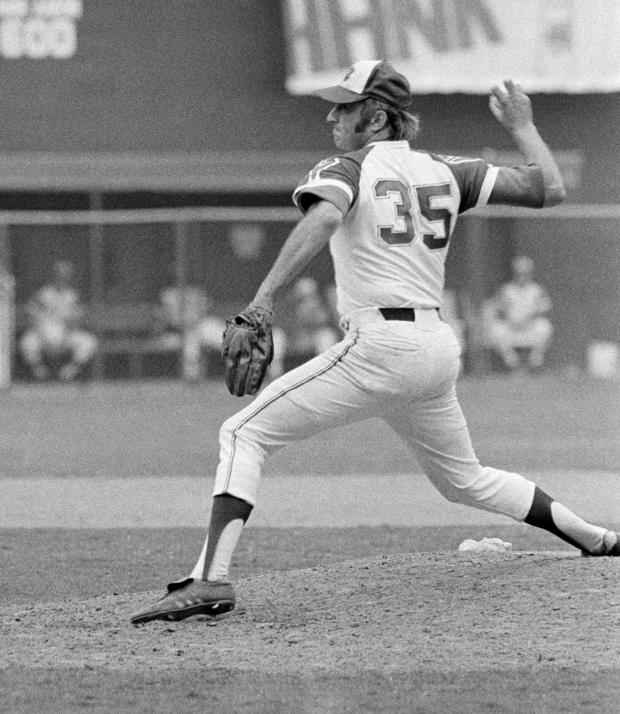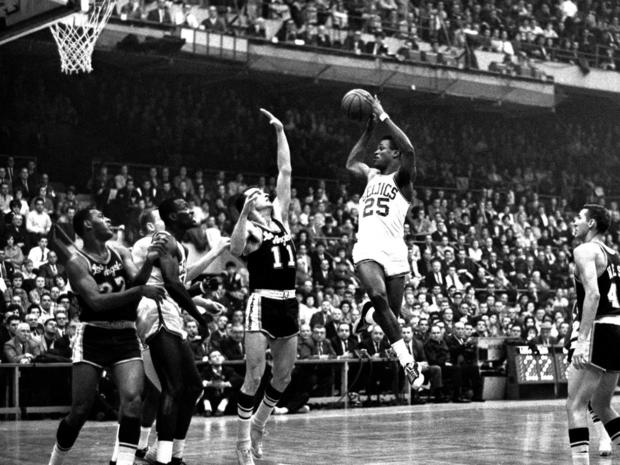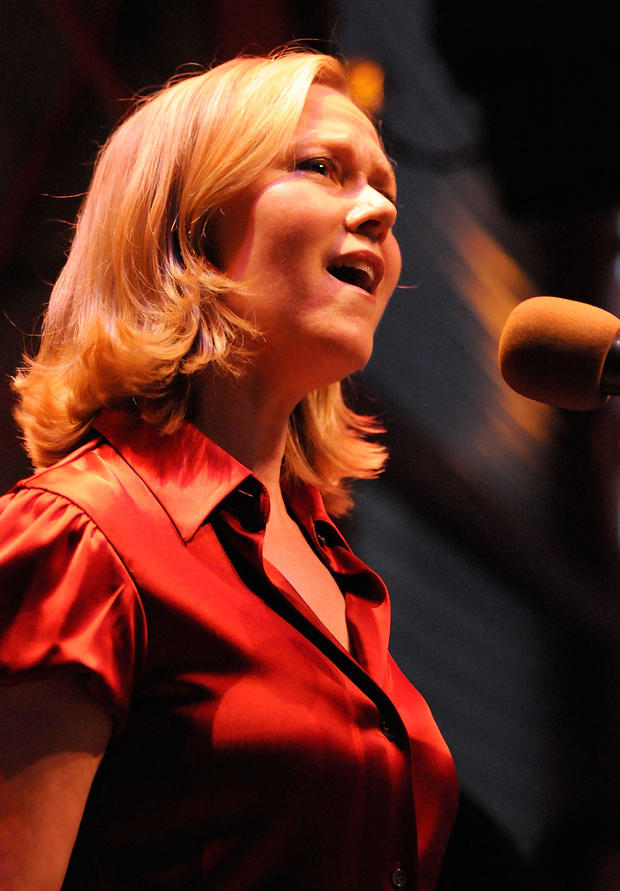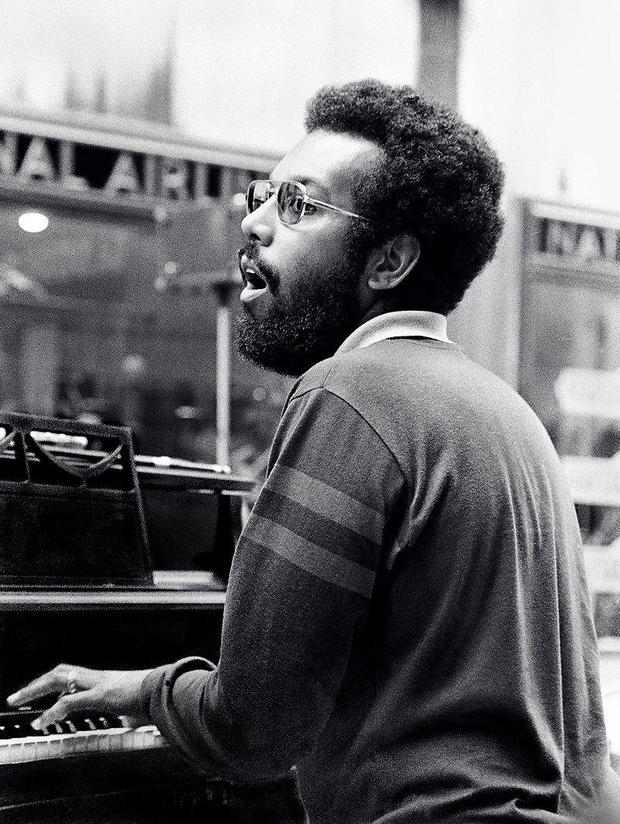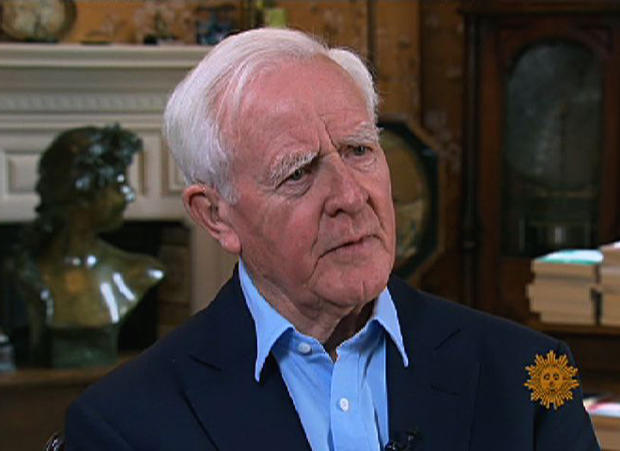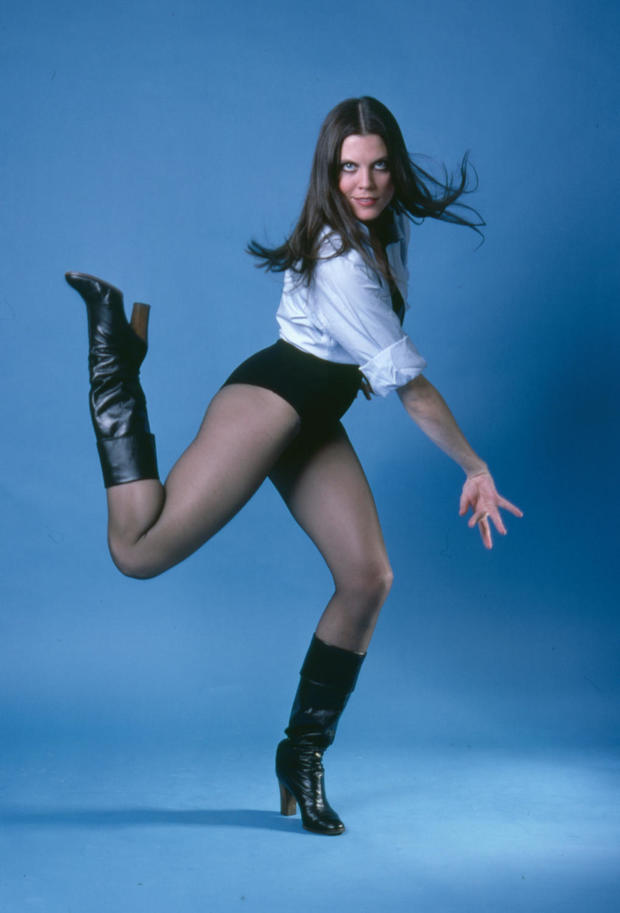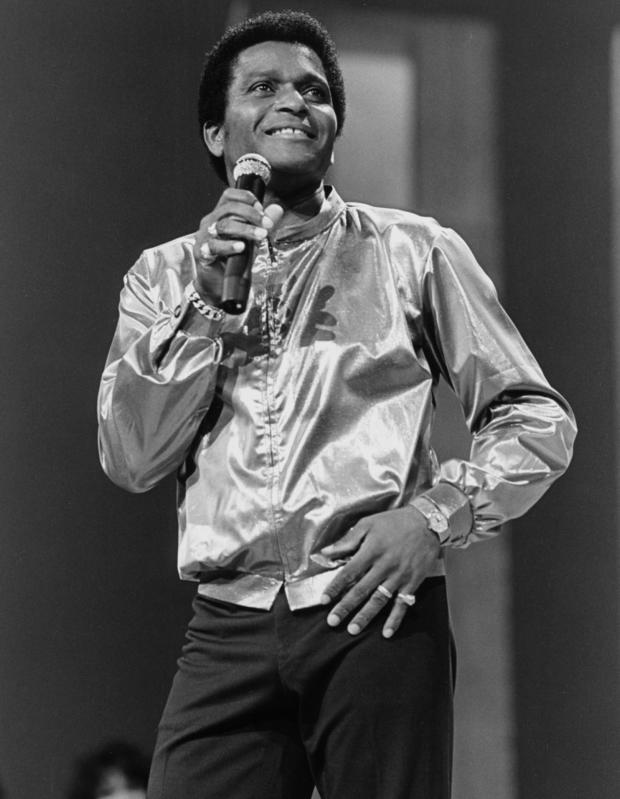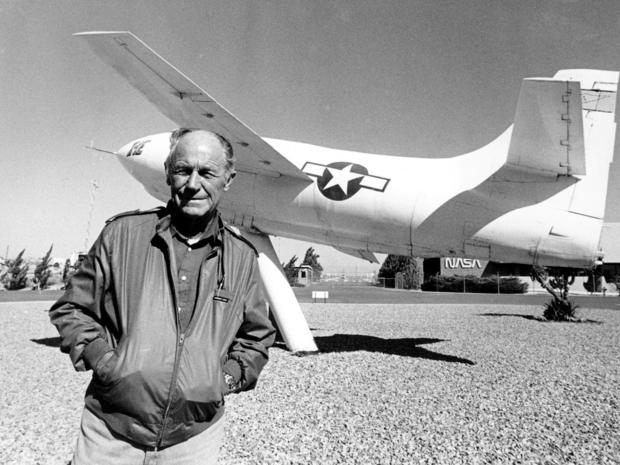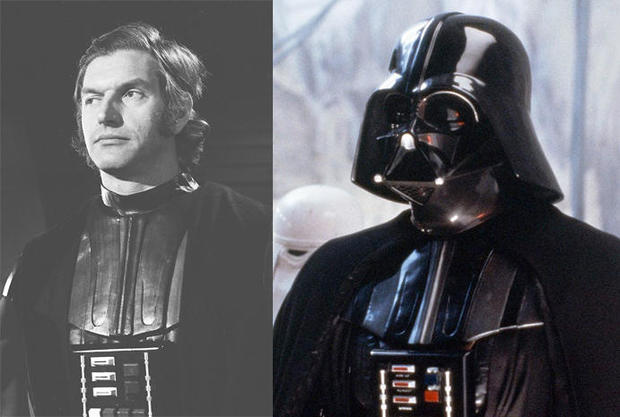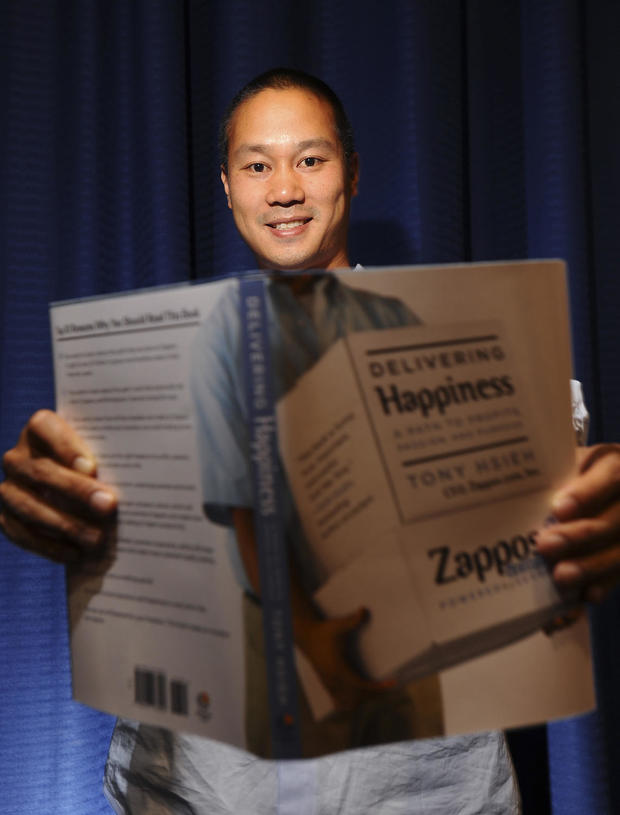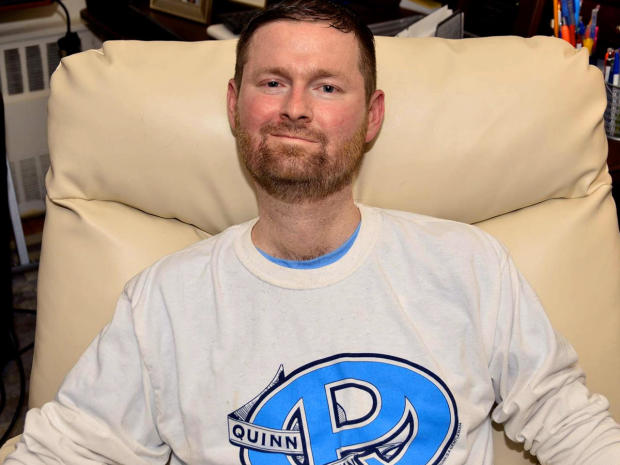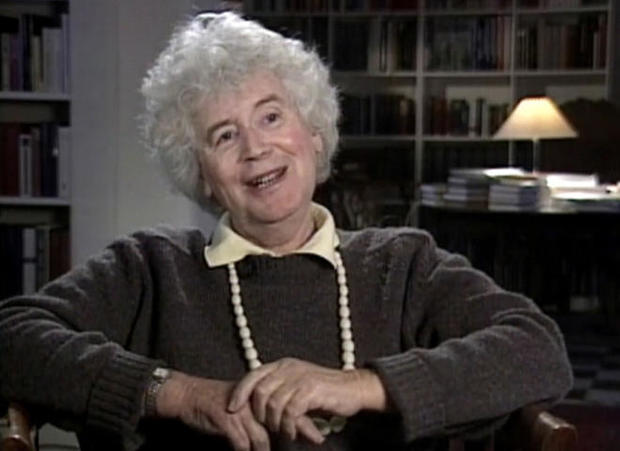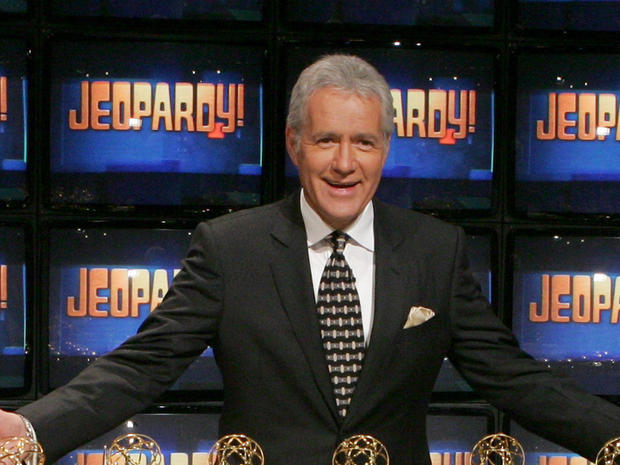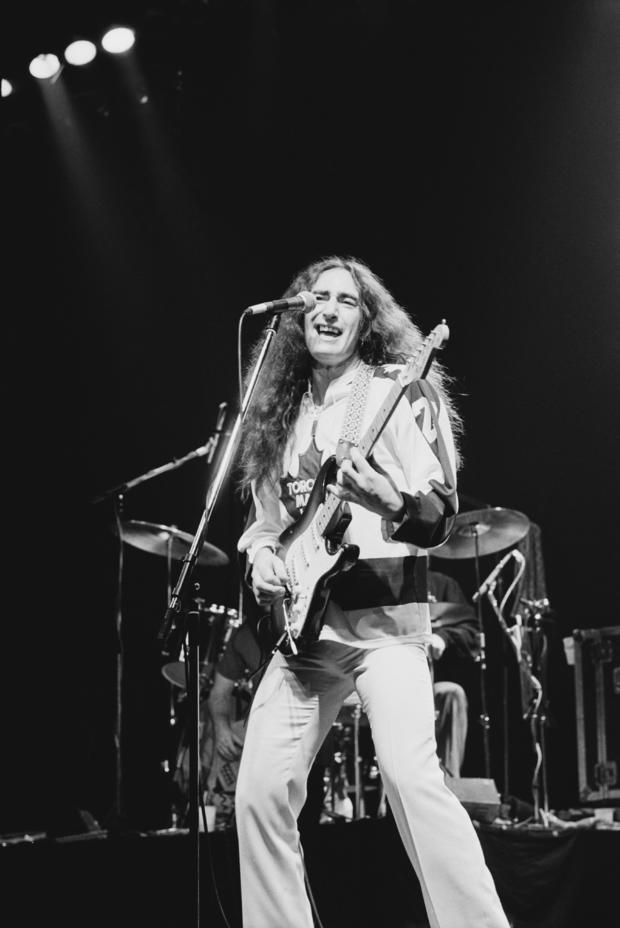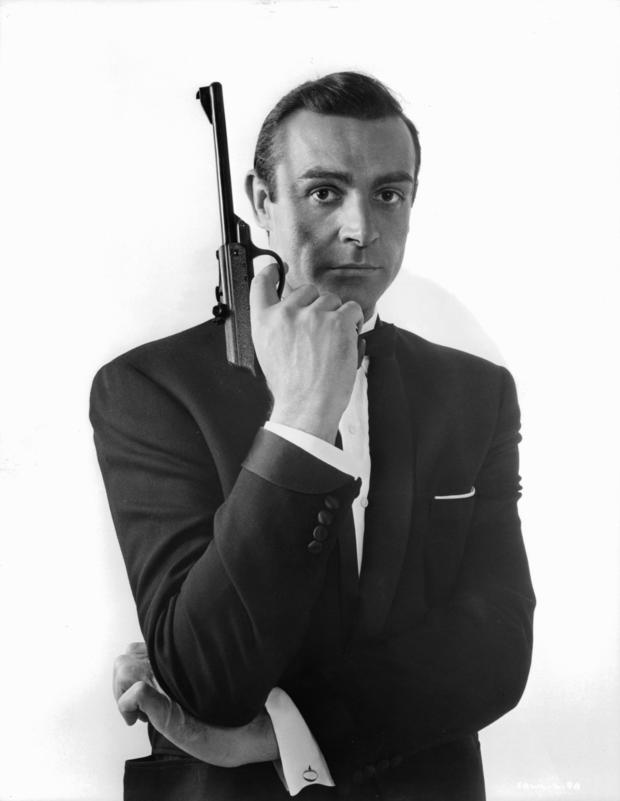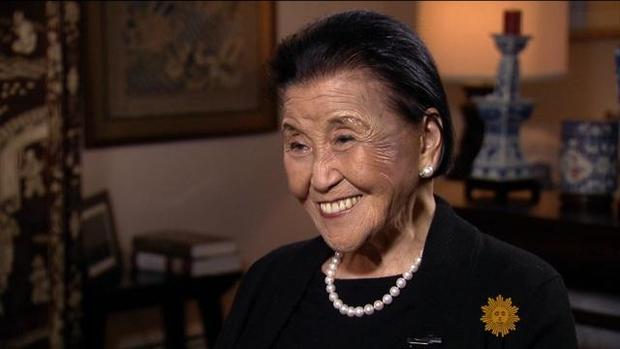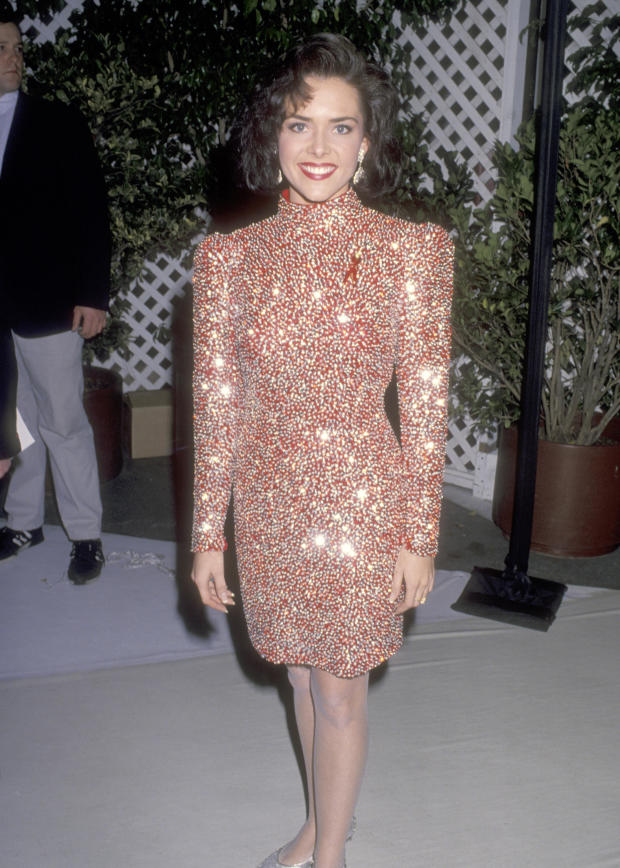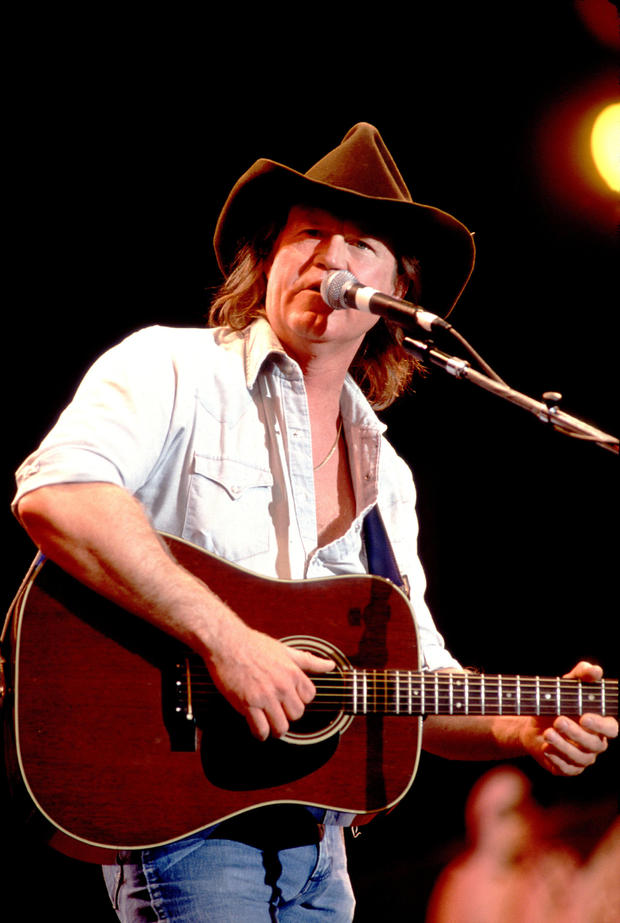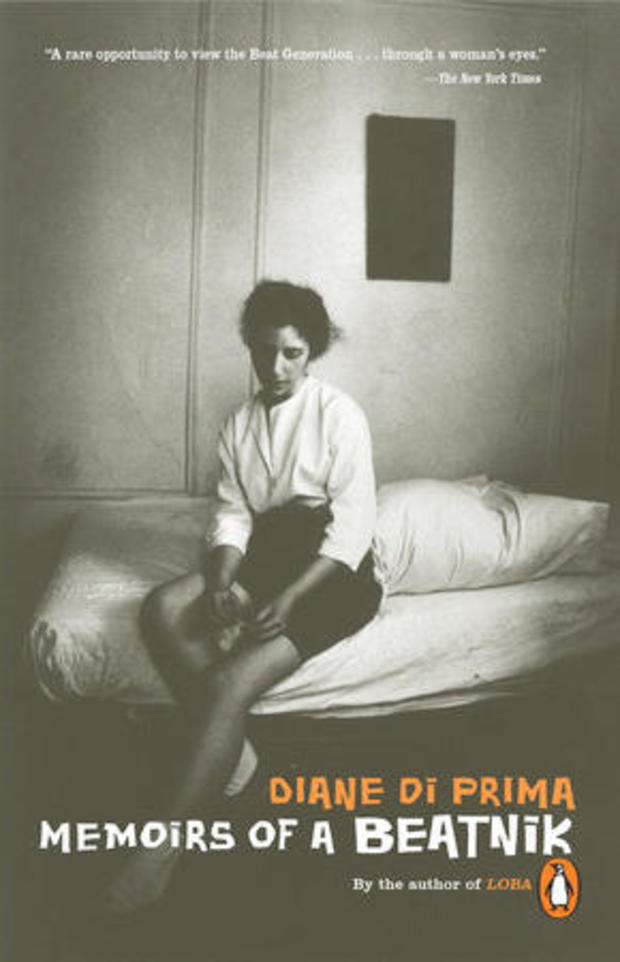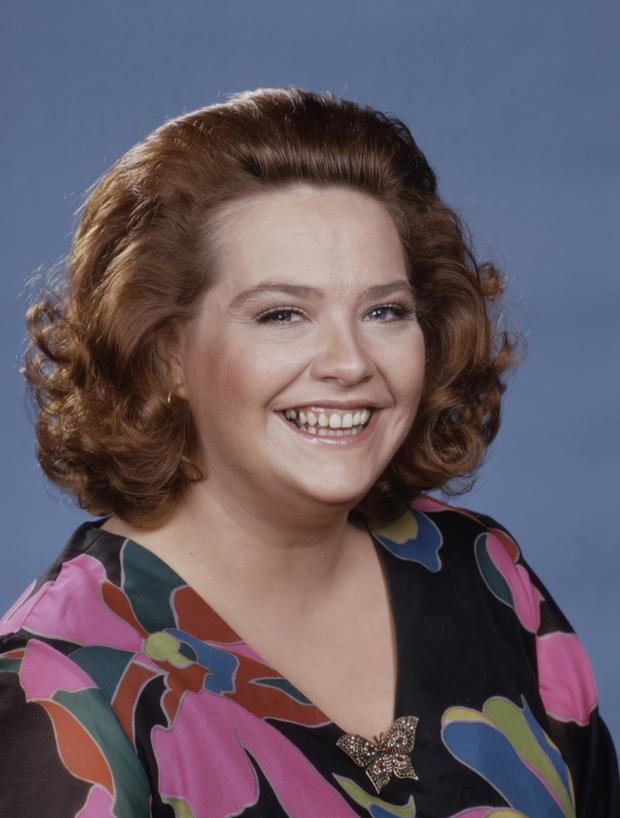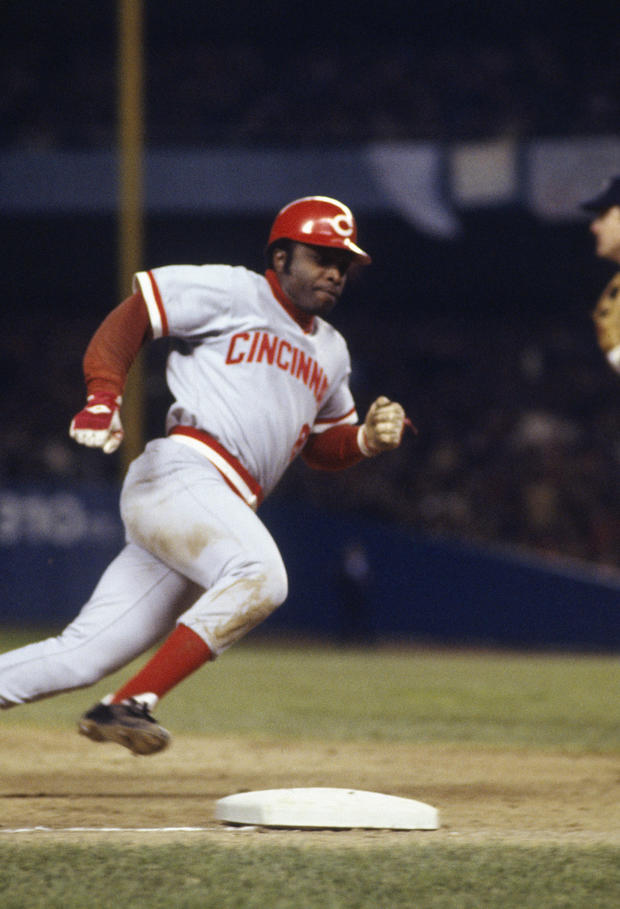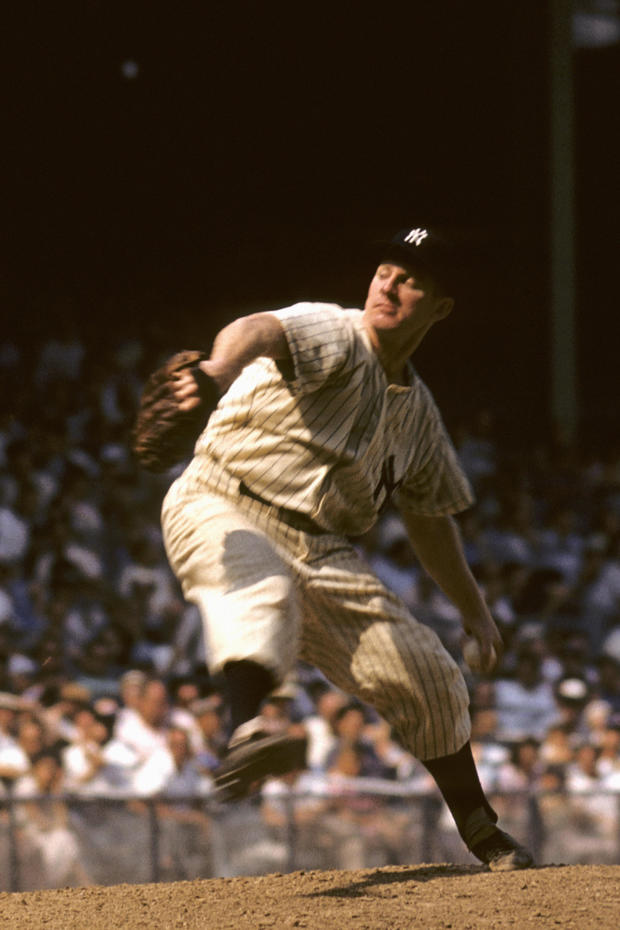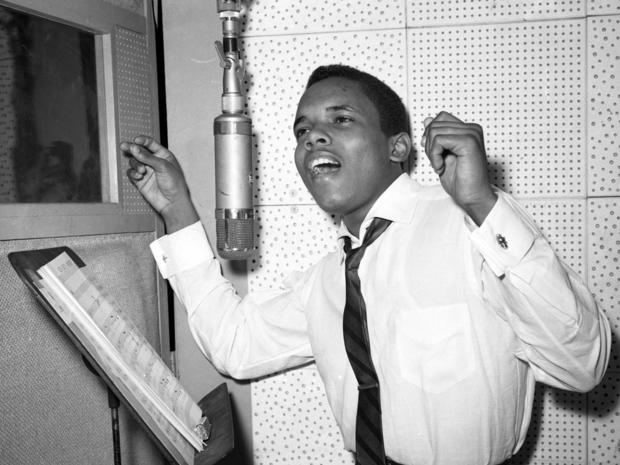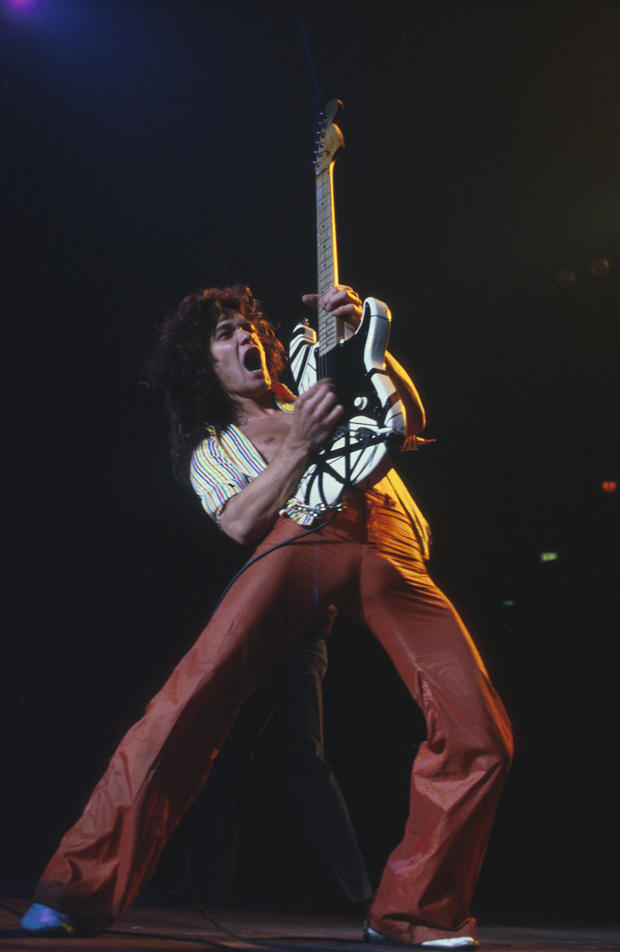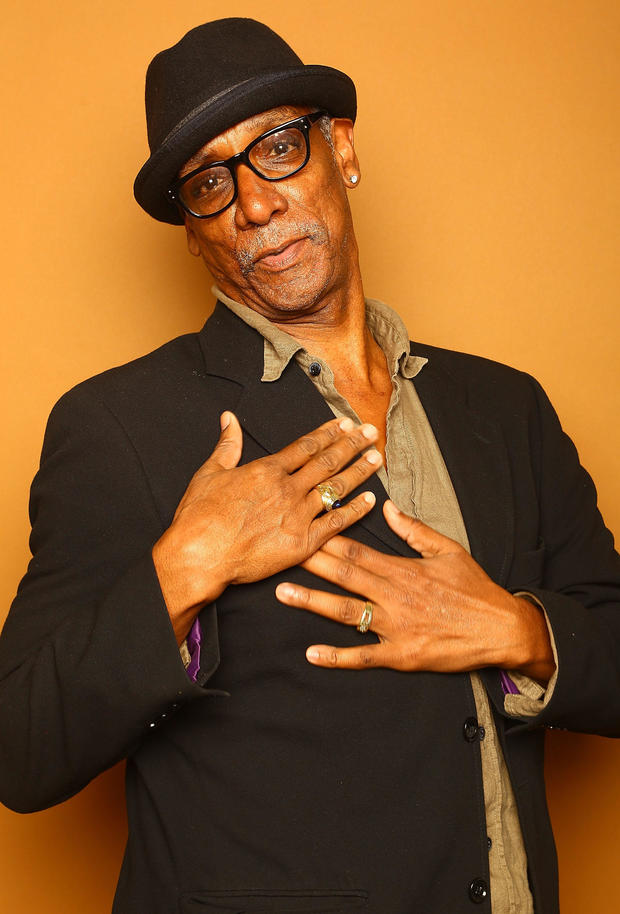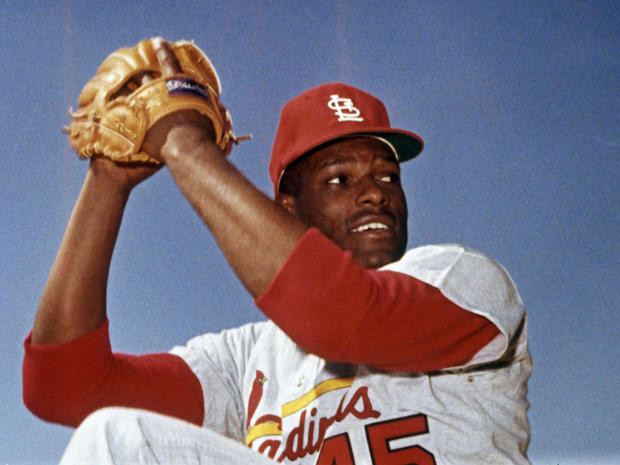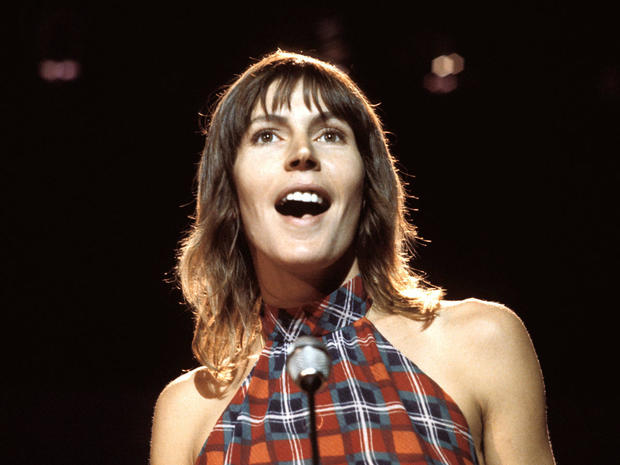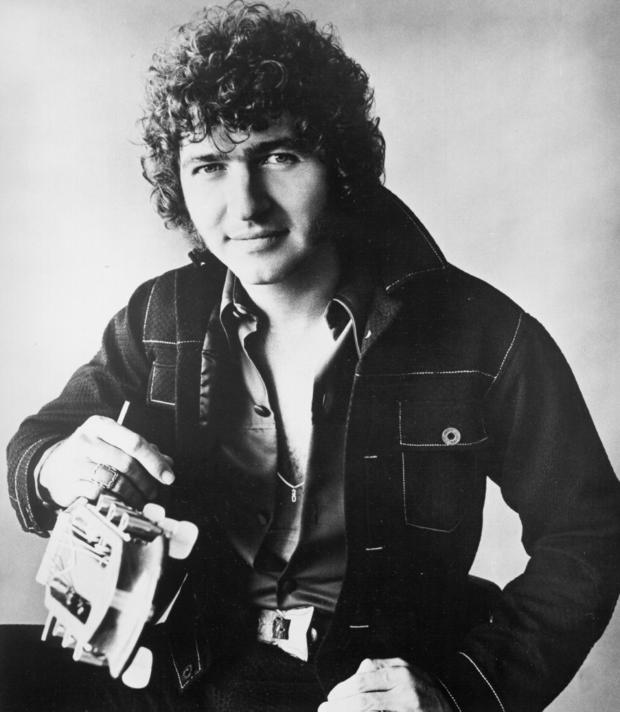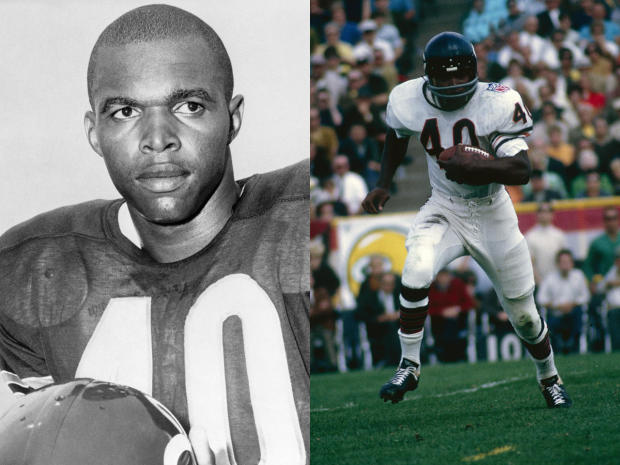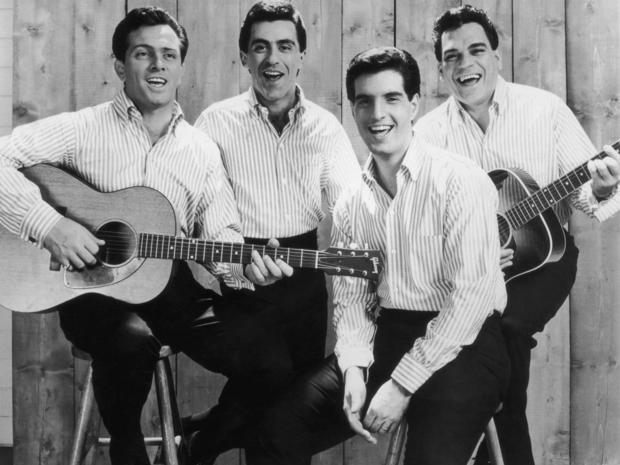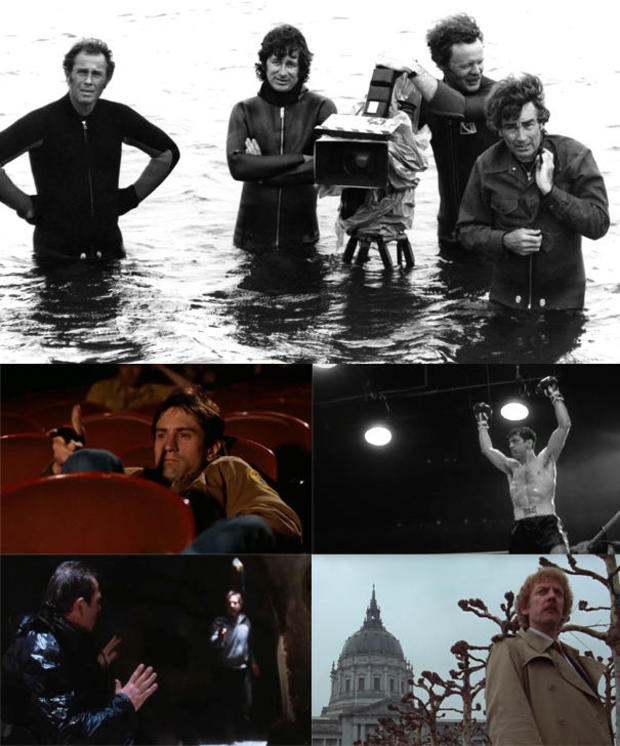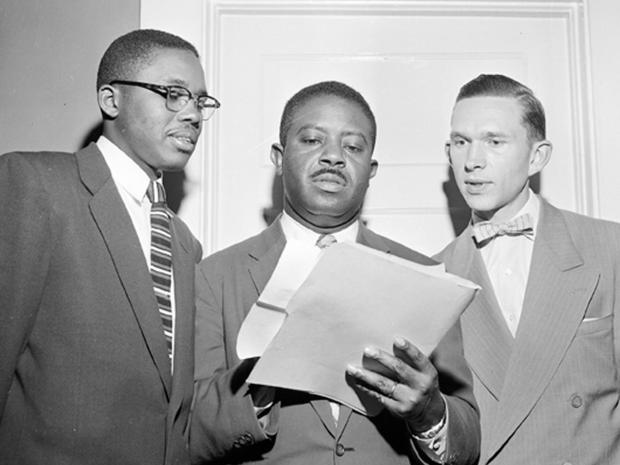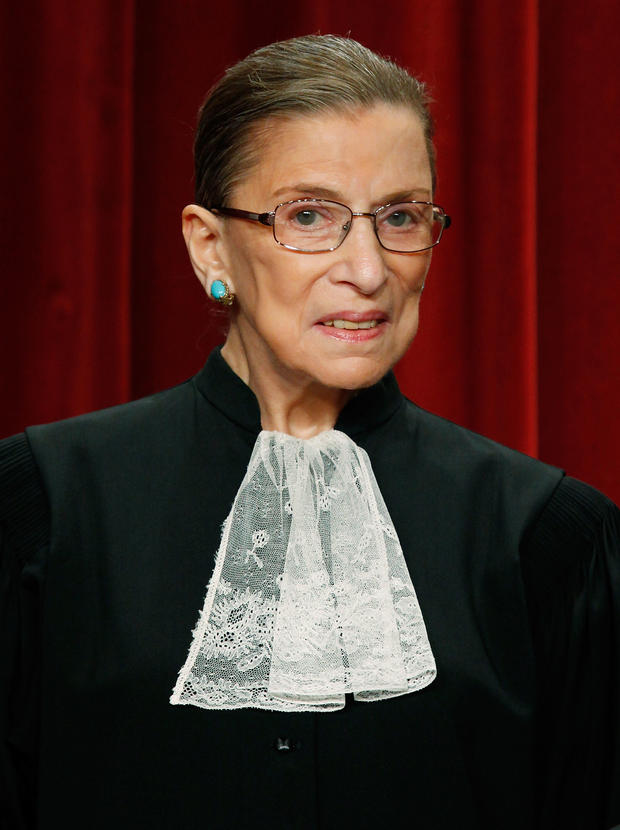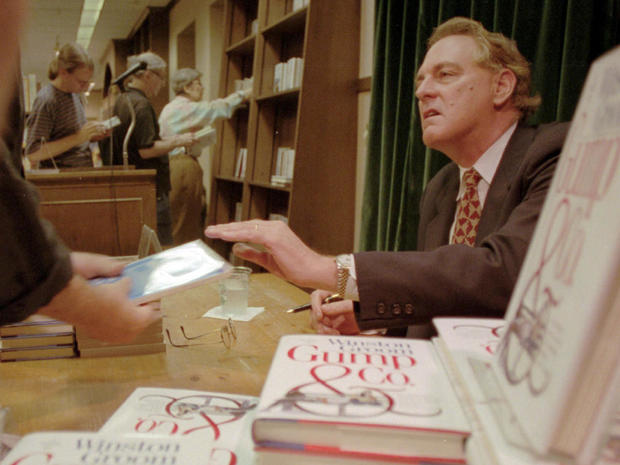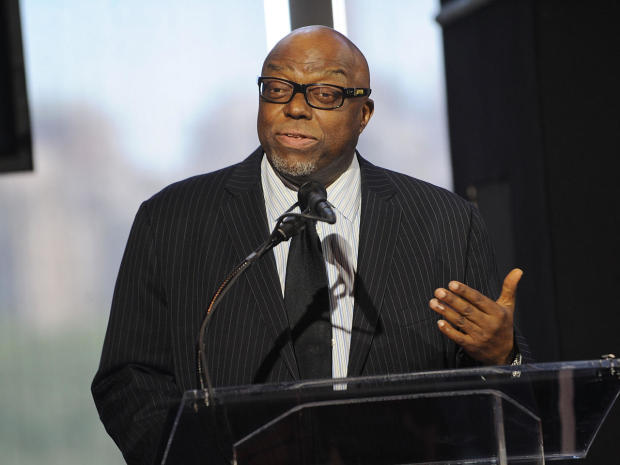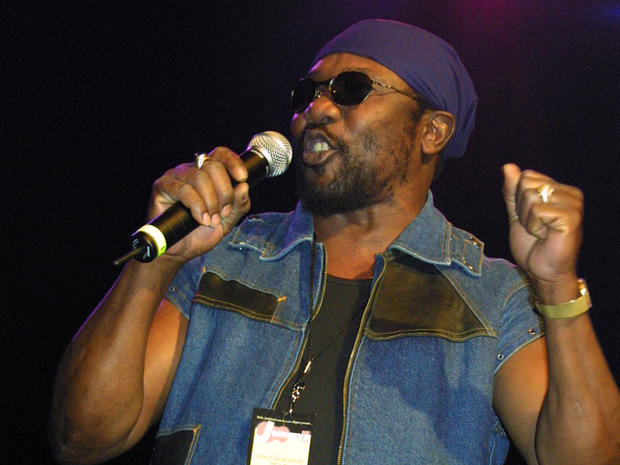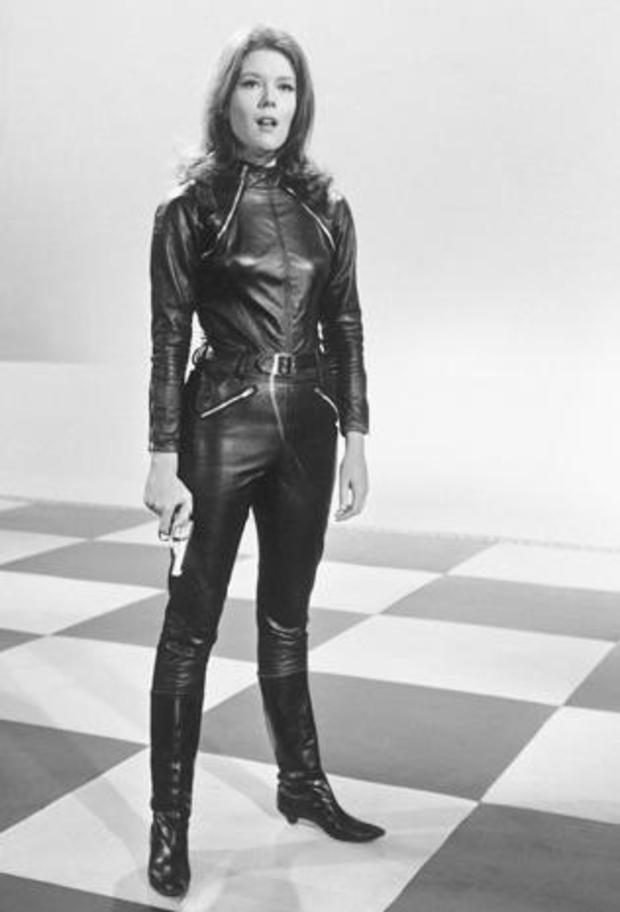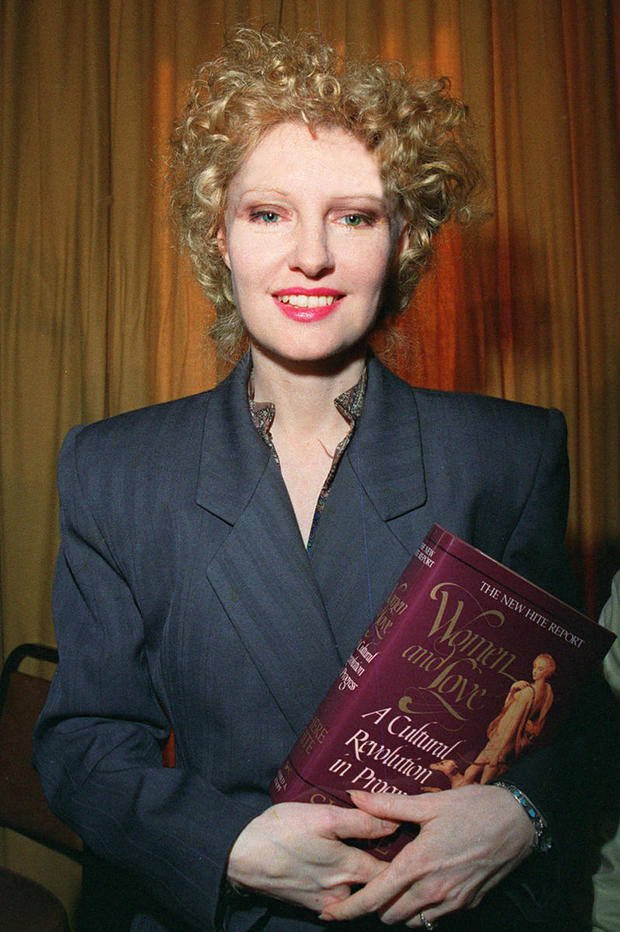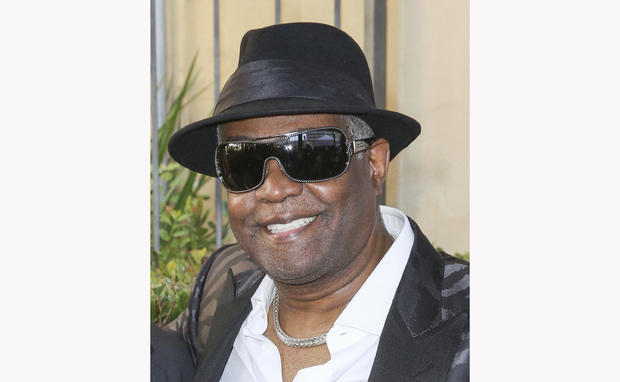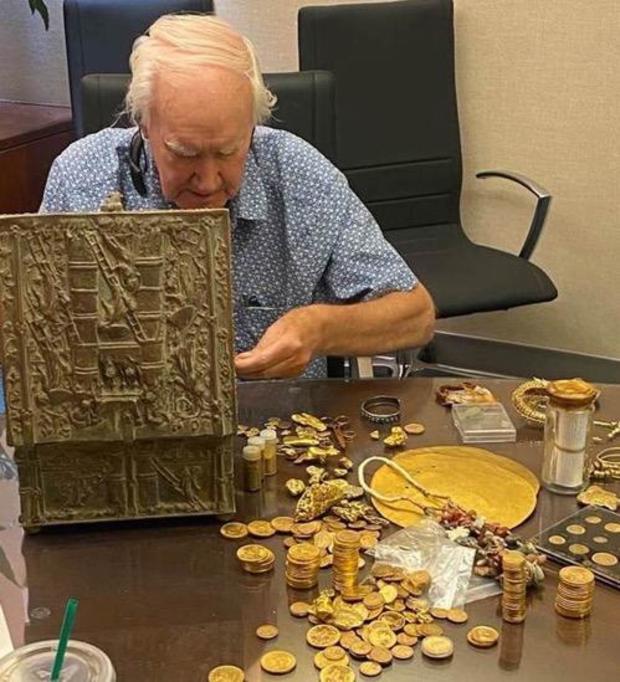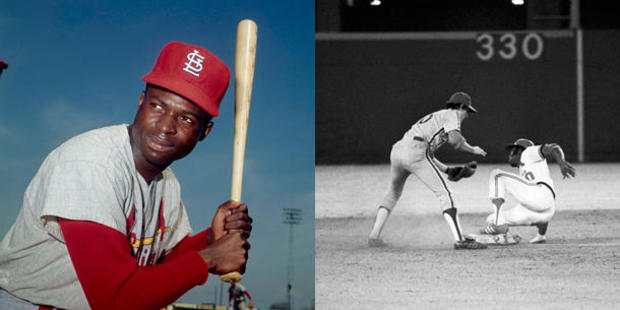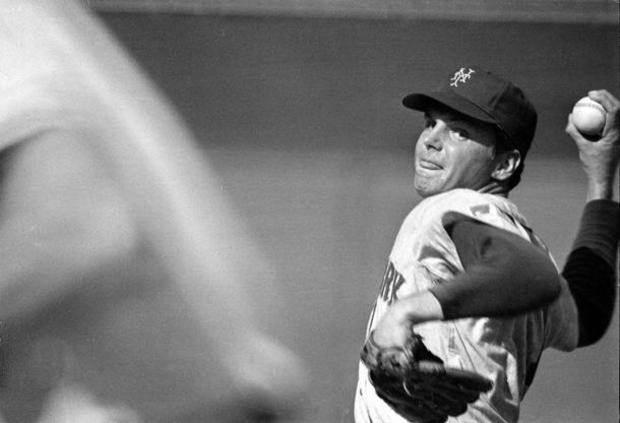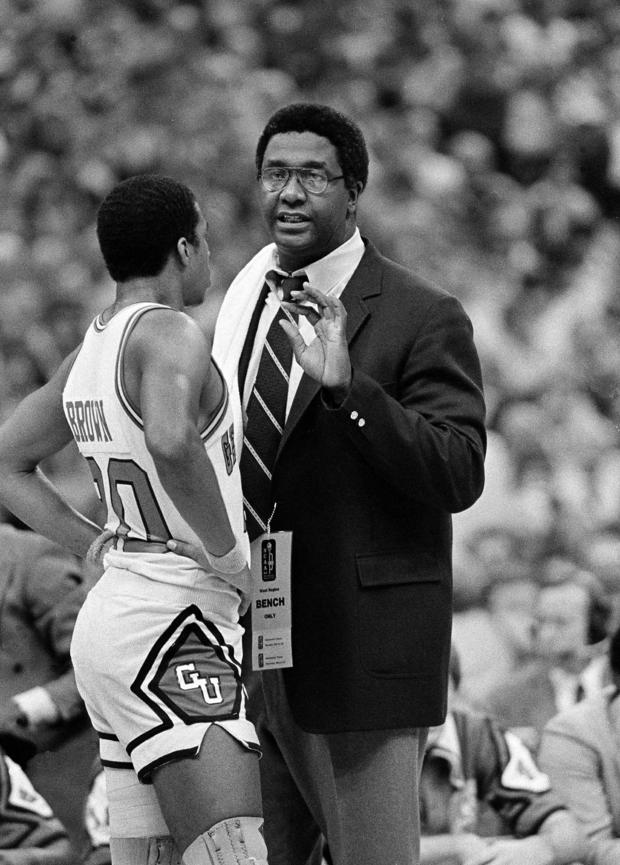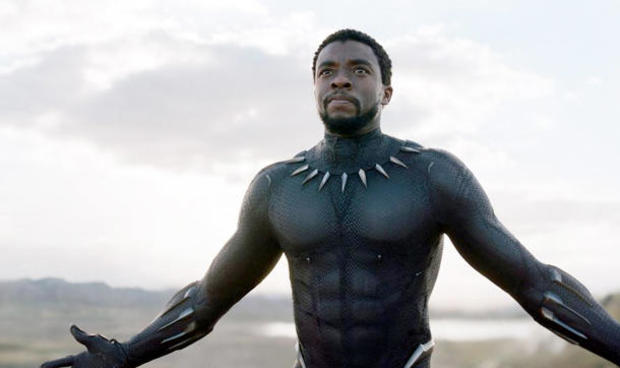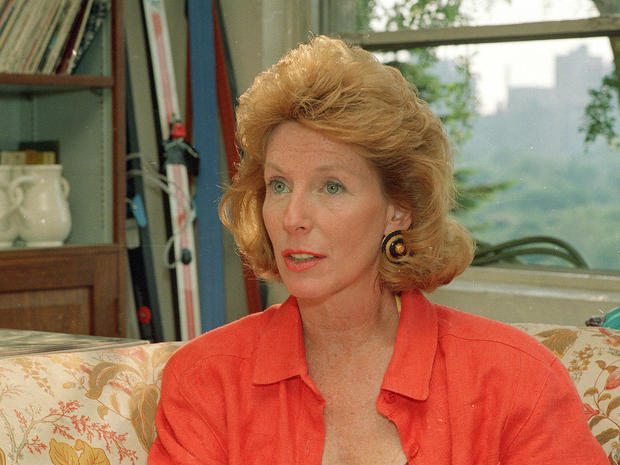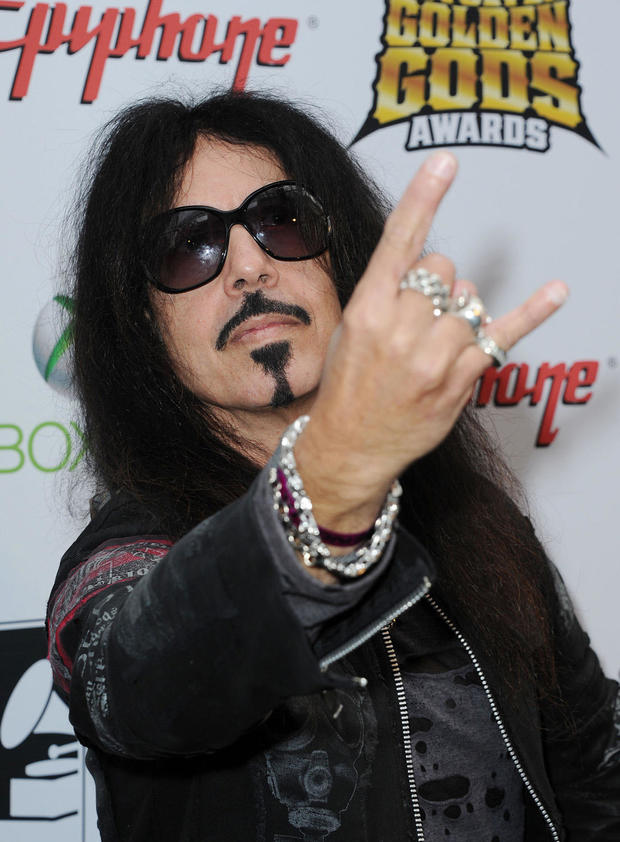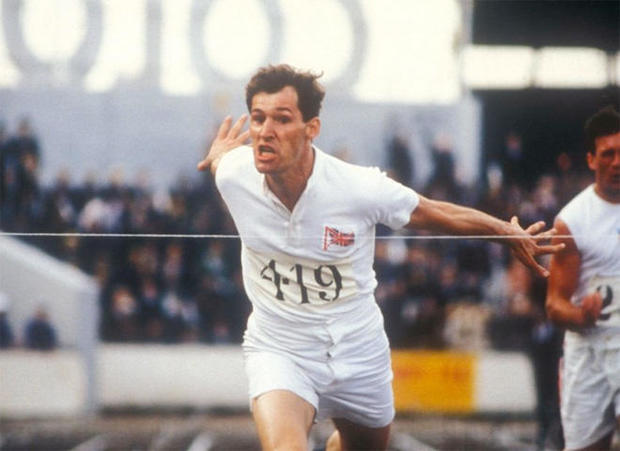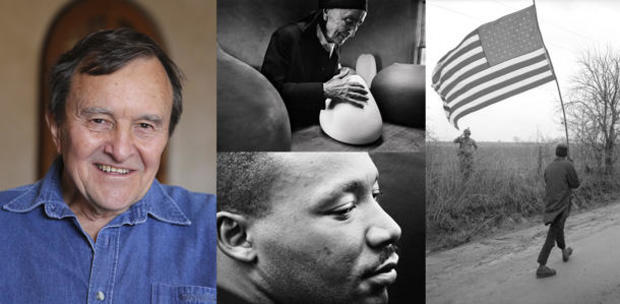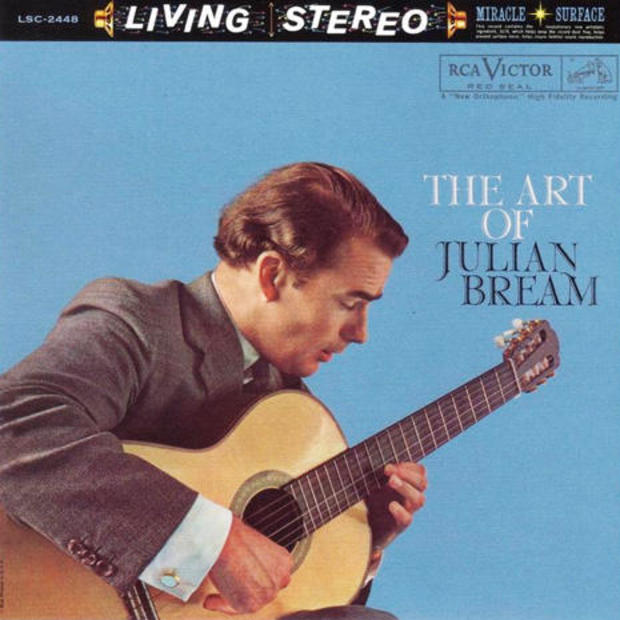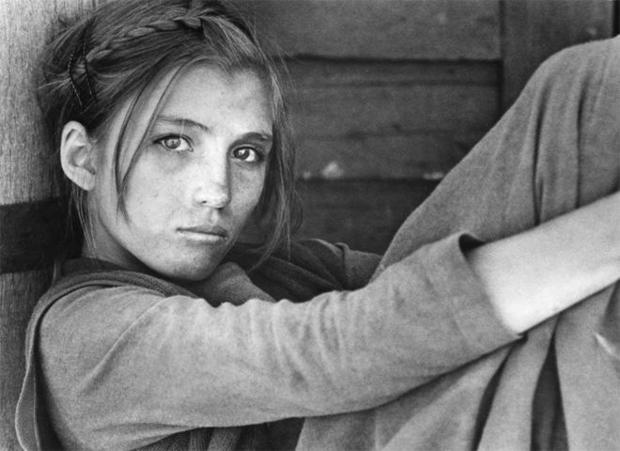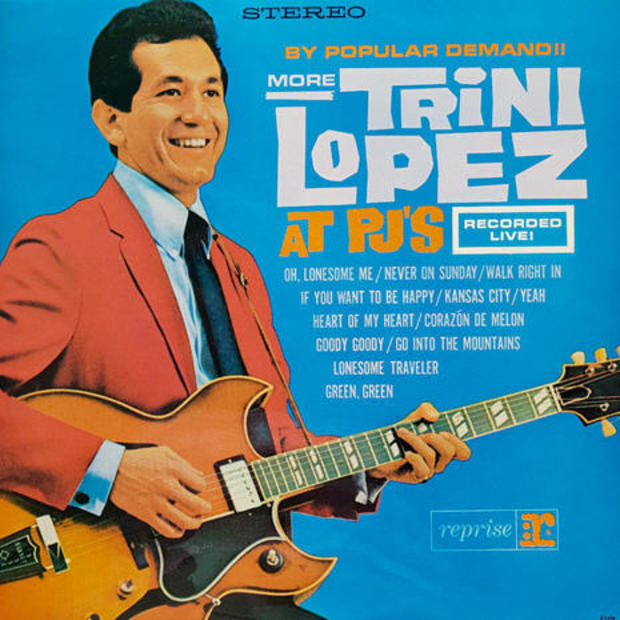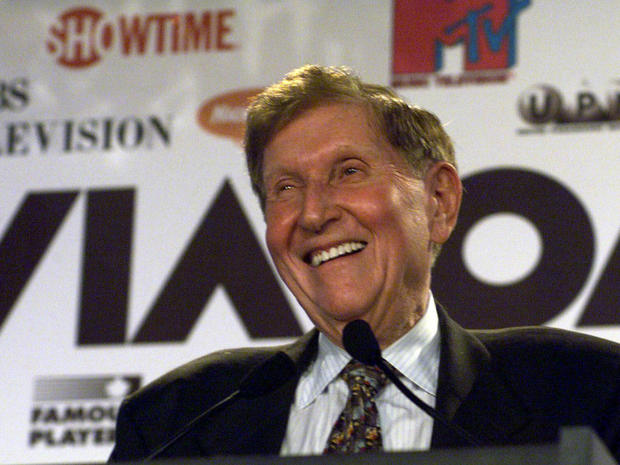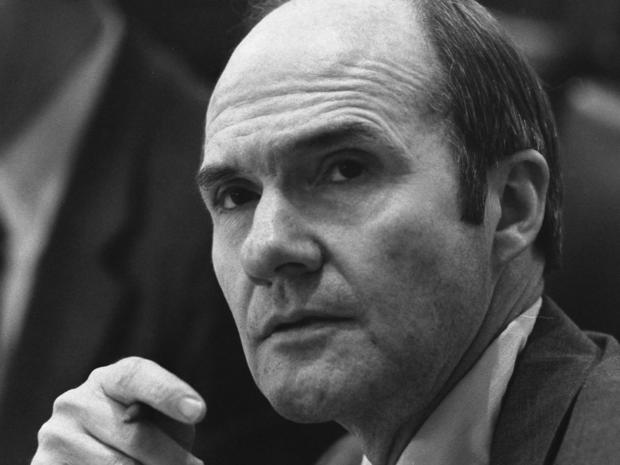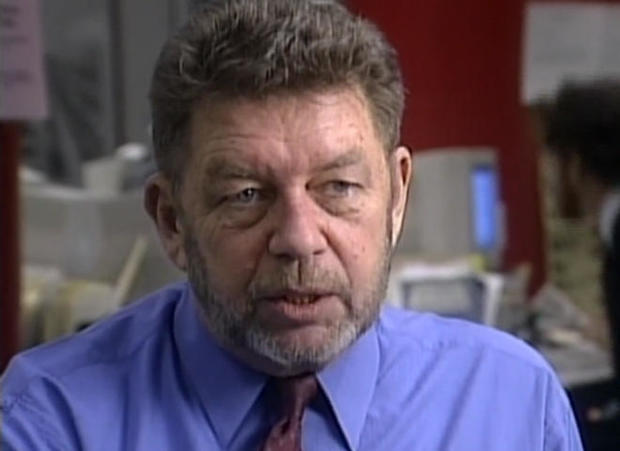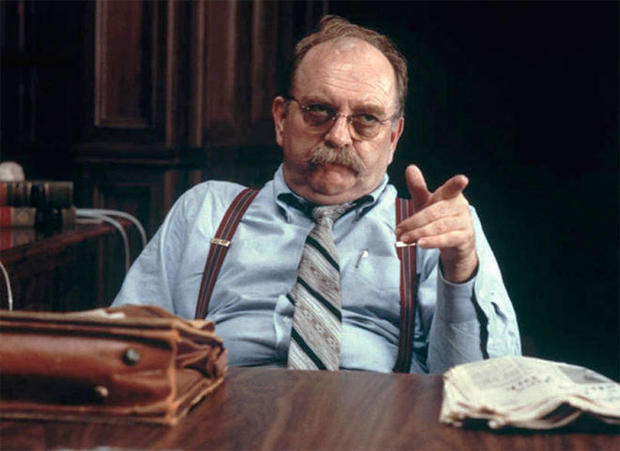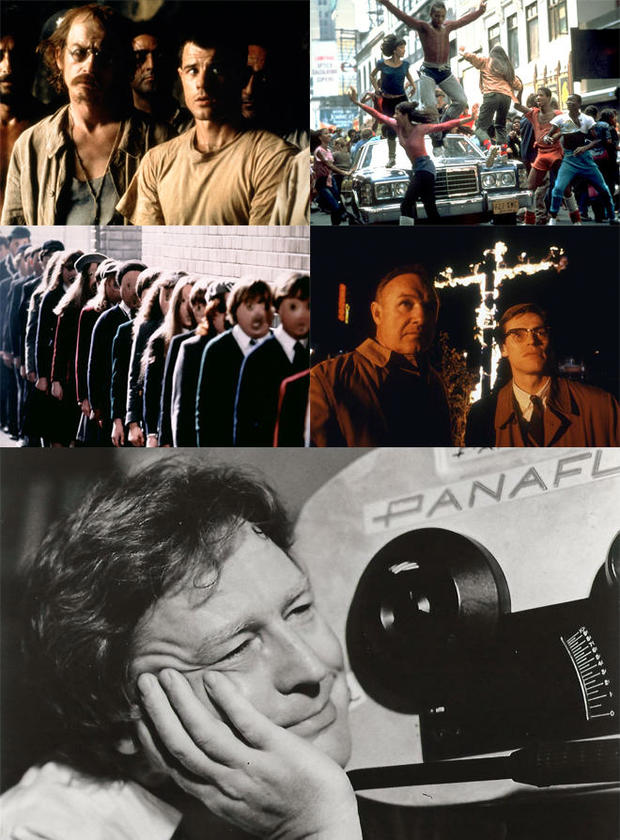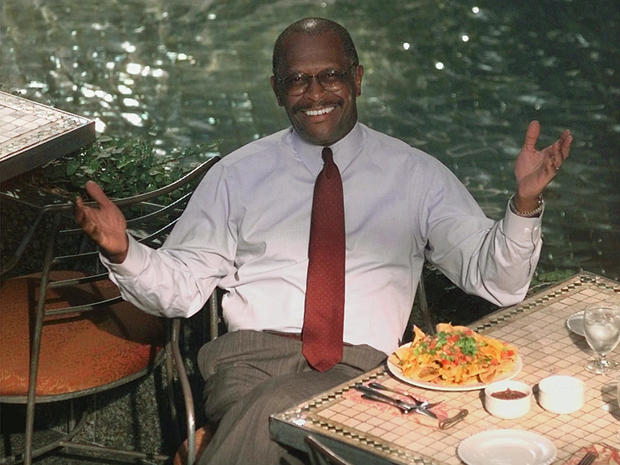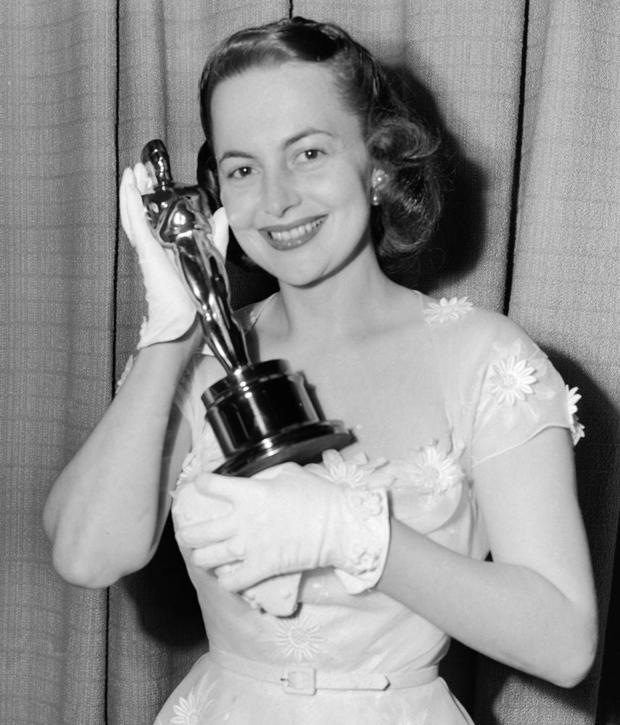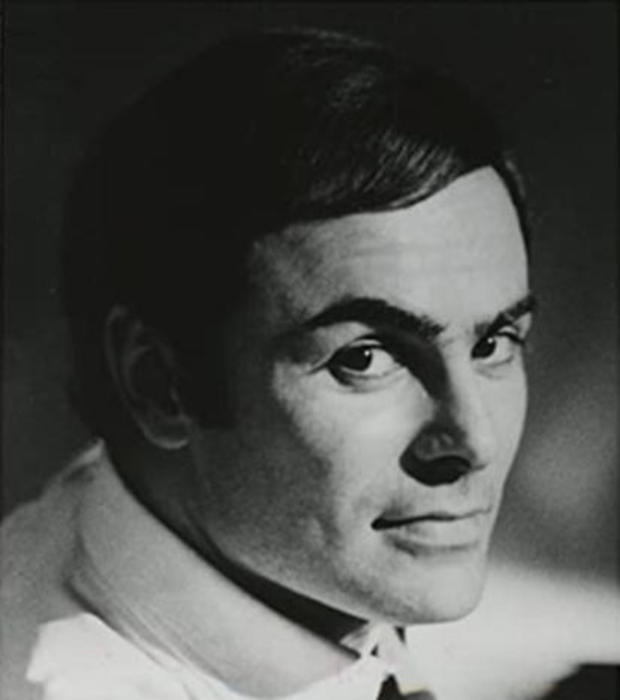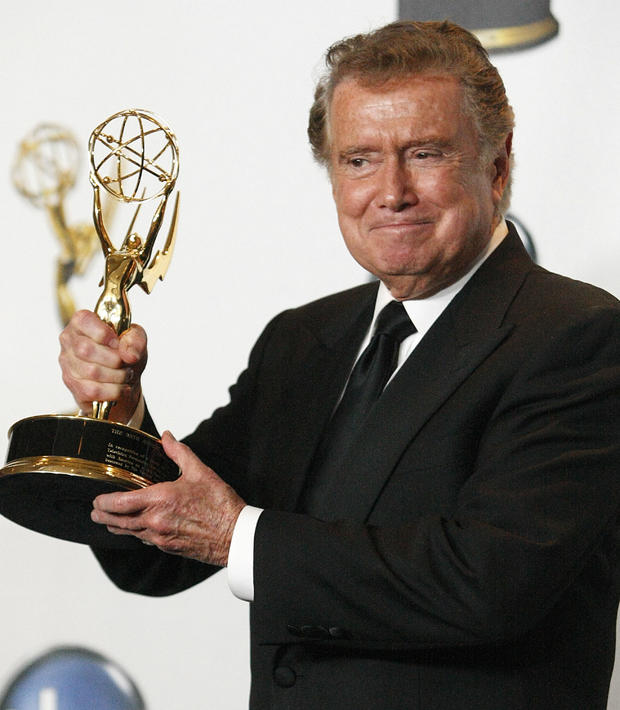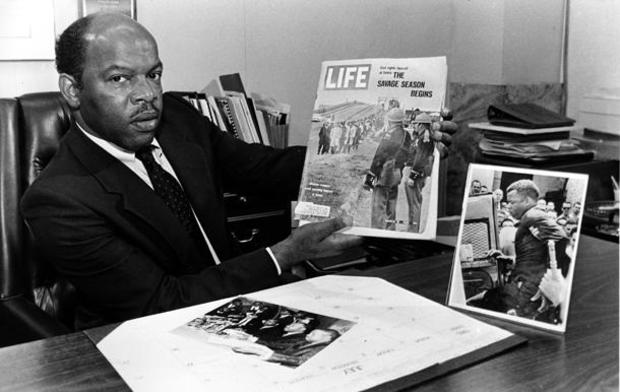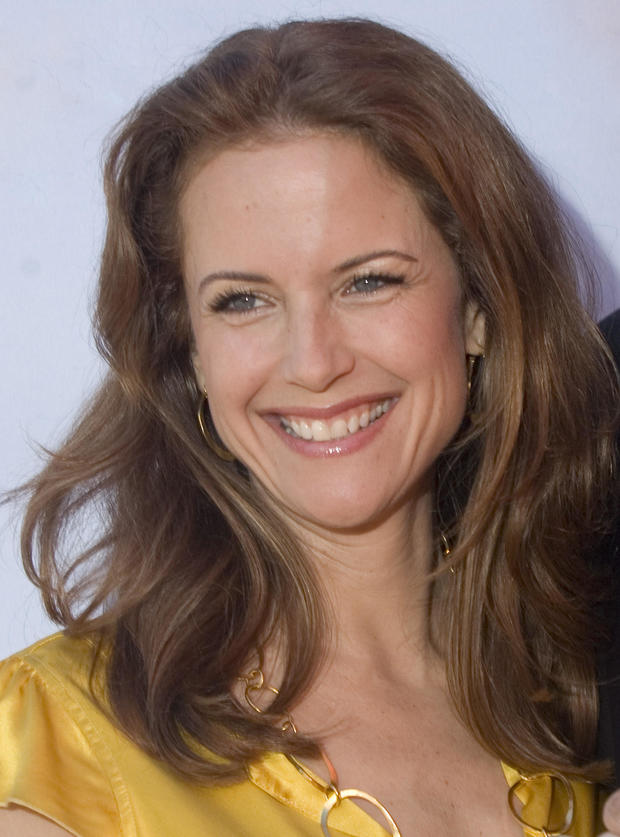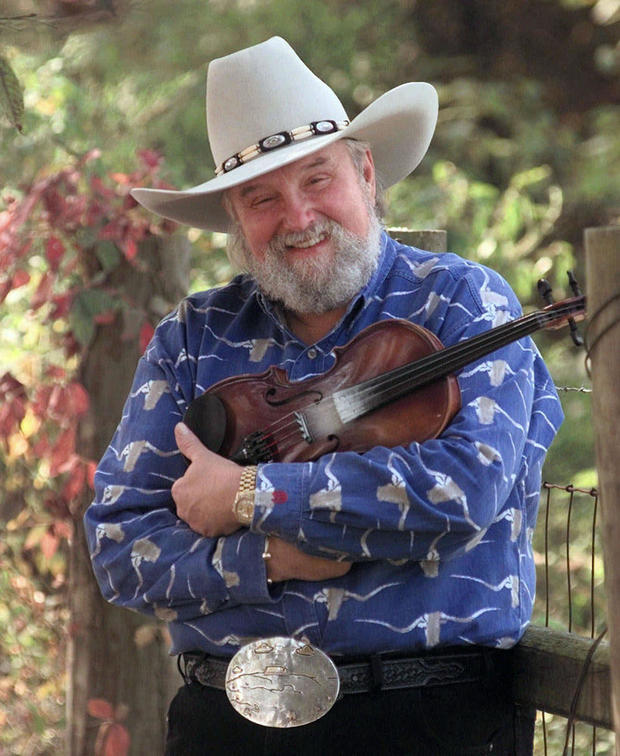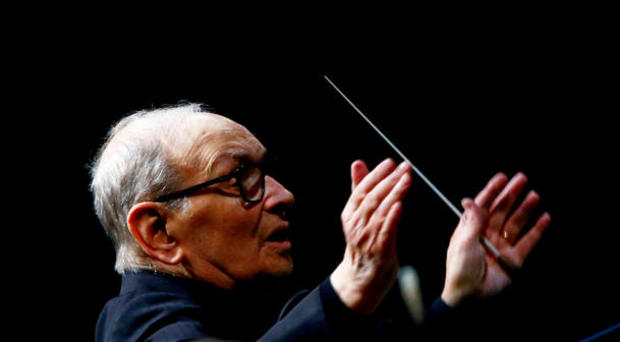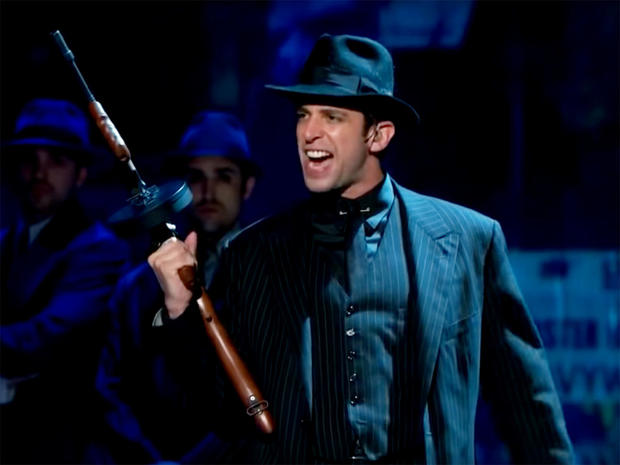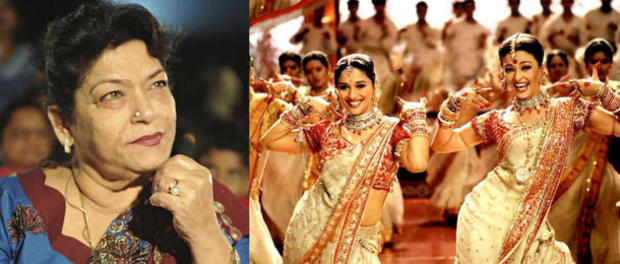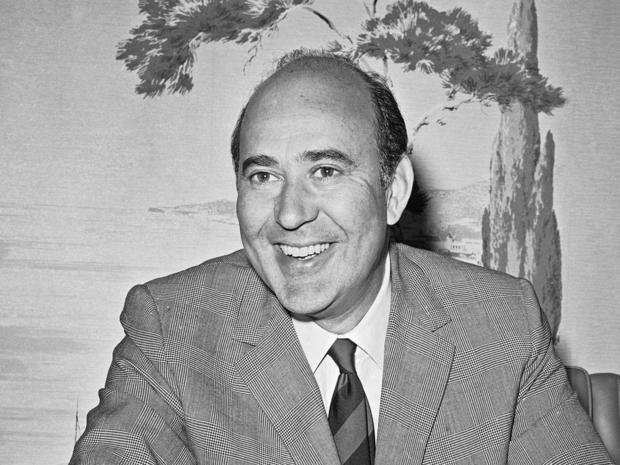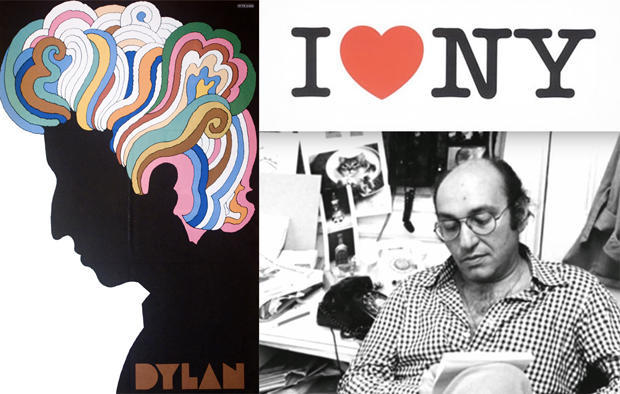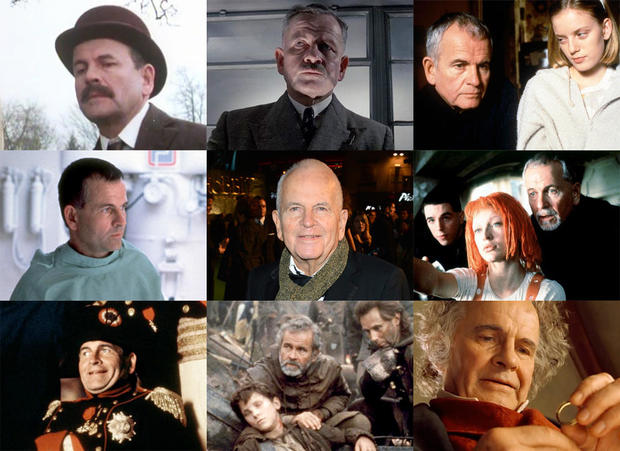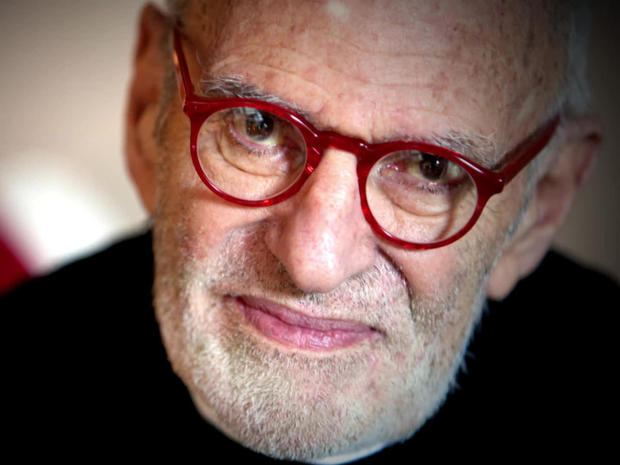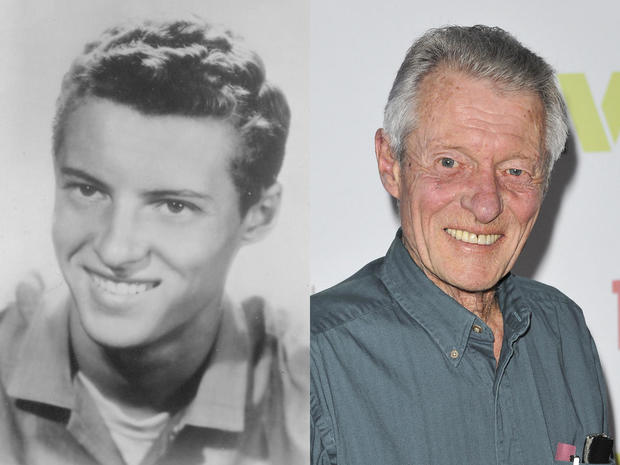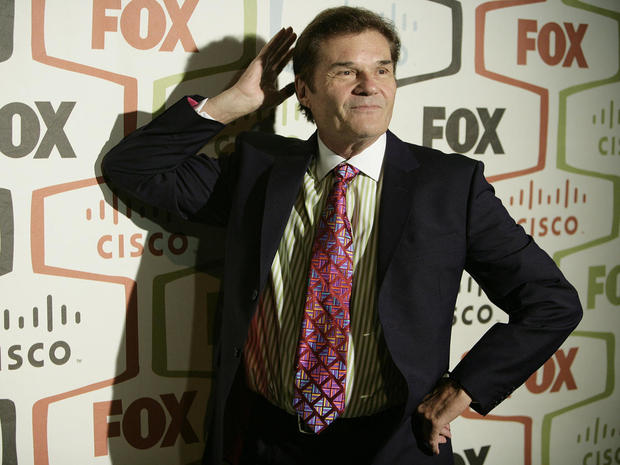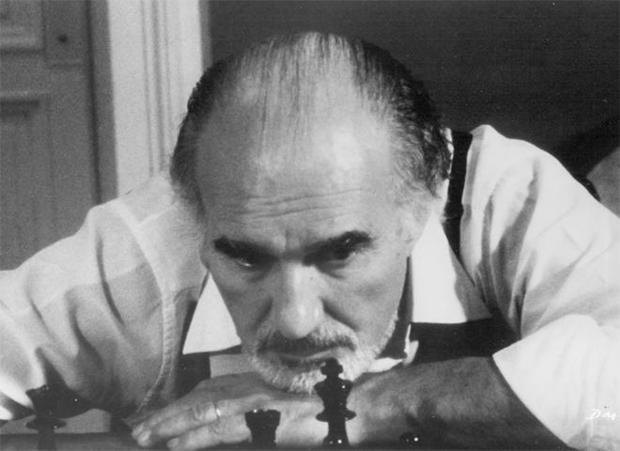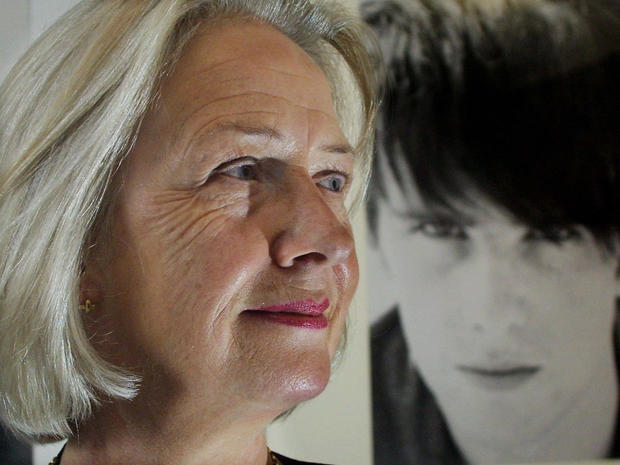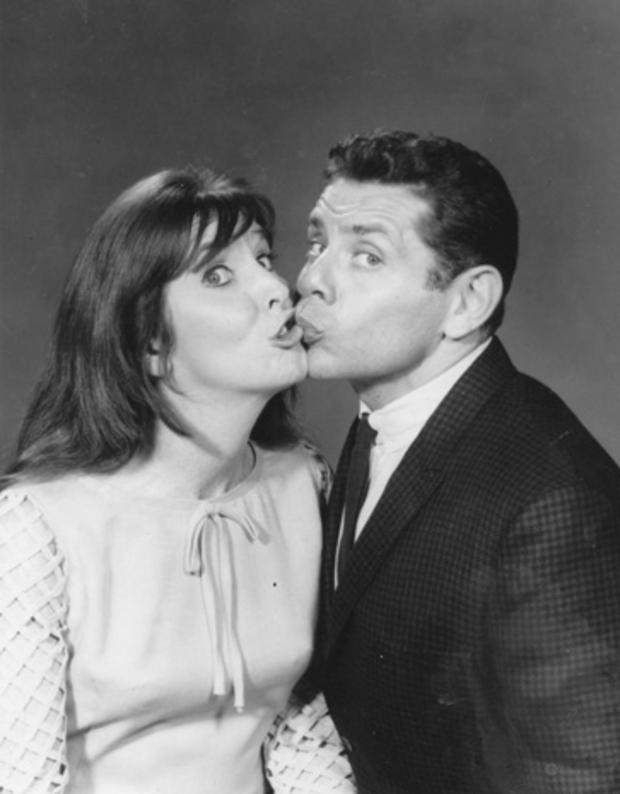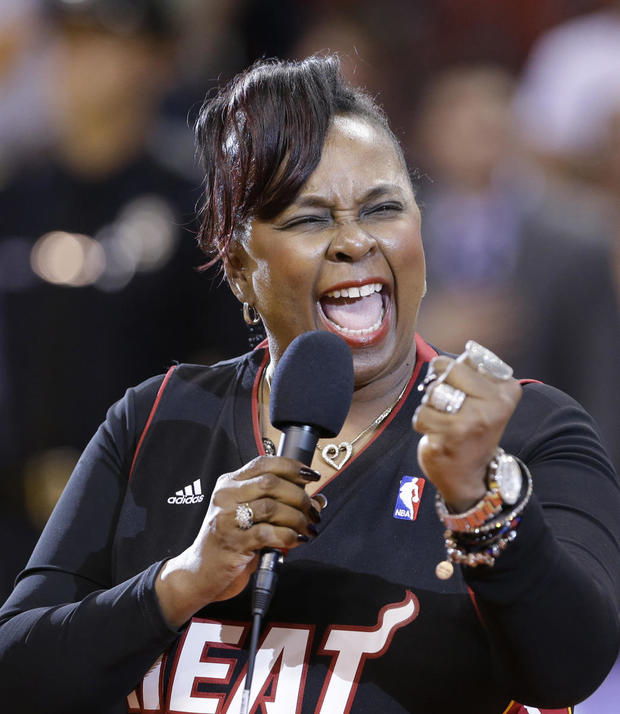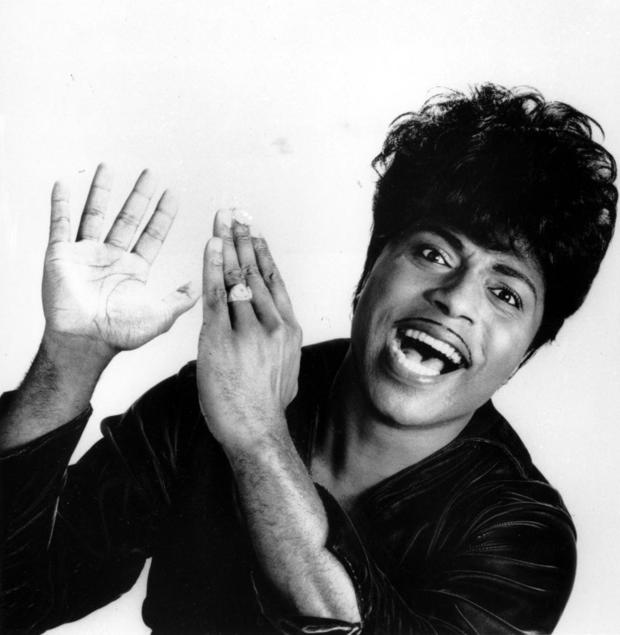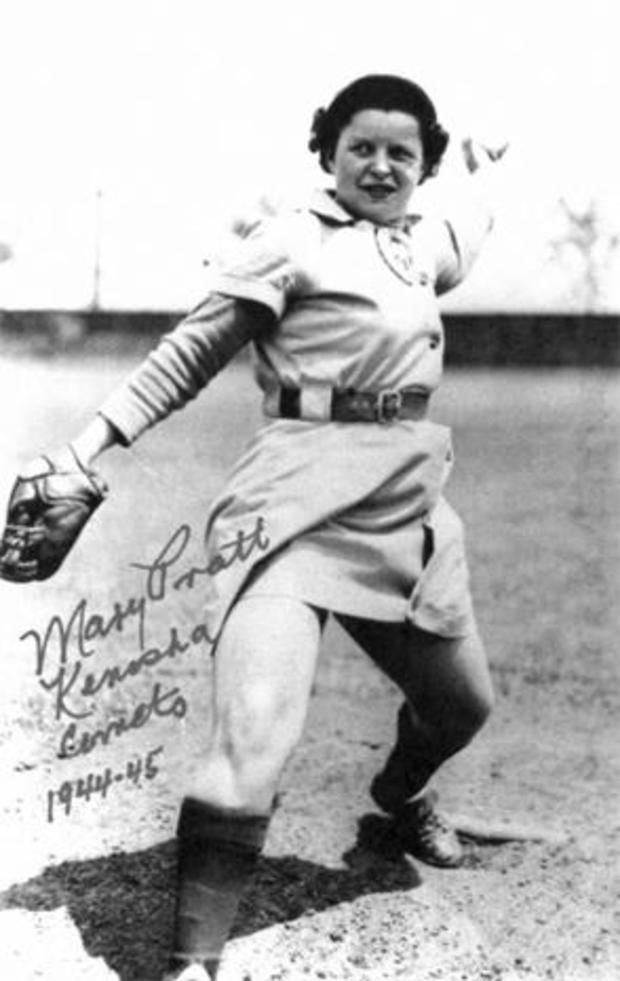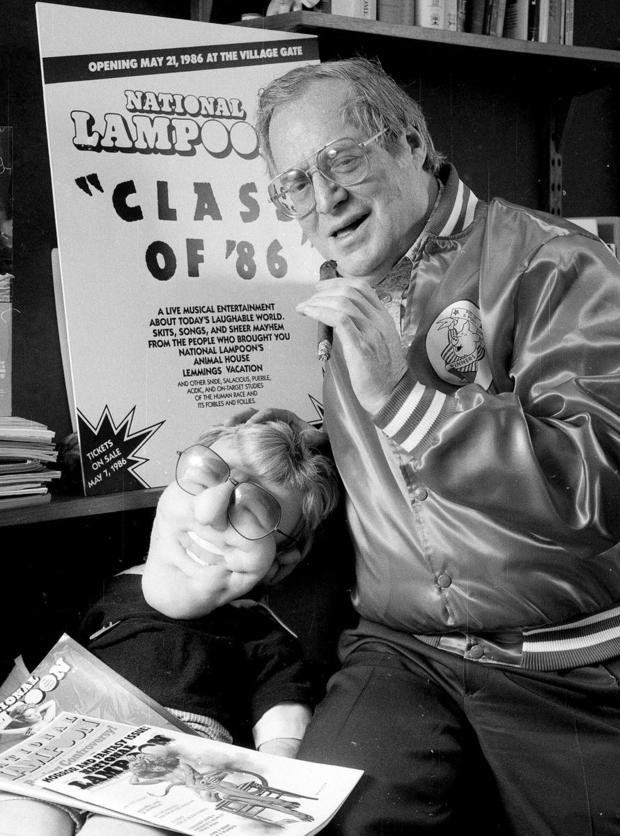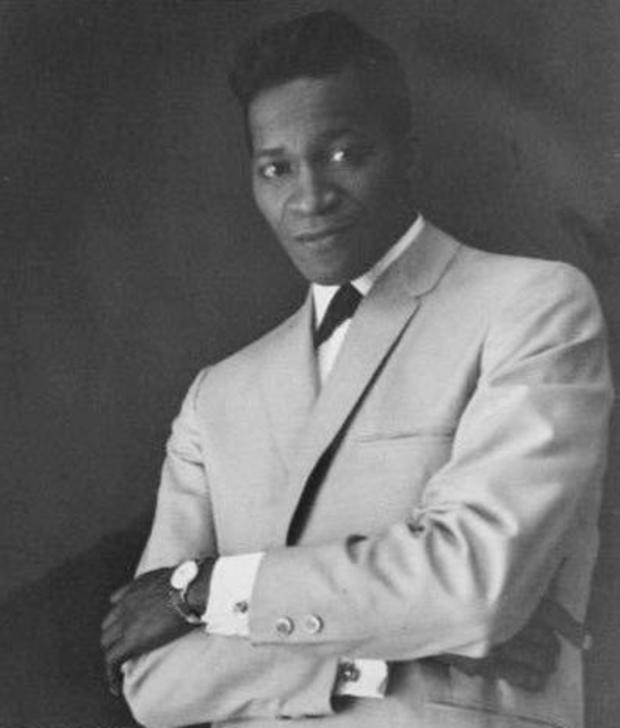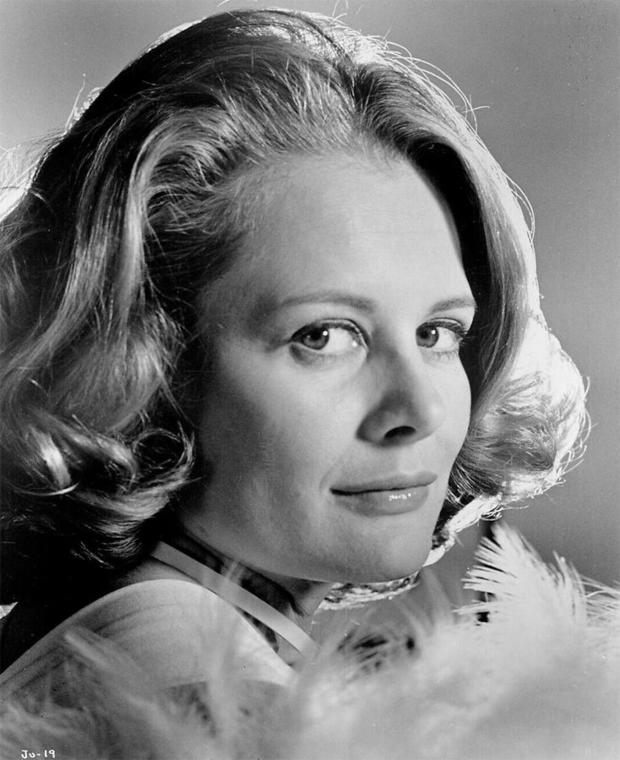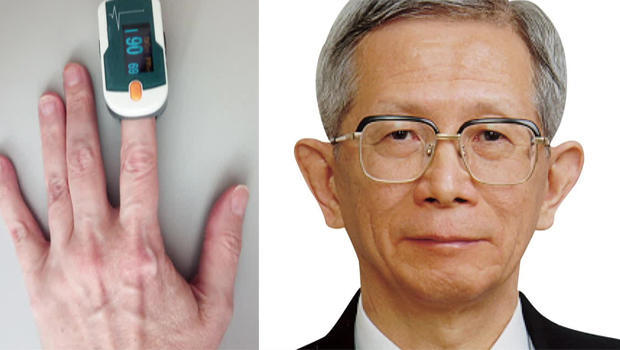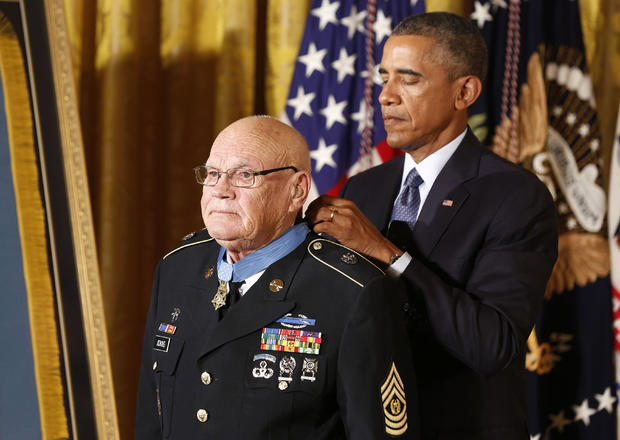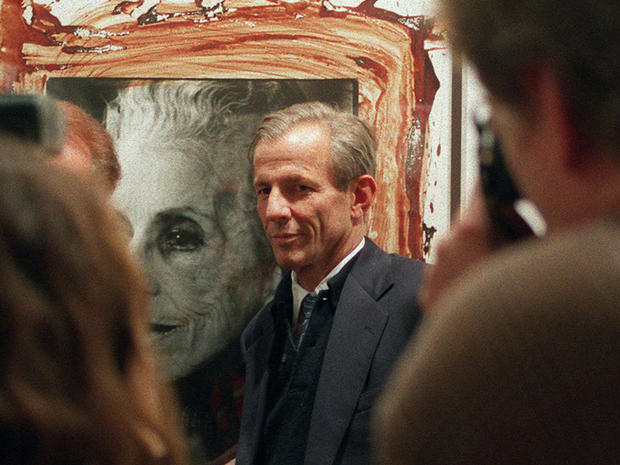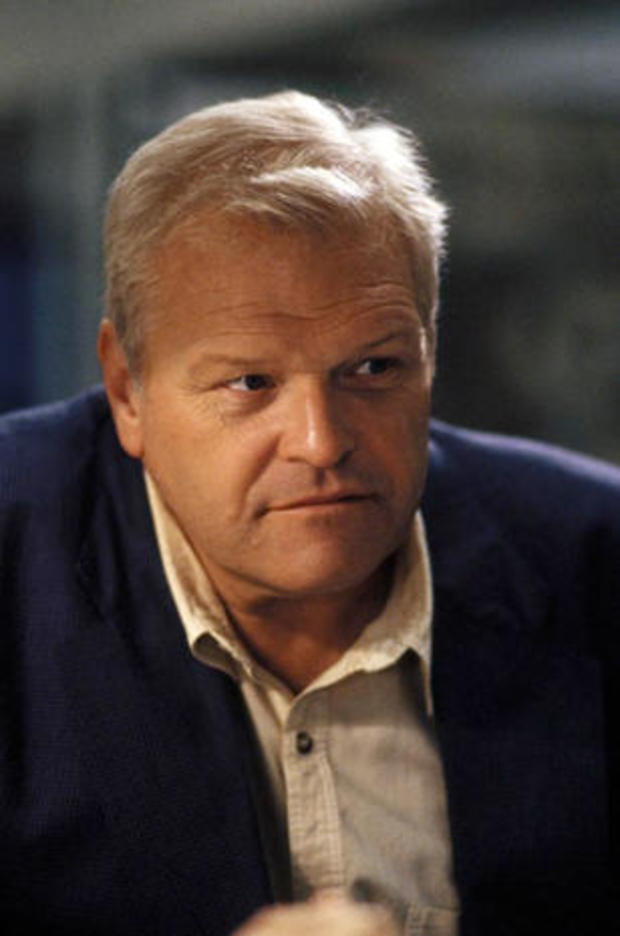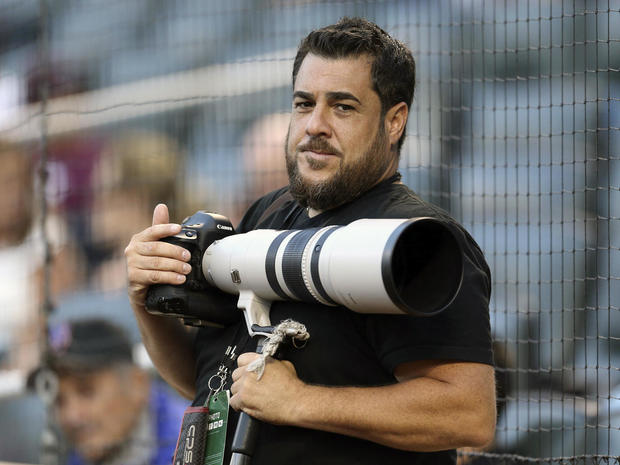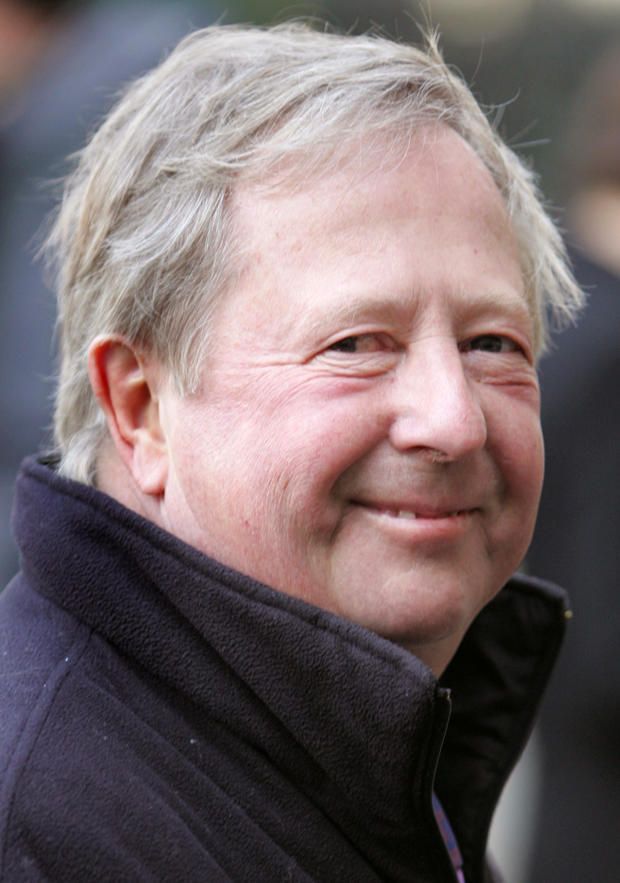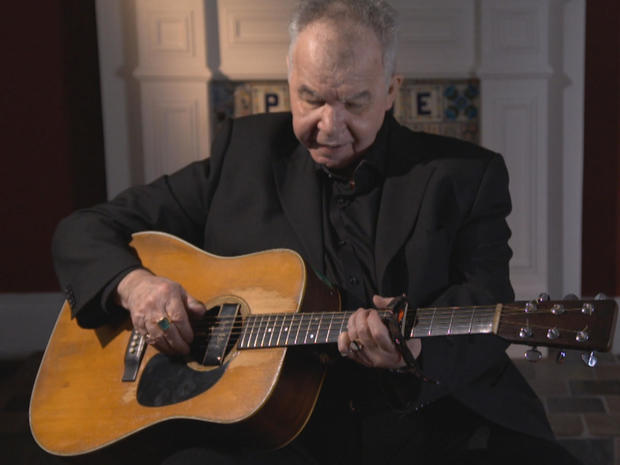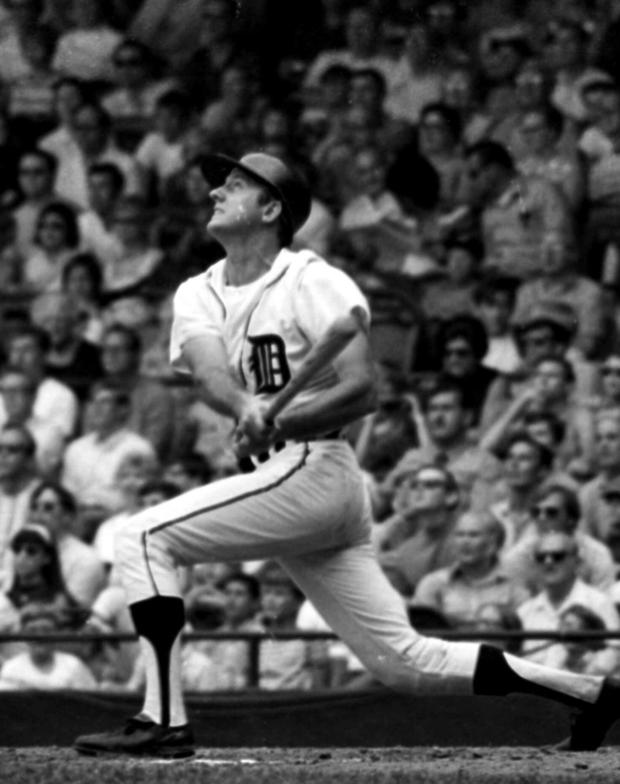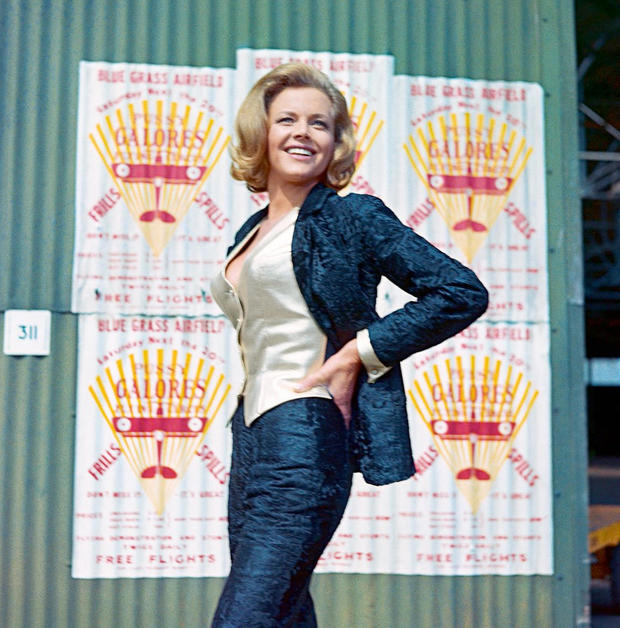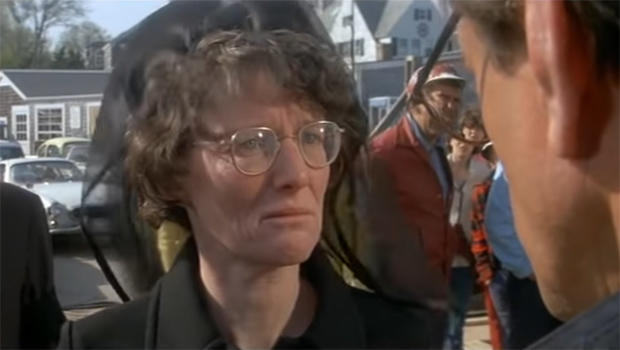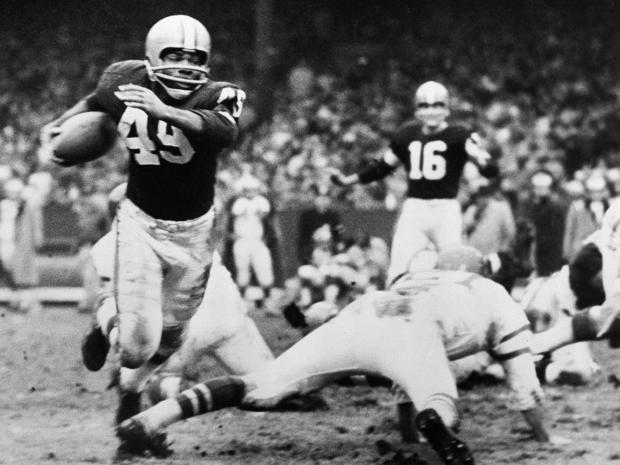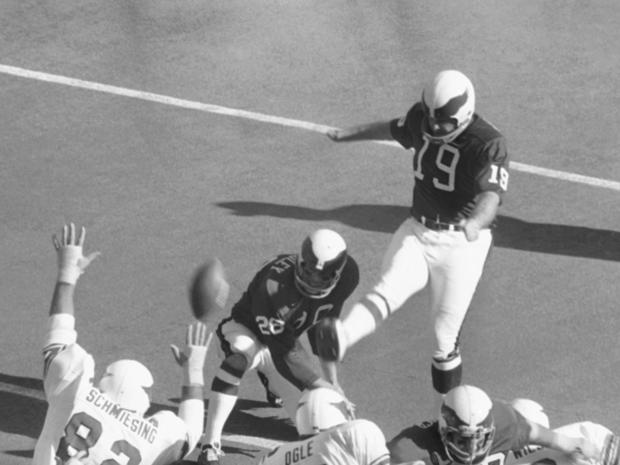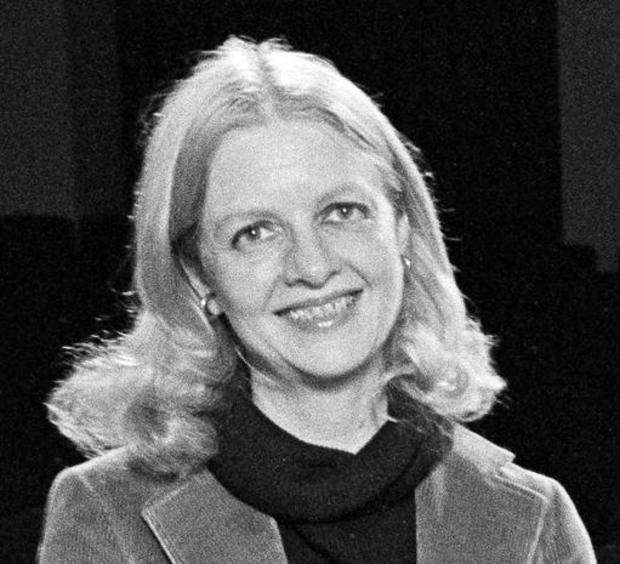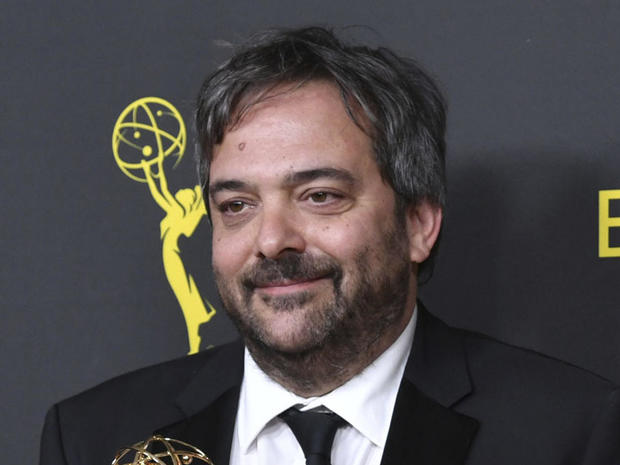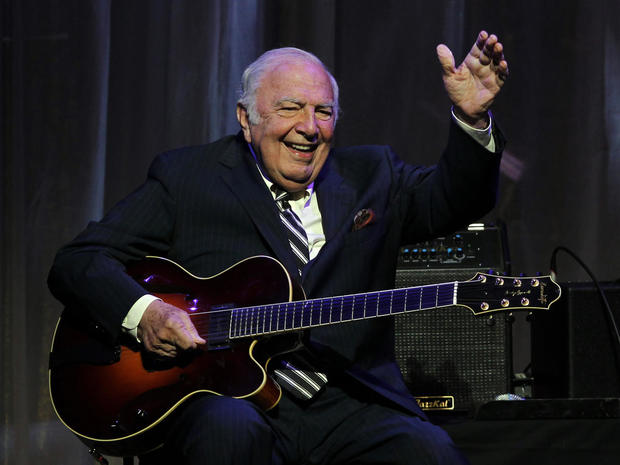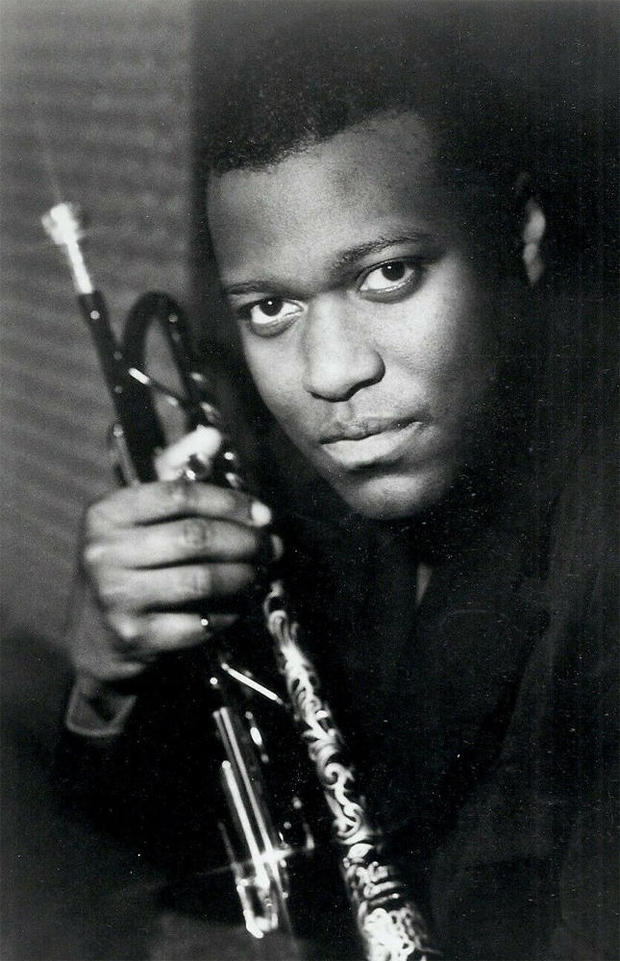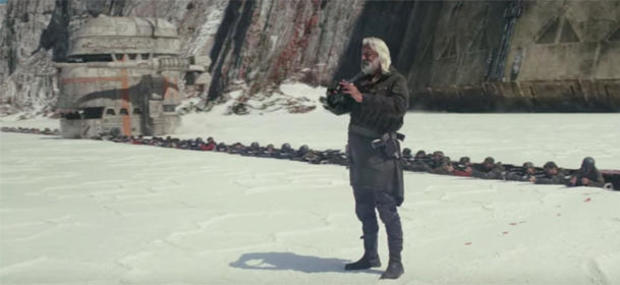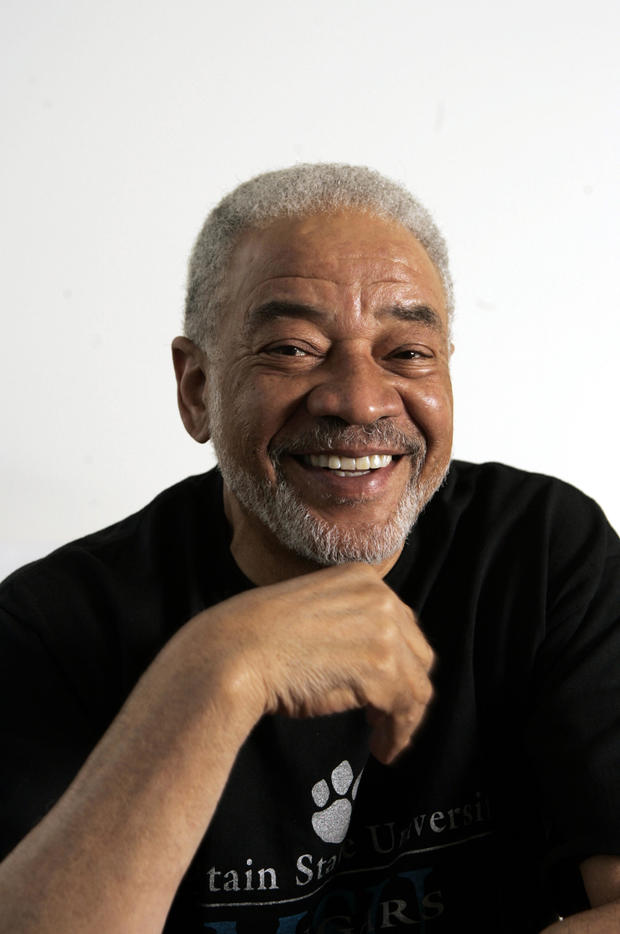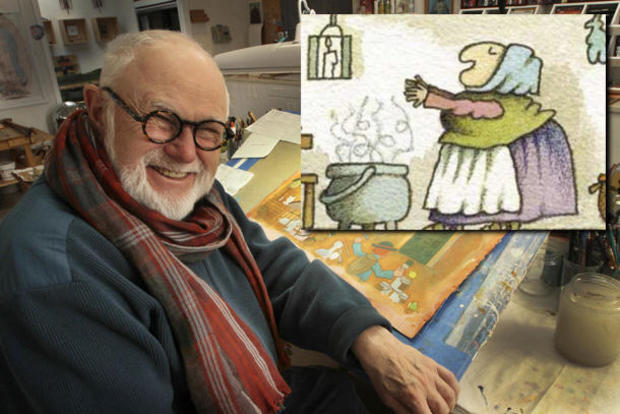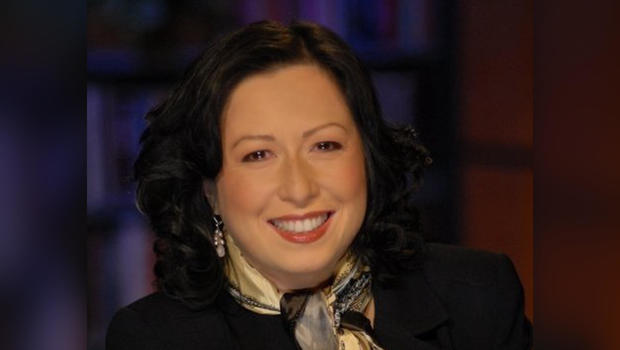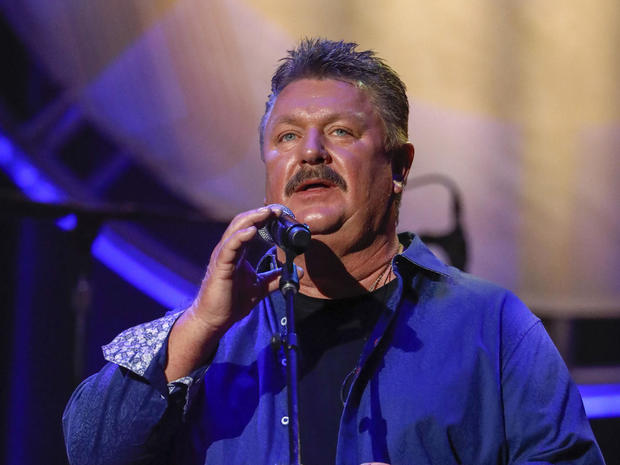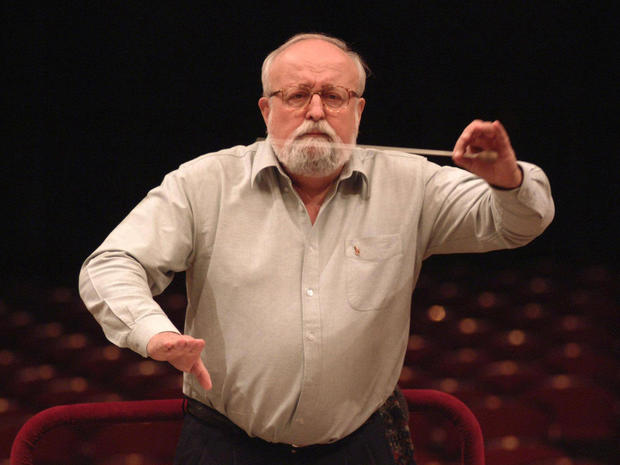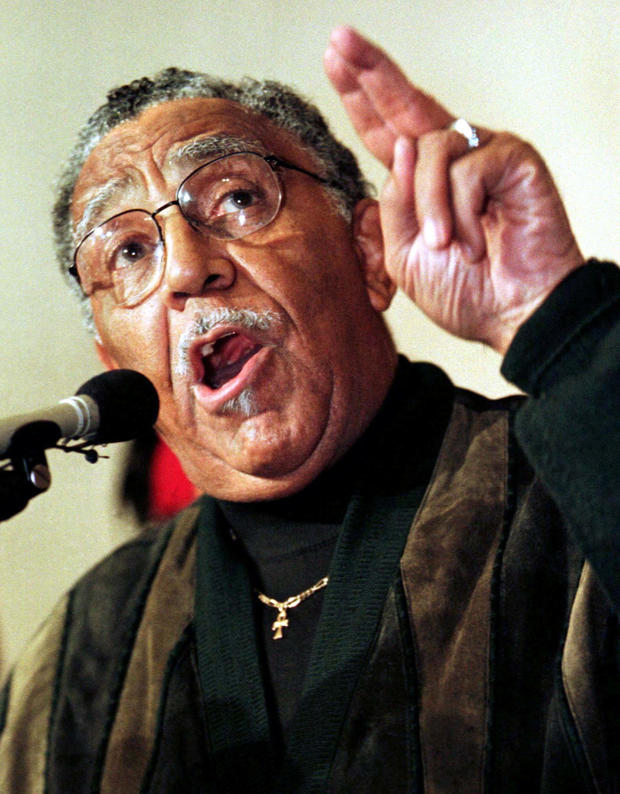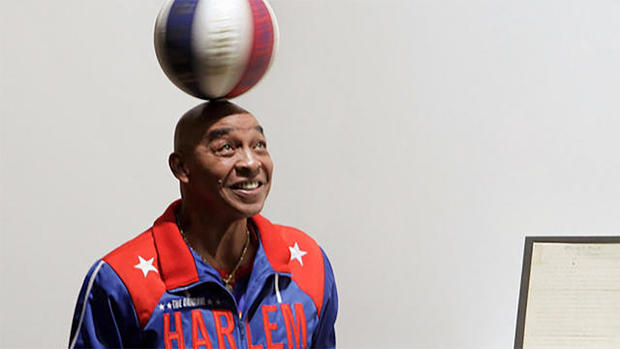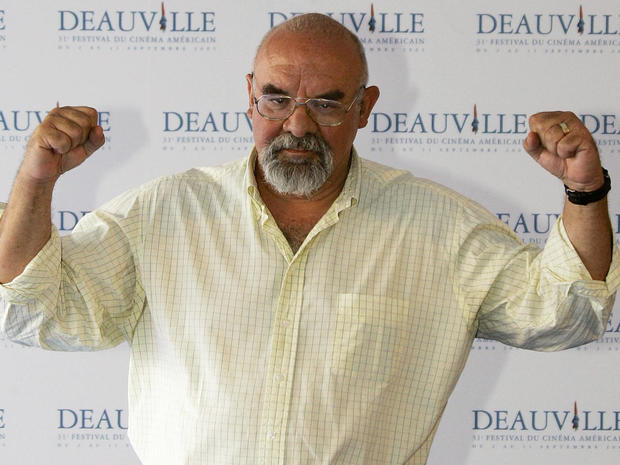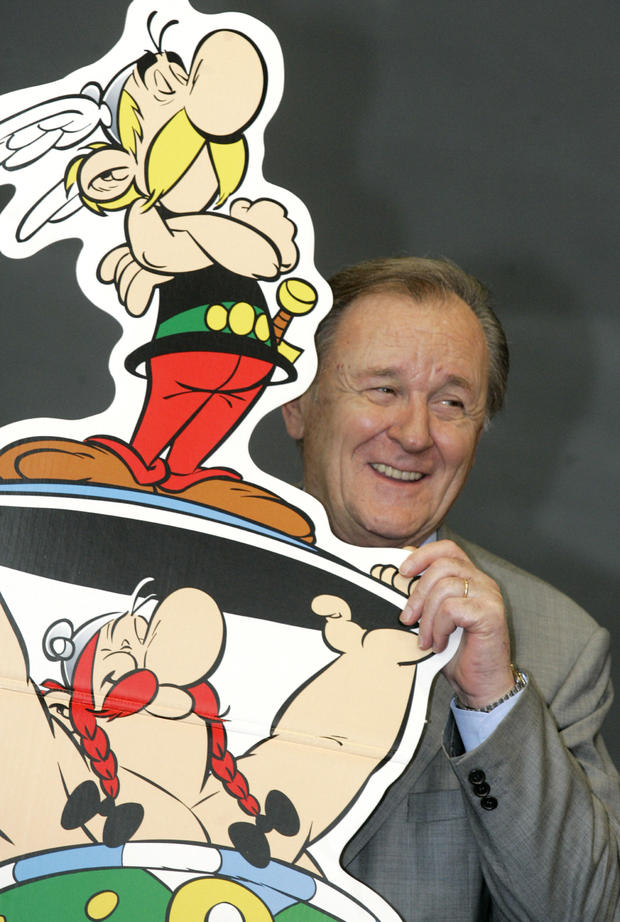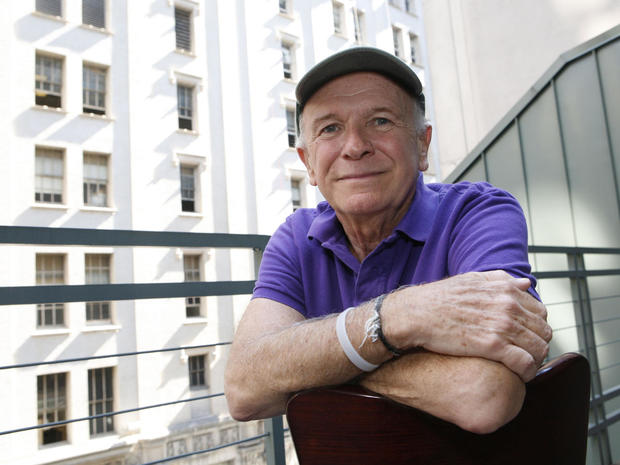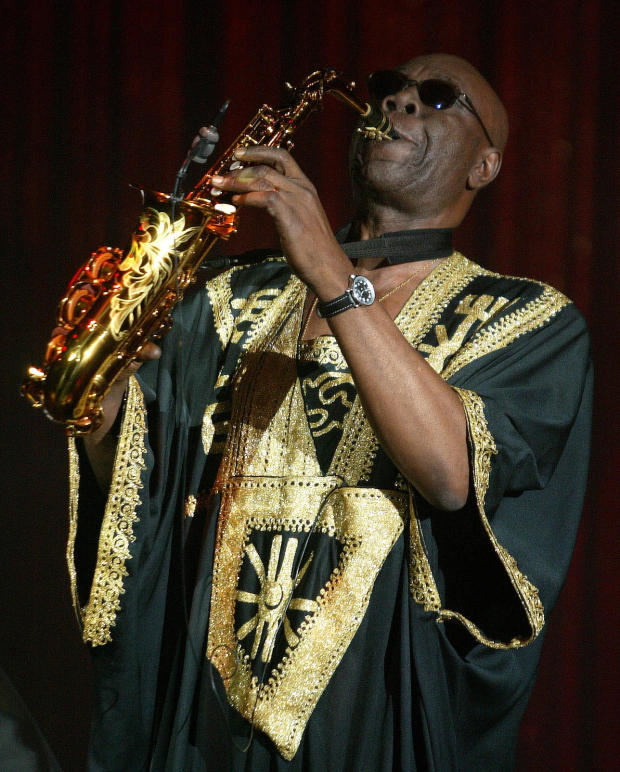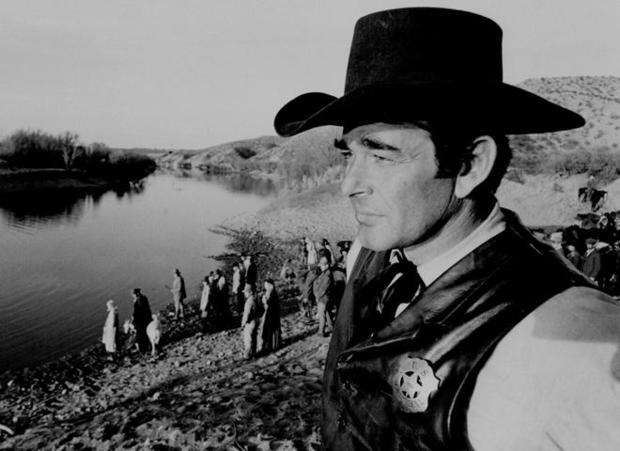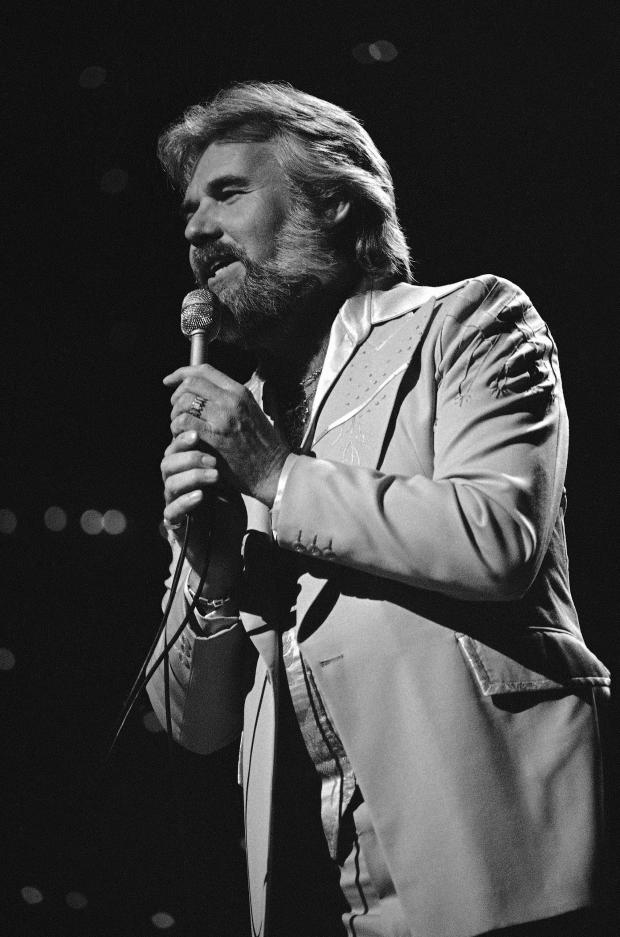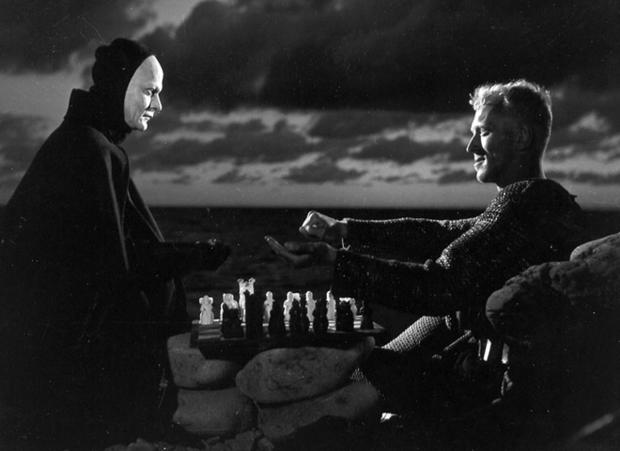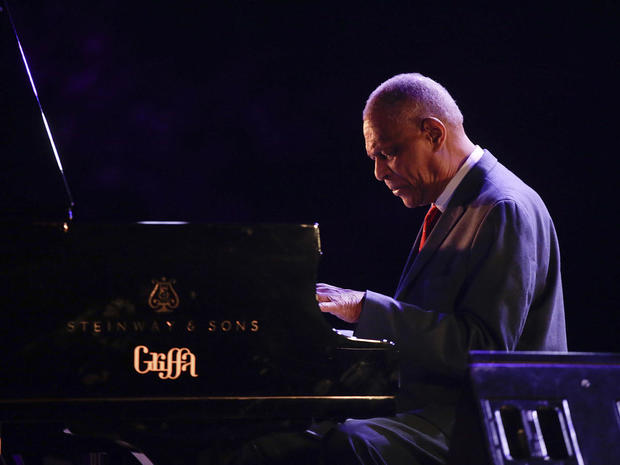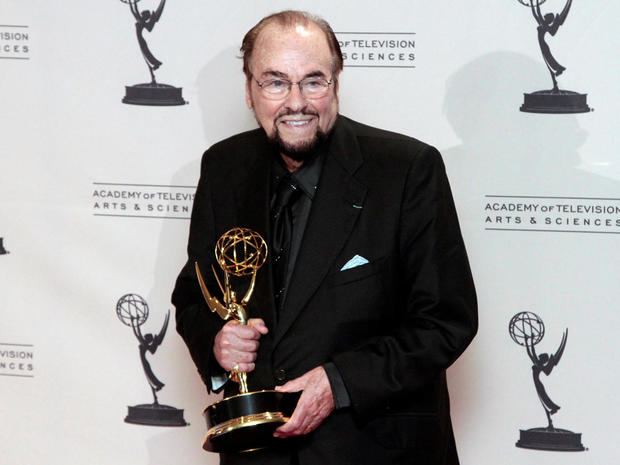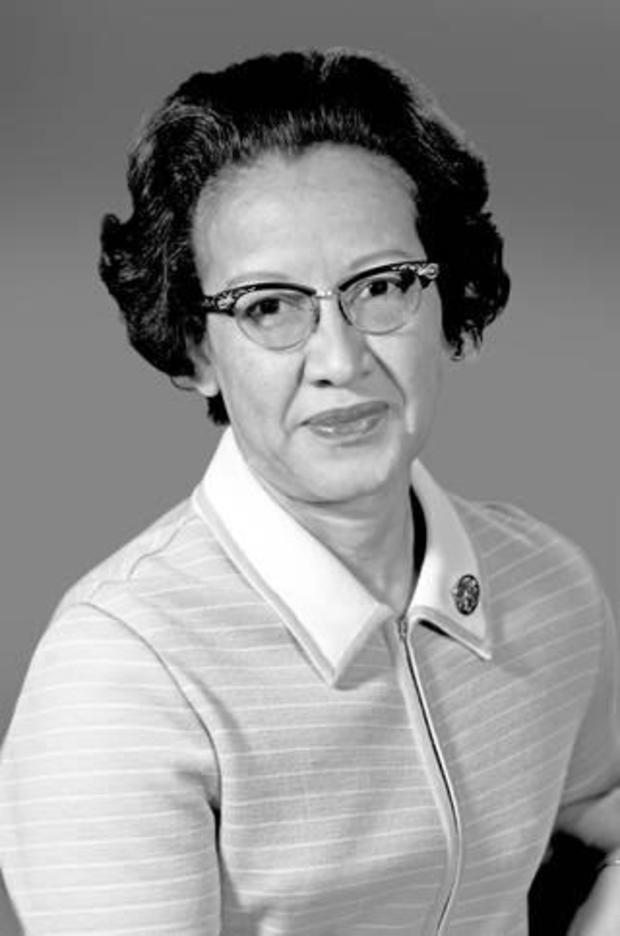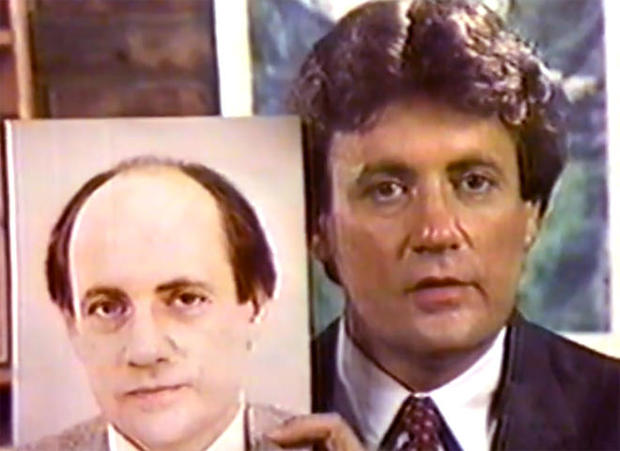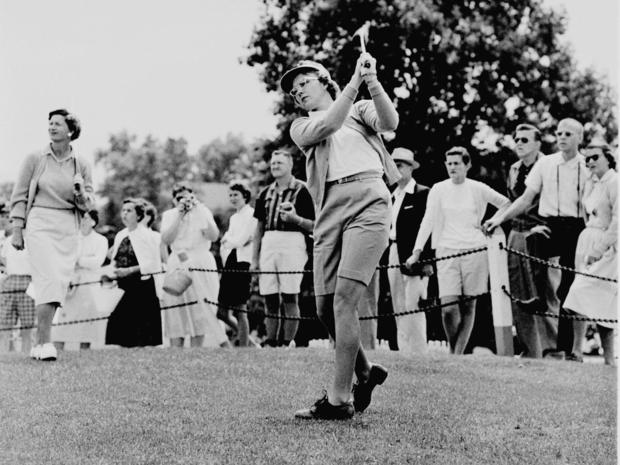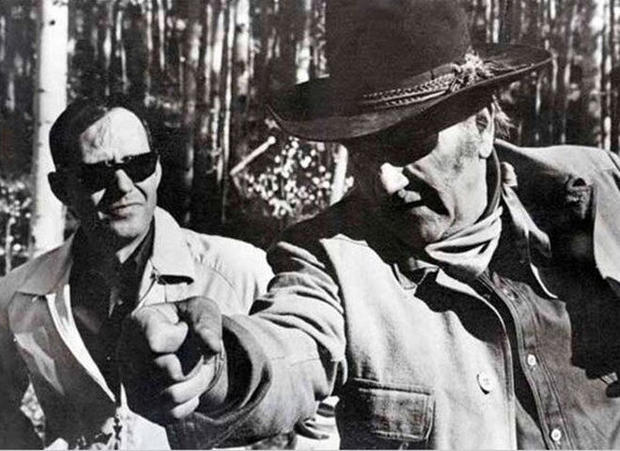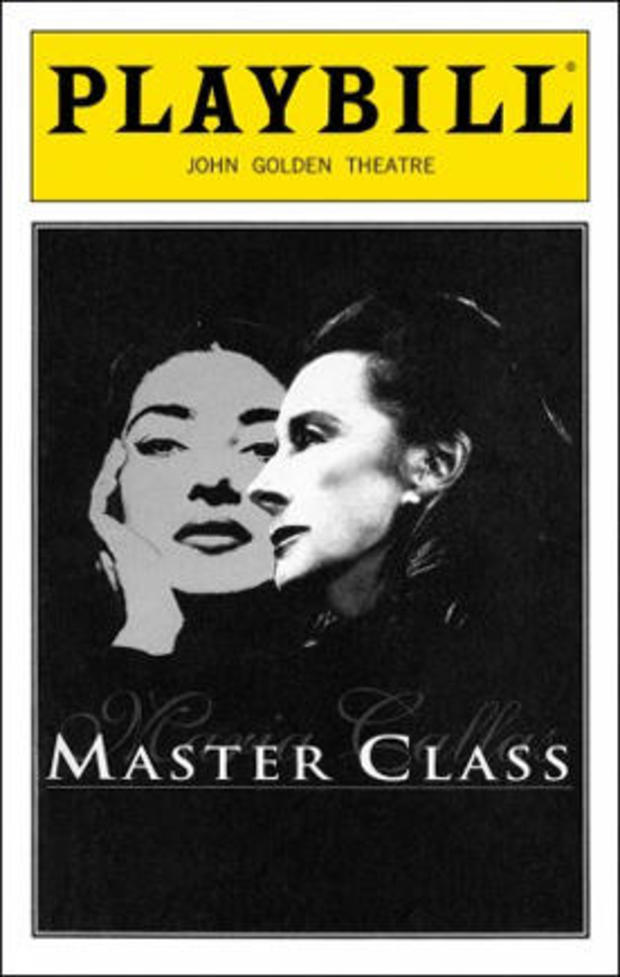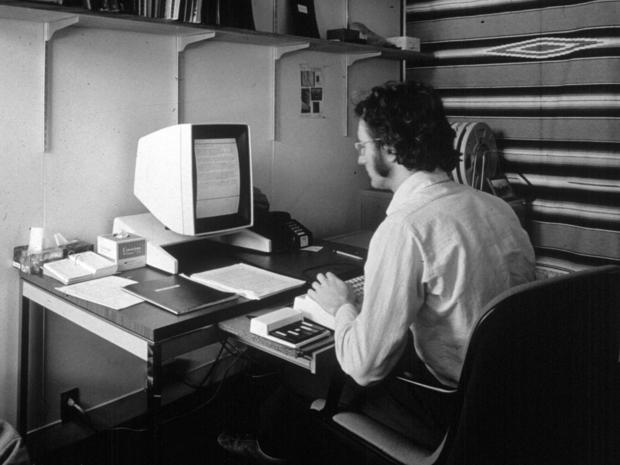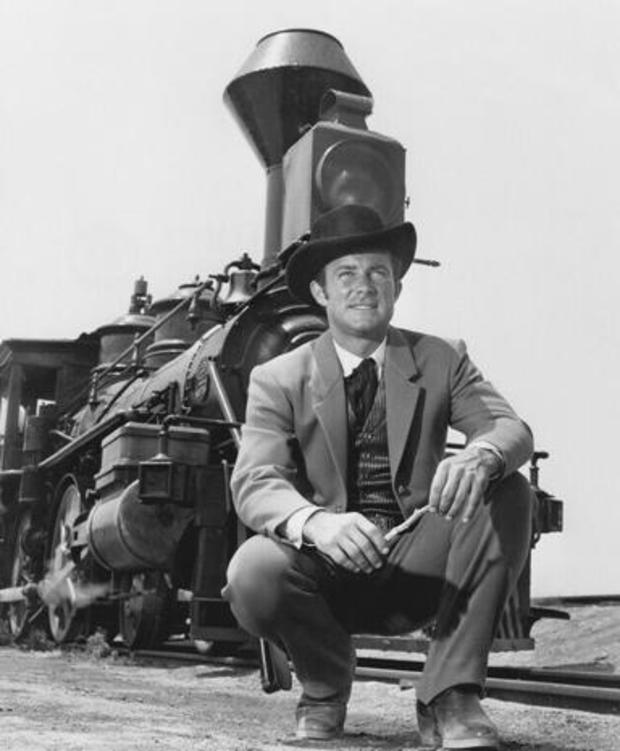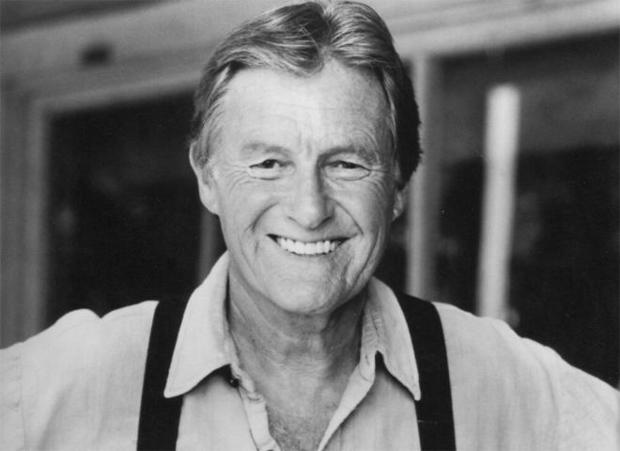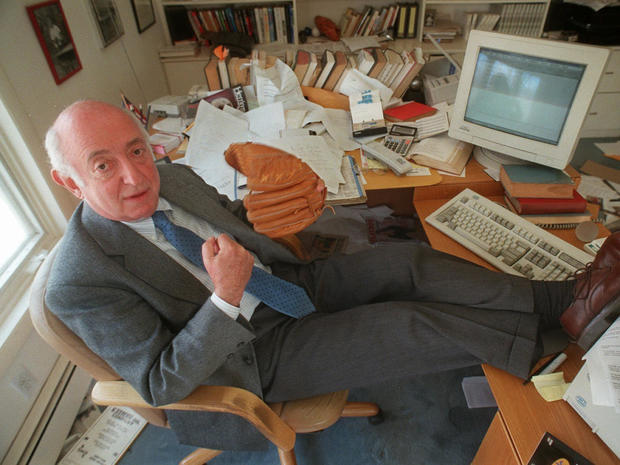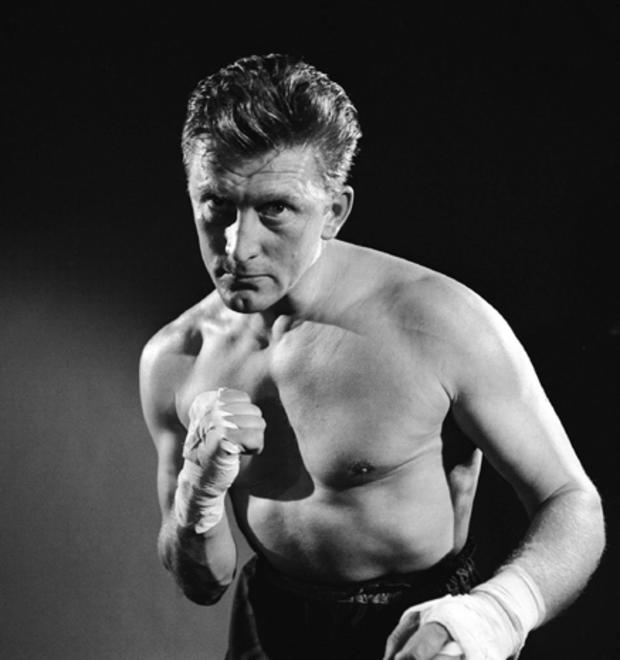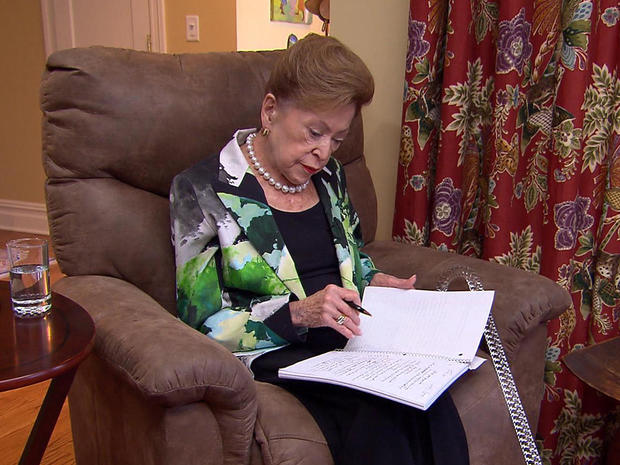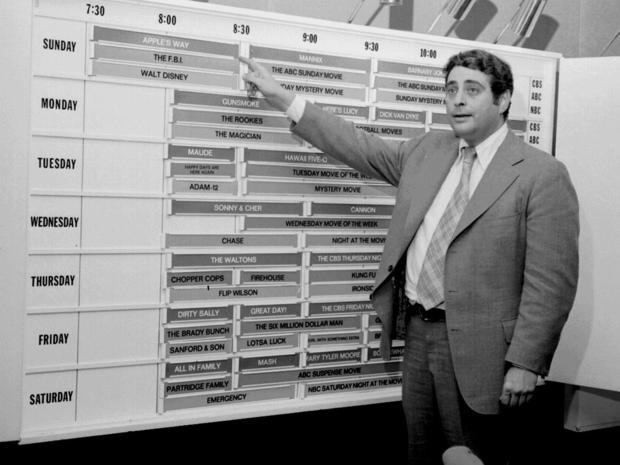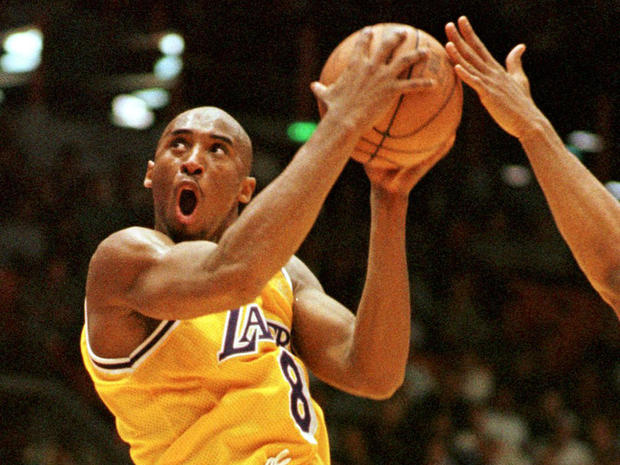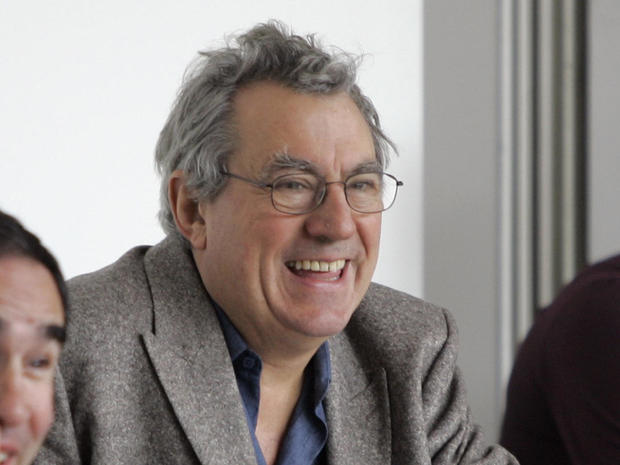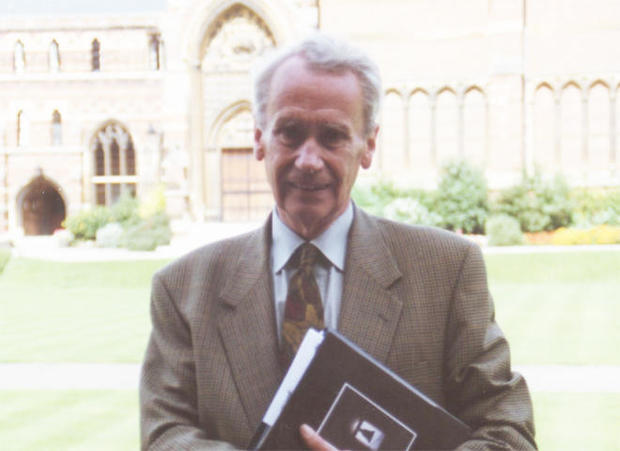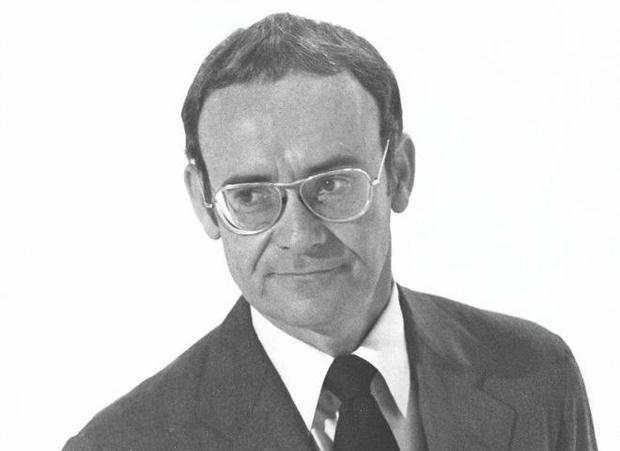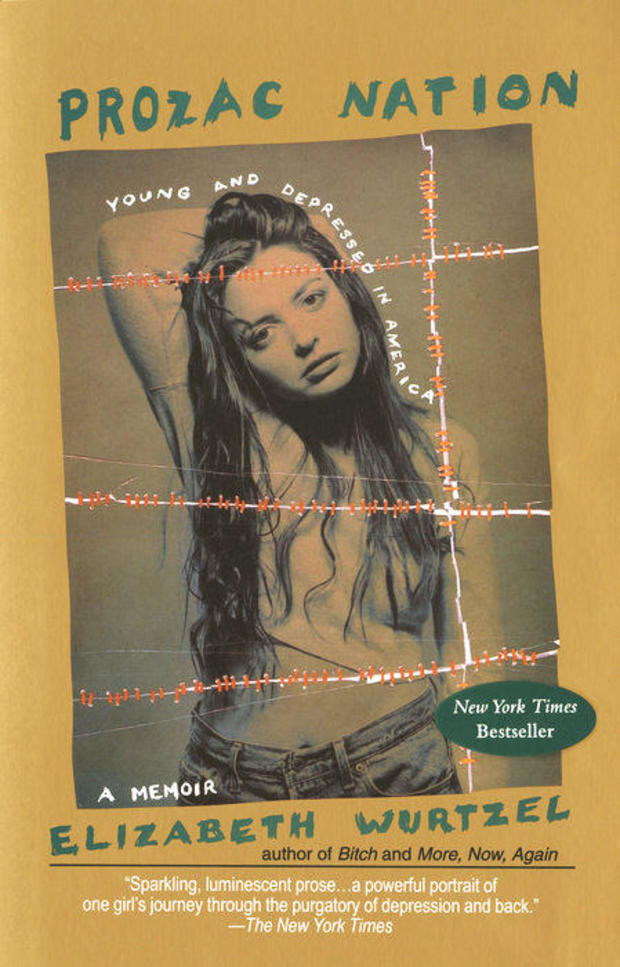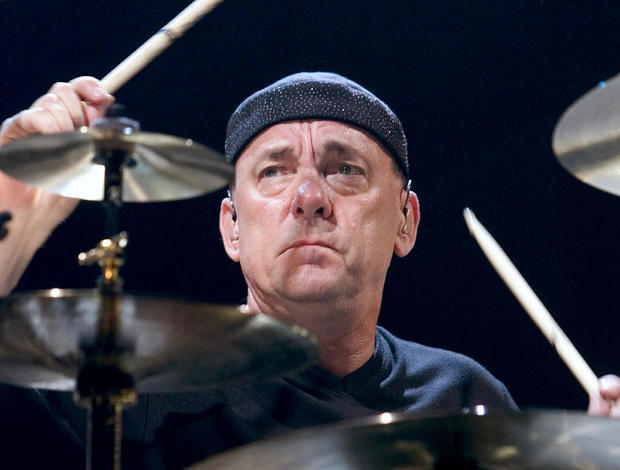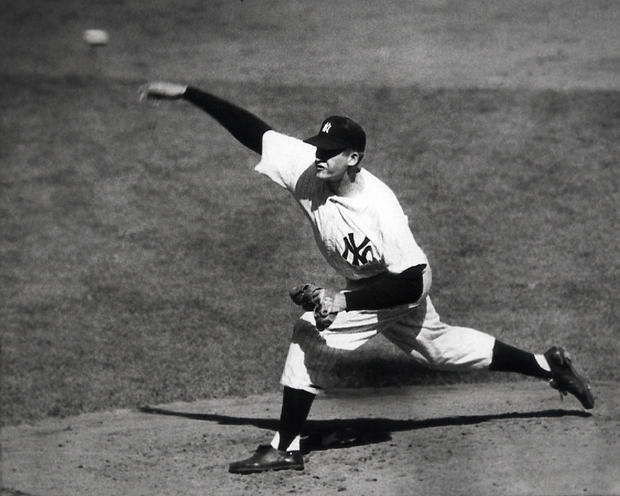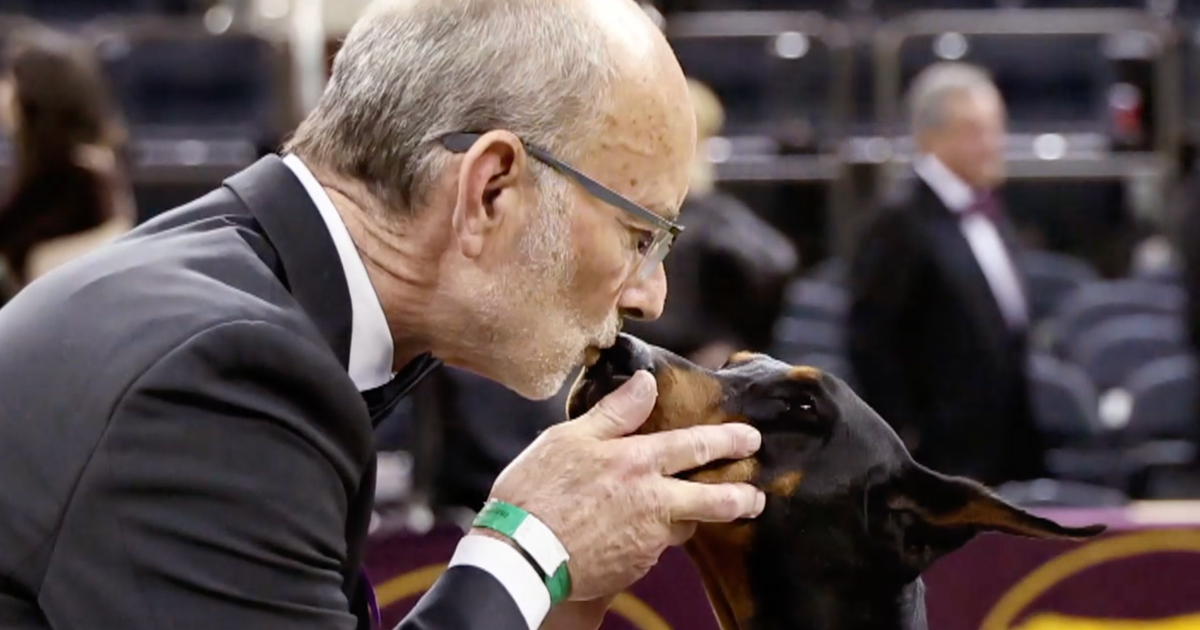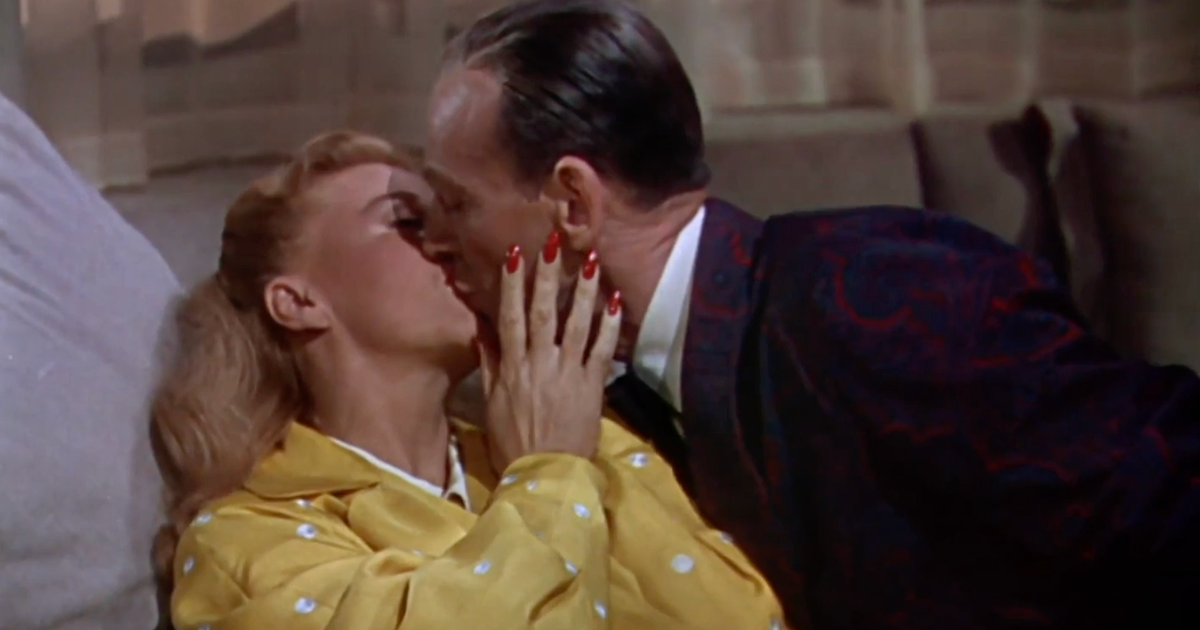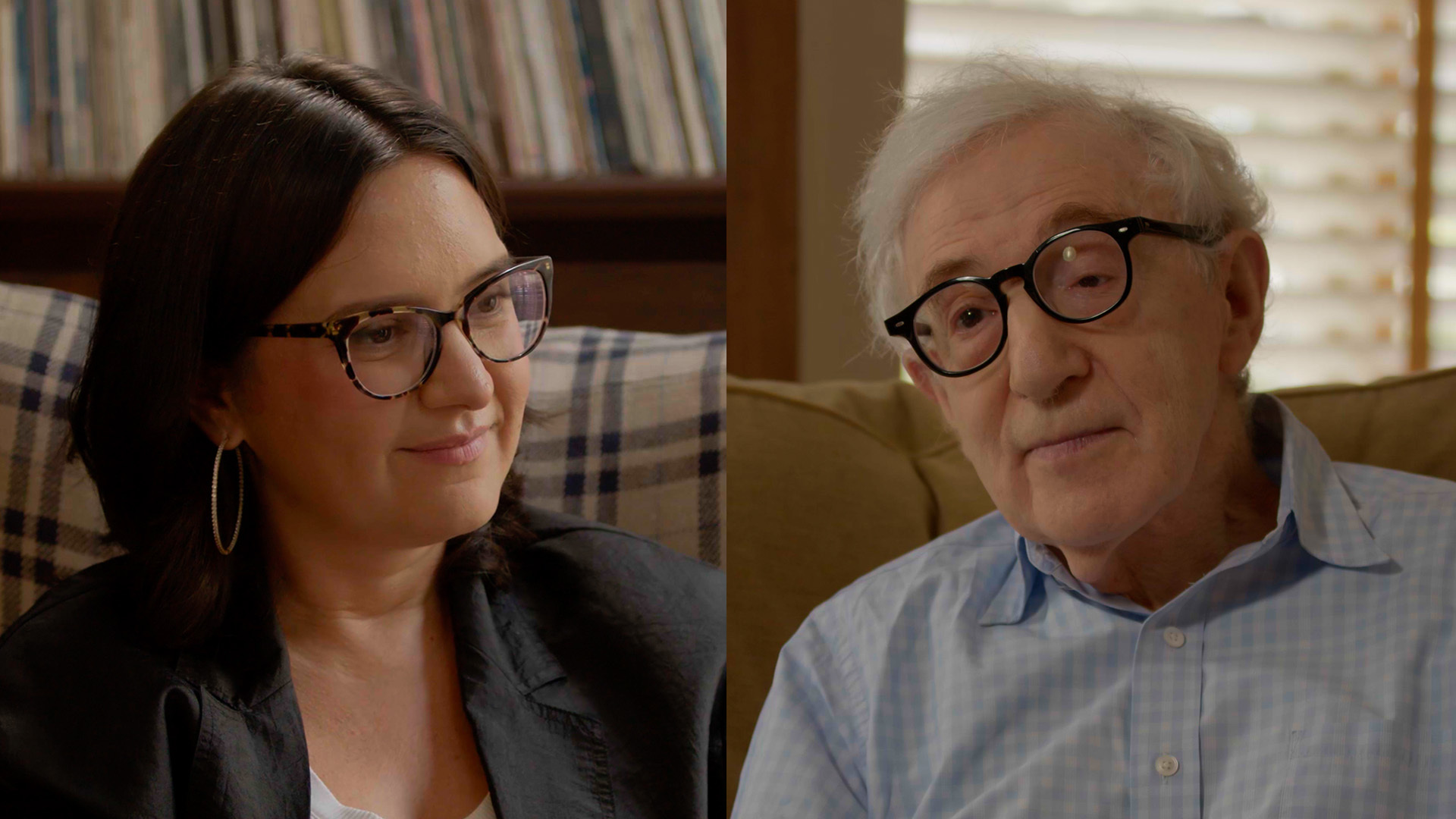Notable deaths in 2020
A look back at the esteemed personalities who left us this year, who'd touched us with their innovation, creativity and humanity.
By CBSNews.com senior producer David Morgan. The Associated Press contributed to this gallery.
A Miss America contestant from Reno, Nevada, Dawn Wells (October 18, 1938-December 30, 2020) pivoted from medical studies to an acting career, and earned immortality after a fashion while wearing a gingham dress (or belly button-covering shorts) as the wholesome Mary Ann Summers, one of seven shipwrecked castaways on the 1960s sitcom "Gilligan's Island."
Her other TV appearances included "Maverick," "77 Sunset Strip," "Hawaiian Eye," "Bonanza," "The Love Boat" and "Fantasy Island." But her most famous part far outlasted the three years spent on "Gilligan's Island." Wells recreated the role in spin-off movies (such as "Rescue From Gilligan's Island" and "The Harlem Globetrotters on Gilligan's Island") and the animated series "Gilligan's Planet," and even made cameo appearances in character on "Baywatch" and "Alf."
Her stage appearances included "Chapter Two," "The Odd Couple," "They're Playing Our Song!," "Love Letters" and "The Vagina Monologues." She ran a boot camp for actors in Idaho, where she also helped found a film and music festival, Spud Fest. She also help found The Elephant Sanctuary, a refuge in Tennessee developed for African and Asian elephants.
In 2016 "Sunday Morning" correspondent Mo Rocca visited with Wells in Marshfield, Missouri (home to the Missouri Cherry Blossom Festival), where Wells has a spot on the town's Walk of Fame, right next to aviators Charles Lindbergh Amelia Earhart. "You like flying, I hope?" Rocca asked.
"Better than sailing!" she laughed.
Pierre Cardin
A designer who never stopped challenging convention, the Italian-born Pierre Cardin (July 2, 1922-December 29, 2020) took on the titans of French couture. He entered the business at age 14, and would go on to work for Christian Dior, who helped Cardin establish his own house when he was barely 30. By the 1960s Cardin's avant-garde, Space Age designs made with non-traditional materials, like vinyl, had defined the decade. (He was even commissioned by The Beatles to design their suits.)
Cardin helped change the business of fashion forever as a proponent of prêt-à-porter – ready-to-wear, affordable designer clothes, which he sold in department stores. The old Paris fashion houses were outraged, but Cardin made millions, and other designers soon got the message.
But he didn't stop with a line of designer clothes. A savvy businessman, Cardin sold his name to be used on T-shirts, ties, glasses, baby buggies, pens, key fobs – you name it.
In 2012 "Sunday Morning" correspondent David Turecamo asked Cardin, "Do you see fashion as an art or a business?"
"Both," he replied. "Everything is business, you know? A picture is business. If you don't sell your picture, no one knows you."
Cardin also turned his attention to automobile interiors, architecture, publishing and hospitality (he purchased the famed Maxim's restaurant). "When I was finished one thing very well, I start some other thing," Cardin said. "I don't like to stop. I like to continually prove myself. I'm a gambler, you know."
Phil Niekro
It was a fluttering knuckleball that helped propel pitcher Phil Niekro (April 1, 1939-December 26, 2020) to 318 career victories, and into the Baseball Hall of Fame. It also earned him the nickname "Knucksie."
He told ESPN that he'd learned the pitch from his father, who taught him how to grip the ball with his fingernails on the seams, which prevented the ball from spinning, and caused it to move in confounding ways on its way to home plate. "He was a very good pitcher," Niekro said. "He hurt his arm one spring, didn't warm up good enough, couldn't throw a fastball anymore. Another coal miner taught him how to throw the knuckleball."
Over a 24-year career, Niekro was a five-time All-Star, pitching mostly for the Milwaukee (later Atlanta) Braves, as well as the New York Yankees, Cleveland Indians and Toronto Blue Jays. He notched 121 of his career wins after turning 40.
Niekro pitched a no-hitter in 1973, but his career highlight may have been in 1982, when the Braves made it into the National League Western Division playoffs. Then 43, Niekro pitched a three-hit shutout against the Padres, and capped the victory by hitting a two-run home run in the eighth inning, taking the Braves into the league championships.
In 1985 when he won his 300th victory – as a Yankee, pitching an 8-0 shutout of the Blue Jays – Niekro became, at 46, the oldest pitcher in MLB history to throw a shutout (a record since broken by the Phillies' 47-year-old Jamie Moyer).
K.C. Jones
Basketball Hall of Famer and Olympic gold medalist K.C. Jones (May 25, 1932-December 25, 2020) won 12 NBA titles, including four as a head coach or assistant coach. A point guard who excelled on defense, Jones was a two-time NCAA champion with the University of San Francisco. Jones and fellow "Don" Bill Russell also played on the American team at the 1956 Olympic Games in Melbourne, winning the gold.
Jones was drafted by both Red Auerbach to play for the Celtics, and Pete Rozelle to play cornerback for the Los Angeles Rams football team, for whom Jones started in four exhibition games until an injury knocked him out. He then called up Auerbach and asked if the Celtics were still a possibility, even though some scouts claimed Jones, at 6'1", was too short.
Teaming up again with Russell in Boston, Jones and the Celtics won eight straight NBA titles between 1959 and 1966. After retiring in 1967, Jones began coaching college basketball (at Brandeis and Harvard) before joining the Los Angeles Lakers. He earned a championship ring there in 1972, and three more back in Boston, beginning in 1981, as an assistant to Bill Fitch. He took over as head coach in 1984.
In a 2018 interview with Celtic Nation, Jones was asked one piece of life advice to others. "Honesty and effort," he replied. "In my mind, those are the two most important ingredients to achieving success."
Rebecca Luker
Actress Rebecca Luker (April 17, 1961-Dec. 23, 2020) made her Broadway debut in "The Phantom of the Opera." Her soprano singing voice would earn her three Tony nominations: as Magnolia in the 1994 revival of "Show Boat"; as Marian the Librarian in the 2000 revival of "The Music Man"; and as Winifred Banks in "Mary Poppins."
Other stage credits included "The Secret Garden," "The Sound of Music," "Nine," "Death Takes a Holiday," "Rodgers + Hammerstein's Cinderella," "Fun Home," "Footloose," "Indian Blood" and "The Vagina Monologues."
Luker's TV and movie credits include "Bull," "NCIS: New Orleans," "Elementary," "Law & Order: Special Victims Unit," "Boardwalk Empire," "The Good Wife," and "Beauty and the Beast: The Enchanted Christmas."
In a 2020 interview on NPR's "Fresh Air," Luker was asked what she had learned from her husband, Broadway actor Danny Burstein: "Oh, just how to communicate a song. When I was younger, I would really fall back on just the fact that I had a pretty voice, you know? So, as I matured, especially after I met Danny, he would help me make things work more, mean more. I learned to act a song as opposed to just sing it."
Stanley Cowell
Jazz pianist Stanley Cowell (May 5, 1941-December 17, 2020), who performed on stage with the likes of Roland Kirk, Harold Land and Sonny Rollins, spent the better part of his career as an educator – at Amherst College, Lehman College, the New England Conservatory, and Rutgers University – and a composer.
He received a master's in piano performance from University of Michigan, Ann Arbor by playing Bach, Schubert, Chopin and Ravel. His compositions included works for chamber groups and full orchestra. He also wrote and performed with electronic manipulations through the Kyma digital sound-design system, which altered what he performed on an acoustic piano.
But Cowell also played on more than 30 jazz recordings, with such artists as Max Roach, Stan Getz, Marion Brown, Jimmy Heath, Charles Tolliver, Bobby Hutcherson, The Heath Brothers, Buster Williams, Sonny Fortune, Stanley Clarke and Ed Blackwell. He also co-founded the Strata-East record label.
He told Jazz News in 2015, "Jazz and creative, improvised music as a whole has not been a popular music for many years. The sincere, knowledgeable jazz fan obviously does know about us, otherwise we would not continue to be invited to record and perform. We have not declined in our skills but have become seasoned, like fine wine."
John le Carré
In 1996 British author David Cornwell, best known by his pen name John le Carré (October 19, 1931 - December 12, 2020), told "Sunday Morning" correspondent Mark Phillips, "Joseph Conrad wrote about the sea because he was born to the sea. I was recruited very early into the secret world. I would copy Conrad in that request; the secret world was my natural element, I was in it for those years and I understand its workings as he understands the sea."
He was inspired by his own experiences in British intelligence to craft such celebrated novels as "The Spy Who Came in From the Cold," "The Looking Glass War," "Tinker, Tailor, Soldier, Spy," "The Honourable Schoolboy," "Smiley's People," "The Russia House," "The Little Drummer Girl," "The Night Manager," "The Tailor of Panama," "The Constant Gardener," "A Most Wanted Man" and "Our Kind of Traitor." Le Carré's characters, such as intelligence officer George Smiley, are tested by the betrayals and moral failures that seemed unavoidable in a career in espionage. The novels gave birth to hit films and TV adaptations – a more cerebral and cynical antidote to the sensational James Bond franchise.
Though a product of an upper-middle-class education (attending the prestigious Sherborne School, obtaining a degree from Oxford University), Cornwell's childhood was actually unsettling. His father was a con man jailed for insurance fraud; his mother left the family when he was five. The disparity between appearances and reality would instill in him a familiarity with secrecy, which came in handy as a clandestine operative. Having already worked with MI5 while at Oxford, after teaching at Eton he joined the foreign service, stationed in Germany on the frontlines of the Cold War, under the cover of a British Embassy functionary.
He wrote his first three spy novels while employed by the Foreign Service, hence the requirement to use a pen name. He chose "Carré" – square in French – because he liked its vaguely mysterious, European sound. The success of "The Spy Who Came In from the Cold" allowed him to retire from tradecraft and write full time.
His books continued to fascinate even after the end of the Cold War and the fall of the Berlin Wall.
In 2019 he talked with "Sunday Morning" about his latest novel, "Agent Running in the Field," in which the villains are people trying to take Britain out of the European Union: "Let me just say, first of all, that always in my books, I've tried to live the passion of my time. And in this case, I felt very deeply – I continue to feel very deeply – that the British public is being bamboozled by people with private interests. So, to get that feeling, to invest the argument in characters rather than just stand on a soap box, that was my job."
Ann Reinking
Tony Award-winning choreographer, dancer and actress Ann Reinking (November 10, 1949-December 12, 2020) was a partner, collaborator and protégé of Bob Fosse, appearing on Broadway in the musicals "Pippin," "Dancin'," and Fosse's 1986 revival of "Sweet Charity," and co-starring in his 1979 film "All That Jazz." An understudy in the original "Chicago," Reinking starred in its 1996 revival, and won a Tony Award for her choreography – a blend of jazz and burlesque, modeled after the cool, modern style of Fosse.
A trained ballet dancer, the Seattle-born Reinking won a scholarship with the Joffrey Ballet in San Francisco, but decided to pursue musical theater at the encouragement of Robert Joffrey. Arriving in New York City, she appeared in "Cabaret," "Coco," "Pippin" and "Over Here!" She then starred in the musical "Goodtime Charley," as Joan of Arc. She earned a Tony nomination for performing in the 1978 revue "Dancin'."
Reinking also co-directed the 1999 show "Fosse"; choreographed "The Look of Love," "Here Lies Jenny," "An Evening with Patti LuPone and Mandy Patinkin," and a revival of "Pal Joey"; and performed in a national tour of "Bye Bye Birdie."
Besides her role in "All That Jazz," her movie credits include "Annie," "Movie, Movie," and "Micki and Maude."
Reinking also produced a documentary called "In My Hands" (about children with Marfan's Syndrome, a rare genetic disorder), and "Two Worlds, One Planet" (about "high-functioning" autism). [Reinking's son was diagnosed with Marfan syndrome and autism.]
In a 2007 interview with Dance Magazine, Reinking was asked what she focuses on when teaching dance: "I want my students to work on good alignment, but I also want them to be able to explore 'different lines,' especially for those dancers with strong balletic training. Their lines tend to be there automatically, but dancers often need to just let it go."
Charley Pride
The first Black member of the Country Music Hall of Fame, Charley Pride (March 18, 1934-December 12, 2020) was best-known for his 1971 hit "Kiss an Angel Good Morning." In a career that produced dozens of albums and earned him three Grammy Awards, Pride sold more than 25 million records. In 1972 Pride won the Country Music Association's Top Male Vocalist and Entertainer of the Year Awards. Last month he won the Willie Nelson Lifetime Achievement Award from the Country Music Association.
The son of a sharecropper, Pride was raised in Sledge, Mississippi, and first pursued a sports career. He was a pitcher and outfielder with the Memphis Red Sox in the Negro American League, and in the Pioneer League in Montana. After playing minor league ball a couple of years, he started spending nights playing country music at clubs; while visiting Nashville, two of Pride's demo tapes made their way to the head of RCA Records, who signed him.
His first few singles were sent to radio stations without a publicity photo, so that race would not be a factor in air play. After he became known, a few country radio stations refused to play Pride's music. But for the most part, Pride said he was well-received. Early in his career, he would put white audiences at ease when he joked about his "permanent tan."
"They used to ask me how it feels to be the `first colored country singer,'" he told The Dallas Morning News in 1992. "Then it was `first Negro country singer;' then `first black country singer.′ Now I'm the `first African American country singer.′ That's about the only thing that's changed. This country is so race-conscious, so ate-up with colors and pigments. I call it `skin hangups' – it's a disease."
Among his more than 30 #1 hits were "All I Have to Offer You (Is Me)," "(I'm So) Afraid of Losing You Again," "Is Anybody Goin' to San Antone," "I'd Rather Love You," "It's Gonna Take a Little Bit Longer," "Burgers and Fries," "Mountain of Love," and "Someone Loves You Honey."
"Music is the greatest communicator on the planet Earth," he said in 1992. "Once people heard the sincerity in my voice and heard me project and watched my delivery, it just dissipated any apprehension or bad feeling they might have had."
Chuck Yeager
Before the landmark flight, on October 14, 1947, by test pilot Charles "Chuck" Yeager (February 13, 1923-December 7, 2020) in his Bell X-1 rocket plane, people did not know if it would be possible to fly faster than the speed of sound – Mach 1. But there was a "beyond" to the sound barrier, and Yeager got there before any other human being. His success was key to developing supersonic flight, and helped launch the race into space.
His exploits were written up by Tom Wolfe in the bestseller "The Right Stuff," heralding the stoic and fearless test pilots, and the Mercury astronauts who were the first Americans in space.
"They talk about the right stuff, well, you know, it really don't mean a lot to guys like us," Yeager told "Sunday Morning" in 1983. "Because flight-testing, research flying, is a way of life with you, and that's your job and you do it a lot. There's a lot of luck involved, and if you survive, you survive. If you don't, you don't."
Yeager's life was marked by more than just luck. The retired Air Force Brigadier General from a small town in the hills of West Virginia enlisted in the Army Air Corps after graduating from high school in 1941. Despite becoming severely airsick during his first airplane ride, he signed up for a program that allowed enlisted men to become fliers. He was an ace fighter pilot during World War II, shooting down 13 German planes on 64 missions. He was shot down over German-held France, but escaped with the help of French partisans.
After serving as a test pilot following World War II, he returned to combat during the Vietnam War, flying several missions a month. Yeager also commanded Air Force fighter squadrons and wings, and the Aerospace Research Pilot School for military astronauts. [He regretted that his lack of a college education had blocked him from becoming an astronaut himself.]
Yeager was awarded the Silver Star, the Distinguished Flying Cross, the Bronze Star, the Air Medal and the Purple Heart.
"Living to a ripe old age is not an end in itself. The trick is to enjoy the years remaining," he wrote in his 1986 memoir "Yeager: An Autobiography." "I haven't yet done everything, but by the time I'm finished, I won't have missed much. … If I [crash] tomorrow, it won't be with a frown on my face. I've had a ball."
David Prowse
He was the man, and dominating presence, behind the mask. British actor and bodybuilder David Prowse (July 1, 1935-November 28, 2020) introduced the character of Darth Vader in the original "Star Wars" trilogy, bringing a sinister yet graceful presence to the Dark Lord of the Sith.
A three-time U.K. heavyweight champion in competitive weightlifting circles, the 6'6" Prowse got into acting playing Frankenstein's monster, and used his heft as a bodyguard in Stanley Kubrick's "A Clockwork Orange."
He told the BBC in 2013 that George Lucas offered him either of two roles in his fantasy film: Chewbacca, Han Solo's Wookiee sidekick ("Oh God, no, three months in a gorilla skin!") and Darth Vader. Prowse jumped at the chance to play the baddie. Why? He'd explained to the director, "'If you think back on all of the movies you've ever seen where there are good guys and bad guys,' I said, 'you always remember the bad guys.'"
Hired to play Vader, Prowse was hidden behind the mask (he said the costume was "quite comfortable, actually"), but lifted his character beyond the ordinary realms of boo-hiss villains, looming over toady Imperial apparatchiks and threatening agents of the rebellion – and, we learned in "The Empire Strikes Back," carrying a secret connection with the series' hero, Luke Skywalker.
Prowse's voice was replaced in post-production by American James Earl Jones, often stated to be due to the Bristol-born Prowse's West Country accent. But more contentious for the actor was being replaced at the climax of "Return of the Jedi," when the mortally-wounded Vader is unmasked by Luke, only to reveal actor Sebastian Shaw.
But he wasn't only known for playing villains and monsters. Beginning in the '70s Prowse also portrayed a good guy, the "Green Cross Code Man," a character in a series of British public service announcements warning children on crosswalk safety.
Tony Hsieh
Internet entrepreneur Tony Hsieh (December 12, 1973-November 27, 2020) never imagined he would become head of the Las Vegas-based online shoe retailer Zappos. "I'm not a shoe person at all," he told "Sunday Morning" in 2010. "I used to wear one pair of shoes for two years until there were holes in it and it was falling apart, and then buy another pair." Yet, his revolutionary business practices raised Zappos to one of the most successful online sales companies ever.
Hsieh joined the dot.com craze after graduating from Harvard, and in 1998 sold an online venture, Link/Exchange, to Microsoft, walking away with more than $30 million, when he was just 24 years old. Soon after, he joined a start-up (then called shoesite.com), and rose to become CEO.
His philosophy? "It's actually possible to make employees happy, make customers happy, and still make investors happy … and you know, still have profits," he said. He offered unheard-of customer perks, like free shipping and free returns for up to a year. The Zappos brand would become successful enough to be acquired by Amazon for $1.2 billion.
In addition to building a corporate culture designed to encourage happy employees and satisfied customers, he also redesigned the company's headquarters to maximize what Hsieh called "water cooler moments," even when there is no actual water cooler. "The concept of your office becomes something that isn't necessarily just centered inside of four walls." Focusing on such personal details in the work environment, Hsieh said, was tantamount to "making the world a better place."
Hsieh also led efforts to revitalize the Las Vegas downtown, pledging hundreds of millions to redevelop 20 square blocks of land, with parks, restaurants and other attractions.
Pictured: Hsieh holding a copy of his autobiography, "Delivering Happiness."
Diego Maradona
Over a two-decade career Argentine soccer great Diego Maradona (October 30, 1960-November 25, 2020) captivated fans around the world with a bewitching style of play that was all his own. Bold, fast and utterly unpredictable, Maradona was a master of attack, juggling the ball easily from one foot to the other as he raced upfield. Dodging and weaving with his low center of gravity, he shrugged off countless rivals and often scored with a devastating left foot, his most powerful weapon.
Yet, one of the most famous moments in the history of the sport came when the diminutive Maradona punched the ball into England's net during the 1986 World Cup quarterfinals. England said the ball went in off of Maradona's hand, not his head. Maradona himself gave conflicting accounts of what had happened over the years, at one point attributing the goal to divine intervention, to "the hand of God."
Over the protests of England goalkeeper Peter Shilton, the referee let stand a goal by Maradona in which, as he admitted years later, he intentionally hit the ball with his hand in "a bit of mischief."
But Maradona's impact wouldn't be confined to cheating. Four minutes later, he spectacularly weaved past four opponents from midfield to beat Shilton for what FIFA later declared the greatest goal in World Cup history.
Many Argentines saw the match as revenge for their country's loss to Britain in the 1982 war over the Falkland Islands. "It was our way of recovering 'Las Malvinas,'" Maradona wrote in his 2000 memoir, "I Am Diego."
Following Argentina's 2-1 victory against England, Maradona led his team to a 3-2 win over West Germany in the final.
Although his reputation was tarnished by his addictions and an ill-fated spell in charge of the national team, he remained idolized in soccer-mad Argentina as the "Pibe de Oro," or "Golden Boy."
In 2001, FIFA named Maradona one of the two greatest in the sport's history, alongside Pelé.
Pat Quinn
In 2013, a month after his 30th birthday, Pat Quinn (February 10, 1983-November 22, 2020) was diagnosed with amyotrophic lateral sclerosis, or ALS (also known as Lou Gehrig's disease). A progressive neurodegenerative disease, ALS leads to paralysis due to the death of motor neurons in the spinal cord and brain. There is no known cure.
In 2014, Quinn saw the Ice Bucket Challenge on the social media feed of professional golfer Chris Kennedy, who first dared his wife's cousin, Jeanette Senerchia, to take a bucket of ice water, dump it over her head, post a video on social media, and ask others to do the same or to make a donation to charity. (Senerchia's husband had ALS.) Quinn and co-founder Pete Frates, a former Boston College baseball player, along with their teams of supporters, helped popularize the challenge.
The phenomenon exploded. Thousands of people participated in the viral trend, including celebrities, sports stars and politicians. The ALS Association called it "the greatest social media campaign in history." To date it has raised more than $200 million worldwide for Lou Gehrig's disease research
"As simple as a silly bucket of ice water, what it did was change the world," Quinn told the "CBS Evening News" in 2015.
Jan Morris
Born James Humphrey Morris in Wales, journalist, historian, novelist and globetrotting travel writer Jan Morris (October 2, 1926-November 20, 2020) began a second journey in middle age, as a pioneer of the transgender movement.
Morris was a prolific and accomplished author who wrote dozens of books in a variety of genres and was a first-hand witness to history. As a young reporter for the Times of London, Morris accompanied a 1953 expedition to Asia led by Sir Edmund Hillary, and on the day of Queen Elizabeth II's coronation broke the news that Hillary and Nepalese Sherpa mountaineer Tenzing Norgay had become the first climbers to scale Mount Everest.
In 1956, for the Manchester Guardian, Morris helped break the news that French forces were secretly attacking Egypt during the so-called Suez Canal crisis that threatened to start a world war. The French and British, who also were allied against Egypt, both withdrew in embarrassment after denying the initial reports, and British prime minister Anthony Eden resigned within months.
To the outside world, James Morris seemed to enjoy an exemplary male life – joining the British army during World War II, serving as an intelligence officer in Palestine and mastering the "military virtues of "courage, dash, loyalty, self-discipline." In 1949, Morris married Elizabeth Tuckniss; they had five children. (One died in infancy). But Morris questioned her gender beginning at age 4. She had an epiphany as she sat under her mother's piano and thought that she had "been born into the wrong body, and should really be a girl." Decades of seeking "an inner reconciliation," she wrote, led to feelings of anxiety and thoughts of suicide. She traveled the "long, well-beaten, expensive, and fruitless path" of psychiatrists and sexologists.
Until the early 1970s, when she underwent surgery at a clinic in Casablanca and renamed herself Jan. Her bestselling memoir, "Conundrum" (1974), presented her decision as natural and liberating.
"I no longer feel isolated and unreal," Morris wrote. "Not only can I imagine more vividly how other people feel: released at last from those old bridles and blinkers, I am beginning to know how I feel myself."
Morris went on to receive praise for her immersive travel writing, and for her "Pax Britannica" histories about the British empire – a trilogy begun as James and concluded as Jan.
Life as a woman changed how Morris saw the world – and how the world saw Morris. She would internalize perceptions that she couldn't fix a car or lift a heavy suitcase, and found herself treated as an inferior by men and a confidante by women. She learned that there is "no aspect of existence, no moment of the day, no contact, no arrangement, no response, which is not different for men and women."
In 2000 Morris told "Sunday Morning" that she resented her transition from male to female had overshadowed her writing accomplishments. "I do object to it being dragged in, for example, when I write a book about the British Empire." But she long ago accepted what the headline of her obituary would be: "Sex-change author dies," she smiled.
Alex Trebek
An unruffled voice of authority for quiz show fans for more than four decades, "Jeopardy!" host Alex Trebek (July 22, 1940-November 8, 2020) stood out from his game-show peers, with brain power, poise – and, for many years, a mustache. "I was the first game show host since Groucho Marx to have a thick mustache, even though his was mostly makeup," he told "Sunday Morning" host Jane Pauley in 2019.
Trebek grew up in Sudbury, Ontario, and majored in philosophy at the University of Ottawa. He worked at the CBC and other broadcasting companies, until NBC called in 1973 about a game show job, "The Wizard of Odds." "And it happened at exactly the moment when I had made a decision that I was going to try my luck here in the United States. And things have worked out rather handsomely."
You might say that: since 1984, Trebek hosted more than 8,000 episodes of "Jeopardy!" and won seven Daytime Emmys, along with a Lifetime Achievement Award. [Other game shows Trebek hosted included "High Rollers," "The $128,000 Question," "Classic Concentration," "Double Dare" and "To Tell the Truth."
Part of why Trebek excelled was that he seemed so at ease in the role – and appeared to know all the answers to the questions (or rather, given the "Jeopardy!" format, the questions to all the answers). His avuncular approach and banter with contestants left the impression he was on their side.
In March 2019 Trebek revealed that he had been diagnosed with stage 4 pancreatic cancer. The news was devastating, but Trebek didn't miss a day of work, not even through chemotherapy, and he posted video messages of his progress to fans online. He recorded his final shows less than two weeks before his passing.
In his bestselling memoir, "The Answer Is ... Reflections on My Life," published earlier this year, Trebek compared himself to a visiting relative whom TV viewers find "comforting and reassuring, as opposed to being impressed by me."
Ken Hensley
Ken Hensley (August 24, 1945-November 4, 2020) was keyboardist and guitarist of the British rock band Uriah Heep, and a prolific writer of many of the band's songs in the 1970s, including "Easy Livin'," "Free Me," "July Morning" "Lady in Black," "Look At Yourself," and "Stealin'."
"The band was so great in those days; they would take my simple songs, and they would turn them into band songs," Hensley told Eon Music earlier this year. "And very often the songs were just simply ballads which I had written; verses, choruses, lyrics and the melody, and by the end of the day in the rehearsal room they'd turned them into Uriah Heep songs. It was such a great and productive relationship, at the time."
The London native had previously formed a band The Gods, whose players featured future members of the bands Emerson, Lake & Palmer and Jethro Tull.
In addition to co-writing some of Uriah Heep's songs, Hensley also collaborated with the bands Blackfoot, Cinderella, Head Machine, and W.A.S.P. He also recorded solo and with his bands Visible Faith, Free Spirit and Live Fire.
His last project, "My Book of Answers," is scheduled to be released in February 2021.
Sean Connery
Scottish actor Sean Connery (August 25, 1930-October 31, 2020) defined the role of Ian Fleming's secret agent James Bond, which he first played in the 1962 film "Dr. No." Suave, quick-witted, violent, and a smooth operator with the ladies as he repeatedly saved the world from Iron Curtain operatives and power-mad oligarchs, Connery set the shaken-not-stirred big-screen template for Bond. He was, indisputably, the best.
He starred as Bond in seven films, including "From Russia With Love," "Goldfinger," "Thunderball," "You Only Live Twice," and "Diamonds Are Forever." After saying goodbye to the role for good (for the second time), he returned as 007 in the unofficial Bond adventure "Never Say Never Again" (a title Connery's wife suggested after the actor's adamant rejections to repeat the character).
"It became very limiting," Connery said, of playing Bond, to "60 Minutes" correspondent Steve Kroft in 1999. Yet he recognized that he and frequent Bond director Terence Young had brought an attitude to the role to which all succeeding Bonds have been compared. "We shared a lot of the humor. Most of the one-liners and stuff, I put in the movie. We both agreed that we should have somebody that could be capable of doing all the things like snapping the necks and firing the gun and smoking himself to death and all of the chasing and the sex and all this stuff that goes with it, but to have a kind of counterbalance of humor, so it never really lost itself completely in that kind of serious world of spies."
Apart from playing MI6's most valuable agent with a license to kill, Connery starred in innumerable films that captured his heroic glamour. Rarely playing a villain, Connery was featured as a defecting Soviet submarine captain in "The Hunt for Red October"; a sleuthing monk in "The Name of the Rose"; an aged Robin Hood in "Robin and Marion"; a wizened elder in the fantasy "Highlander"; and Indiana Jones' professorial dad in "Indiana Jones and the Last Crusade." He played a folkloric Kipling figure in "The Man Who Would Be King," and a North African warlord in "The Wind and the Lion."
His outsized charm raised the level of numerous films, including "Darby O'Gill and the Little People," "Marnie," "The Hill," "The Molly Maguires," "A Fine Madness," "Murder on the Orient Express," "Zardoz," "The Great Train Robbery," "Cuba," "Outland," "Time Bandits," "The Russia House," "Medicine Man," "First Knight," "The Rock," "The Avengers," "The League of Extraordinary Gentlemen," "Playing by Heart," and "Finding Forrester."
His most memorable non-Bond role was as a veteran Chicago cop who teaches Kevin Costner's Eliot Ness a thing or two in "The Untouchables," an elegiac performance for which Connery earned an Academy Award for Best Supporting Actor.
Cecilia Chiang
Authentic Chinese food was hard to find when Cecilia Chiang (September 18, 1920-October 28, 2020) arrived in San Francisco's Chinatown in 1960. What passed for Chinese food in the United States then (dishes like moo goo gai pan and chop suey) was foreign to her.
When a botched business deal stuck Chiang with a restaurant lease, an accidental restaurateur was born. In 1961 she opened The Mandarin, introducing America to the grandeur of authentic Mandarin cuisine, like Peking duck, kung pao chicken, and sesame shrimp. The restaurant became a mandatory stop for bold-faced names, like John Lennon, Jack Nicholson, Freddie Mercury and Luciano Pavarotti.
Even after retiring, the imperial Chiang still commanded authority. "I don't like to follow, I like to do something different," Chiang said.
Leanza Cornett
Leanza Cornett (June 10, 1971-October 28, 2020) had already volunteered at Serenity House, a pediatric foster home for children with AIDS in Orlando, when she entered the Miss Florida pageant in 1992. When asked what cause she wished to promote if she were to win, she suggested AIDS prevention. Local pageant directors asked if she would consider something else; she wouldn't. After winning Miss Florida, she was named Miss America in 1993, and became the first pageant winner to make AIDS awareness her platform, calling for the distribution of clean needles to addicts, and promoting safe sex to youth.
"Girls, no love unless he wears a glove," she told teenagers. "Boys, if you love her, wear a cover."
The Washington Post reports that when a rural school district in Florida blocked her from even saying the word "AIDS," she called them out for censorship: "I can adhere to any school board's needs," she said. "But I will not be an accomplice to the spread of this disease. People are dying from this disease. I feel guilty that I didn't speak about it. I don't want to lay blame, but the school board should feel guilty."
She also appeared on "The 700 Club" calling on people of faith to help fight the spread of AIDS.
Prior to winning her pageant titles, Cornett performed in the Christian music group Area Code. She was later a correspondent on "Entertainment Tonight" in 1994-1995. Her acting credits included stage productions of "The Little Mermaid," "Godspell," and "Bye Bye Birdie," and guest roles on the TV shows "Melrose Place," "Saved By the Bell: The New Class," "CSI: Crime Scene Investigation," "Weeds" and "The Tick."
Billy Joe Shaver
Country singer-songwriter Billy Joe Shaver (August 16, 1939-October 28, 2020) was among the original group of outlaws and maverick country singers in the '70s, writing songs for Waylon Jennings, Willie Nelson, Bobby Bare, Kris Kristofferson and Bob Dylan.
His lyrics reflected his hard-scrabble upbringing in Texas, and he helped popularize the outlaw country genre with songs like "Willie the Wandering Gypsy and Me" (about Nelson), "Honky Tonk Heroes," "I Been to Georgia on a Fast Train," "Old Five and Dimers Like Me," "You Asked Me To," "Black Rose," "Ride Me Down Easy," "I Been to Georgia on a Fast Train," "I'm Just an Old Chunk of Coal (But I'm Gonna Be a Diamond Someday)," and "Live Forever."
His guitar playing was similarly hard-scrabble; as a young man Shaver had lost parts of two fingers in an accident at a sawmill.
In 2010 Shaver was acquitted for shooting a man after being threatened at a saloon in Lorena, Texas. As he left the courtroom he said, "I am very sorry about the incident. Hopefully things will work out where we become friends enough so that he gives me back my bullet."
Diane di Prima
Poet, activist and teacher Diane di Prima (August 6, 1934-October 25, 2020) was one of the last surviving members of the Beats, and one of the few women writers in the Beat movement.
Di Prima's many works included "Revolutionary Letters," her multi-part poem "Loba" (referred to at times as a feminist counterpart to Allen Ginsberg's "Howl!"), and her fictionalized and explicit "Memoirs of a Beatnik," which she wrote after moving to the Lower East Side of Manhattan, where "the language of the streets stung me." Her first collection, "This Kind of Bird Flies Backward," was published in 1959. She also co-founded the New York Poets Theatre, and was arrested for publishing poems deemed obscene in the magazine The Floating Bear. The charges were ultimately dropped.
Moving to California, di Prima studied Zen and Tibetan Buddhism, Sanskrit and alchemy, while raising five children.
In 2014 she told the San Francisco Chronicle that "Memoirs of a Beatnik" represented just a portion of her life that she magnified, writing the book to support a 14-room commune on Oak Street in Haight-Ashbury.
"Are you now or have you ever been a member of the Beat Generation?" the paper asked.
"Yes, if you define Beat as a state of mind not bound by any particular time or by a single generation," di Prima replied. "Beat belongs to the great American counterculture."
In her later years, suffering from Parkinson's and Sjøgren's syndrome, she would have someone type for her.
In 2014 she explained the title of her book "The Poetry Deal": "Poetry is my life, my commitment. I accept it unconditionally. I've never wanted fame and I've never willingly compromised my poetry. I've never compromised my kids, either."
Ed Banquiat
Font designer Ed Benguiat (October 27, 1927-October 15, 2020) created hundreds of typeface designs (including some which bear his name, such as Benguiat, Benguiat Gothic and Benguiat Caslon), and crafted logos for companies, publications, motion pictures and advertising. Among his clients: AT&T, Coca-Cola, Ford, Estee Lauder, Esquire, Playboy, Sports Illustrated, and The New York Times. Title treatments for films and TV included "The Guns of Navarone," "Planet of the Apes," "Super Fly," "Star Trek: Generations" and "Stranger Things."
Benquiat – who played in jazz bands with such artists as Stan Kenton and Woody Herman – told the Type Directors Club, "Music is placing sounds in their proper order so they're pleasing to the ear. Design is placing things in their proper order so they're pleasing to the eye."
Conchata Ferrell
Three-time Emmy-nominated actress Conchata Ferrell (March 28, 1943-October 12, 2020), a native of Charleston, West Virginia, earned plaudits for her early Off-Broadway work, including Lanford Wilson's "The Hot L Baltimore," and won a Drama Desk Award for her performance in "The Sea Horse." She repeated her role as a prostitute in "Hot L Baltimore" in the 1975 TV series adaptation produced by Norman Lear (pictured).
She starred as Berta the housekeeper in the TV series "Two and a Half Men," Nurse Joan Thor in "E/R," and entertainment lawyer Susan Bloom on "L.A. Law."
Of Berta, the crusty housekeeper she played during 12 seasons of "Two and a Half Men,' Ferrell told The A/V Club in 2014, "I love playing women who have the nerve to do things that I don't have the nerve to do. [Berta's] that person I wish I could be, and someone I think all of us kind of wish we could be: someone who can just say what's on her mind and not worry about it."
Her film credits included "Mystic Pizza," "Network," "Heartland," "True Romance," "Erin Brockovich," "Edward Scissorhands," "Where the River Runs Black," and "Mr. Deeds."
Other TV appearances included "The Rockford Files," "B.J. and the Bear," "Lou Grant," "St. Elsewhere," "A Peaceable Kingdom," "Hearts Afire," "Townies," "JAG," "Grace and Frankie" and "Buffy the Vampire Slayer."
Joe Morgan
Often regarded as the greatest second baseman in history, Joe Morgan (September 19, 1943-October 11, 2020) was a key to the Cincinnati Reds' dominance of the National League in the 1970s, when they won two World Series championships. Morgan's tiebreaking single with two outs in the ninth inning of Game 7 in 1975 gave the Reds the crown in a classic matchup against the Boston Red Sox, and he spurred a four-game sweep of the New York Yankees the following year.
Morgan got his start with the Houston Colt .45s expansion team in 1963, which was later renamed the Astros. After nine seasons, he was traded to Cincinnati, where he became an integral part of the Big Red Machine.
A two-time MVP, 10-time All-Star and five-time winner of the Gold Glove Award, Morgan scored 1,650 runs, stole 689 bases, hit 268 homers and batted .271 during his 22-year career, which ended in 1984. He spent his final years back in Houston, then San Francisco, Philadelphia (where he reunited with former Reds teammate Pete Rose and Tony Perez), and Oakland.
After his playing career, he spent years as an announcer for the Reds, Giants and A's, along with ESPN, NBC, ABC and CBS. He was an analyst for ESPN's Sunday night telecasts from 1990-2010, and won two Sports Emmy Awards.
When Morgan was inducted into baseball's Hall of Fame in 1990, he recognized his place on one of baseball's all-time greatest teams: "[Johnny] Bench probably had the most raw baseball ability of any of us," Morgan said. "Pete obviously had the most determination to make himself the player he was. Perez was the unsung hero. I guess I was just a guy who could do a lot of things."
Whitey Ford
Hurling the best winning percentage of any pitcher in the 20th century, Whitey Ford (October 21, 1928-October 8, 2020) was born on the East Side of Manhattan, about 100 blocks south of Yankee Stadium, and grew up playing sandlot ball in Astoria, Queens. He would spend his entire baseball career in Yankee pinstripes, during which he would help the Bronx Bombers win six World Series championships in the 1950s and '60s, posting the most wins in Yankees history. He still holds World Series records for World Series victories (10), games and starts (22), innings pitched (146) and strikeouts (94).
Ford was in his mid-20s when he became the go-to guy in manager Casey Stengel's rotation, the pitcher Stengel said he would always turn to if he absolutely needed to win one game.
Ford's best seasons came in 1961 and 1963, in the midst of a stretch of five straight American League pennants for the Yankees, when new manager Ralph Houk began using a four-man rotation instead of five. Ford led the league in victories with 25 in 1961, won the Cy Young Award and starred in the World Series. In 1963, he went 24-7, again leading the league in wins. Eight of his victories that season came in June.
He also led the AL in earned run average in 1956 (2.47) and 1958 (2.01) and was an All-Star in eight seasons.
Unlike Bob Gibson and Sandy Koufax, Ford was not a power pitcher. Instead he depended on guile and guts, rarely giving hitters the same look on consecutive pitches. He'd throw overhand sometimes, three-quarters other times, mixing curves and sliders in with his fastball and changeup.
Ford often called his election to the Baseball Hall of Fame the highlight of his career, made more meaningful because he was inducted with teammate Mickey Mantle. "It never was anything I imagined was possible or anything I dared dream about when I was a kid growing up on the sidewalks of New York," he wrote in his autobiography. "I never really thought I would make it as a kid because I always was too small."
Johnny Nash
Singer-songwriter Johnny Nash (August 19, 1940-October 6, 2020) rose from pop crooner to early reggae star. He was best known for the million-selling "I Can See Clearly Now," which topped the charts in 1972. It came during just one incarnation of his multi-faceted career.
In the mid-1950s, he was a teenager covering "Darn That Dream" and other standards, his light tenor likened to the voice of Johnny Mathis. He also worked briefly as an actor.
In the '60s he sang the theme song of the cartoon series "The Mighty Hercules," and had a rhythm and blues hit, "Let's Move and Groove Together." Afterwards he moved to Jamaica, where he began a music publishing business and formed a record label, JAD Records, which helped launch the career of his friend Bob Marley. A rare American-born singer of reggae, Nash was among the first artists to bring reggae to U.S. audiences.
He peaked commercially in the late 1960s and early 1970s, when he had hits with "Hold Me Tight," "You Got Soul," an early version of Marley's "Stir It Up," and "I Can See Clearly Now," his signature song.
Reportedly written by Nash while recovering from cataract surgery, "I Can See Clearly Now" was a story of overcoming hard times that itself raised the spirits of countless listeners, with its swelling pop-reggae groove, promise of a "bright, bright sunshiny day" and Nash's gospel-styled exclamation midway, "Look straight ahead, nothing but blue skies!", a backing chorus lifting the words into the heavens.
The rock critic Robert Christgau would call the song, which Nash also produced, "2 minutes and 48 seconds of undiluted inspiration."
"I feel that music is universal. Music is for the ears and not the age," Nash told Cameron Crowe, then writing for Zoo World Magazine, in 1973. "There are some people who say that they hate music. I've run into a few, but I'm not sure I believe them."
The fame of "I Can See Clearly Now" outlasted Nash's own. He rarely made the charts in the years following, even as he released such albums as "Tears On My Pillow" and "Celebrate Life," and by the 1990s had essentially left the business. His last album, "Here Again," came out in 1986, although in recent years he was reportedly digitizing his old work, some of which was lost in a 2008 fire at Universal Studios in Los Angeles.
A quarter century later, he explained to the Jamaican newspaper The Gleaner, "I think I've achieved gratification in terms of the people I've had the chance to meet. I never won the Grammy, but I don't put my faith in things of that nature. … A lifetime body of work I can be proud of is more important to me. And the special folksy blend to the music I make, that's what it is all about."
Eddie Van Halen
Born in the Netherlands, Eddie Van Halen (January 26, 1955-October 6, 2020), among the top 20 bestselling artists of all time, was the son of a multi-instrumentalist. After moving to California as a child he performed classical piano recitals before taking up the drums, then the guitar. He formed a group with his older brother Alex, and two members of rival high school bands, singer David Lee Roth and bassist Michael Anthony, when they attended Pasadena City College together. Their original choice of band name, "Mammoth," was already taken, and they opted for Van Halen.
Gene Simmons, of Kiss, produced a demo recording of the group, in a session that Van Halen felt was awkward. "I quickly learned that I didn't like overdubbing," he told Guitar World in 1996. "Gene said, 'Here's what you do in the studio -- you play your rhythm parts on one track, and your solo parts on another.' I remember feeling very uncomfortable with separating my lead and fill parts from my rhythm parts. On stage, I'd gotten used to doing both simultaneously. I'd just noodle in-between chord lines. Because it was my first time in a recording studio, it didn't occur to me to say, 'Can't I play just the way I play live?'"
The demo didn't pan our – Kiss' management felt Van Halen lacked "commercial potential" – but the group would be discovered at the Starwood club in West Hollywood in 1977. They recorded six albums with Roth as frontman, including "Van Halen," "Van Halen II," "Women and Children First," "Fair Warning," "Diver Down" and "1984." Van Halen's virtuosic playing and standout solos on such songs as "Eruption," "Hot for Teacher," Cathedral," "Jump," "Runnin' With the Devil," and the Michael Jackson song "Beat it," landed him at #8 on Rolling Stone's list of the 100 greatest guitarists.
Mike McCready, of Pearl Jam, told Rolling Stone that listening to Van Halen's "Eruption" was like hearing Mozart for the first time: "He gets sounds that aren't necessarily guitar sounds – a lot of harmonics, textures that happen just because of how he picks."
After a split with Roth, Van Halen continued with singer Sammy Hagar, releasing four consecutive #1 albums: "5150," "OU812," "For Unlawful Carnal Knowledge" and "Balance."
Health problems – hip replacement surgery, tongue cancer – and drug and alcohol abuse dogged Van Halen for years, but in the 2000s he rejoined both with Hagar and with Roth, and at one point toured with his son, 16-year-old Wolfgang Van Halen, performing on bass. A 2012 album "A Different Kind of Truth," with Roth back in front, rose to #2.
The band was inducted into the Rock and Roll Hall of Fame in 2007.
In 2012 he pondered his success with Esquire magazine: "I can't think of anyone more blessed than me. For one, you know all the b******t I've been through in my life. To have a brother that I've been playing with since Day One, and now my son. I don't think anyone else in music can actually say that. I don't know anyone who has a son and brother that they play together. That brings me to, 'Hey mom, dad, why don't you have another kid?'" he laughed. "I could use a good accountant, tour manager, you know, whatever!"
Thomas Jefferson Byrd
Actor Thomas Jefferson Byrd (June 25, 1950-October 3, 2020) was best known for his roles in several films by director Spike Lee, including "Clockers," "Girl 6," "Get On the Bus," "Chi-Raq," "Bamboozled," "He Got Game," "Red Hook Summer," and "Da Sweet Blood of Jesus," as well as the series inspired by "She's Gotta Have It."
Byrd was nominated for a Tony Award in 2003 for his performance in the Broadway revival of "Ma Rainey's Black Bottom." His regional stage appearances included "Death of a Salesman," "Good Boys," "Crowns," "Gem of the Ocean," "Trouble in Mind," "Radio Golf" and "Gleam."
Other movie appearances include "Bulworth," "Ray," "MacArthur Park," and "Never Get Outta the Boat." He recently completed the Civil War drama, "Freedom's Path."
Bob Gibson
Hall of Fame pitcher Bob Gibson (November 9, 1935-October 2, 2020), at 6'2", seemed so much taller on the mound, and even spent the 1957-58 season with the Harlem Globetrotters before turning his full attention to baseball. A two-time Cy Young Award-winner, Gibson dominated the game during his 17 seasons with the St. Louis Cardinals. He struck out more than 200 batters nine times and led the National League in shutouts four times, finishing with 56 in his career. Averaging 19 wins a year from 1963-72, he finished 251-174 with a 2.91 ERA, and was only the second pitcher to reach 3,000 strikeouts, and set a modern standard for excellence when he finished the 1968 season with a 1.12 ERA, the best for any starter in the post-1920s era.
Gibson was, somehow, even greater in the postseason. He won a record seven consecutive World Series starts (and set a World Series record by striking out 17 batters in Game 1 of the 1968 championship against the Detroit Tigers).
His 1968 performance, the highlight of the so-called "Year of the Pitcher," left officials worried that fans had bored of so many 1-0 games. They lowered the mound from 15 to 10 inches in 1969 and shrank the strike zone. "I was pissed," Gibson later remarked, although he remained a top pitcher for several years, and in 1971 threw his only no-hitter, against Pittsburgh.
Batters never forgot how Gibson glared at them (or squinted, because he was near-sighted) as if settling an old score. That competitive nature was overpowering, extending even to his own teammates who dared speak to him on a day he was pitching (a sign above his locker read: "I'm not prejudiced. I hate everybody").
His own family wasn't even spared: "I've played a couple of hundred games of tic-tac-toe with my little daughter and she hasn't beaten me yet," he once told The New Yorker's Roger Angell. "I've always had to win. I've got to win."
Helen Reddy
I am woman, hear me roar
In numbers too big to ignore
And I know too much to go back and pretend
'Cause I've heard it all before
And I've been down there on the floor
No one's ever gonna keep me down again
The feminist anthem "I Am Woman," co-written by Australian singer Helen Reddy (October 25, 1941-September 29, 2020), appeared on her debut album in 1971. The single topped the Billboard Hot 100 chart, and won her a Grammy Award for Best Female Vocal Pop Performance.
The powerful tribute to female empowerment would become Reddy's biggest hit, but her Top 40 roster also included "Ain't No Way to Treat a Lady," "Delta Dawn," "Peaceful," "Angie Baby," "You and Me Against the World," and "Somewhere in the Night."
Reddy grew up in a show-business family in Melbourne, winning a contest that would launch her recording career in the United States, where judges told her she didn't sound "commercial" enough. Yet her recording of "I Don't Know How to Love Him," from the musical "Jesus Christ Superstar," led to a 10-year recording contract with Capitol. Seven of her albums with the label were certified gold or platinum.
Reddy also appeared in the films "Airport 1975," and Disney's "Pete's Dragon."
She retired from public life in the 1990s, she told the Associated Press, in part because of the enormous success of "I Am Woman": "I was shown a modern American history high-school textbook, and a whole chapter on feminism and my name and my lyrics (were) in the book. And I thought, 'Well, I'm part of history now. And how do I top that? I can't top that.' So, it was an easy withdrawal."
Mac Davis
Songwriter and country star Mac Davis (January 21, 1942-September 29, 2020) wrote or co-wrote hits recorded by Elvis Presley ("A Little Less Conversation," "Memories," "In the Ghetto") Kenny Rogers ("Something's Burning"), Dolly Parton ("White Limozeen"), Ray Price ("Lonesomest Lonesome"), and Bruno Mars ("Young Girls"). He received a recording deal in 1970, and as a solo artist had hits with "I Believe in Music," "Baby Don't Get Hooked On Me," "One Hell of a Woman," "Stop and Smell the Roses," "Hooked on Music," "It's Hard to be Humble," and "Texas in My Rearview Mirror."
In addition to his crossover success on the pop charts, Davis also became a familiar presence on TV, as star of "The Mac Davis Show," and appeared with Nick Nolte in the football comedy "North Dallas Forty." He starred on Broadway in the musical "The Will Rogers Follies."
He was inducted into the Songwriters Hall of Fame in 2006.
Gale Sayers
A two-time All-American at Kansas, running back Gale Sayers (May 30, 1943-September 23, 2020) played seven seasons with the Chicago Bears, where the Offensive Rookie of the Year dazzled with his speed. He set an NFL record with 22 touchdowns in his first season, and tied another record of six touchdowns in one game. He was selected All-Pro five times, and was, at 34, the youngest player ever inducted into the Hall of Fame.
His speed may have grown out of his experience as a youngster playing tackle with much older kids, as he told the Omaha World-Herald in 2005: "I was 13 and playing against guys who were 19 and 20. I think that helped make me a better athlete, because I did not want to get hit by those guys."
But Sayers' fame extended beyond the playing field, due to his friendship with his White teammate Brian Piccolo. The two, each competing for time on the field, forged an unusual bond. In 1968, Piccolo supported Sayers through the rehabilitation process after he'd suffered a torn ligament. The following year Sayers helped Piccolo following his teammate's terminal cancer diagnosis, remaining by his side and donating blood. Sayers wrote of their friendship in his book, "I Am Third."
The story was dramatized in the 1971 TV movie "Brian's Song," starring Billy Dee Williams and James Caan, which has been acclaimed as one of the best television dramas ever made.
After knee injuries ended his playing career, Sayers became a stockbroker at a Chicago investment firm, the athletic director at Southern Illinois University, the CEO and president of information technology company, and a philanthropist.
Tommy DeVito
Vocalist and guitarist Tommy DeVito (June 19, 1928-September 21, 2020) was a founding member of The Four Seasons, a band whose hits in the 1960s included "Sherry," "Big Girls Don't Cry,' "Walk Like a Man," "Dawn (Go Away)," "Rag Doll," "Let's Hang On!," "Working My Way Back to You," and "Tell It to the Rain."
Pictured, from left: DeVito, Frankie Valli, Bob Gaudio and Nick Massi.
Burned out from touring, DeVito left the group in 1970. Saddled with debts, he did manual labor in Las Vegas until he returned to music as a record producer. His childhood friend Joe Pesci also wrangled him bit parts in films such as "Casino."
In 1990 the original four members were inducted into the Rock and Roll Hall of Fame.
Their lives became the basis of the Tony Award-winning Broadway musical "Jersey Boys," later filmed by director Clint Eastwood.
In 2009 DeVito told the Las Vegas Review Journal that the story of "Jersey Boys" was mostly accurate, even if it exaggerated his mob ties, but it upset his wife and daughter, who didn't like how DeVito was portrayed. "What are you cryin' about?" he responded. "I make a lot of money with this show! You're cryin' because I'm makin' a lot of money?"
Michael Chapman
Cinematographer Michael Chapman (November 21, 1935-September 20, 2020) received an education as the camera operator on such classics as "The Godfather," "Klute" and "Jaws," as well as gritty indie features like John Cassavetes' "Husbands." As director of photography on Hal Ashby's "The Last Detail," he brought a documentary-style realism to its wistful tale of military police escorting a prisoner. He worked with Martin Scorsese on the concert film "The Last Waltz," before filming two of the director's most visually striking movies: "Taxi Driver" and "Raging Bull," which earned him one of his two Oscar nominations.
Chapman's dramatic landscapes, usually urban, were thrillingly gritty and haunted, as seen in "The Wanderers," "Hardcore," "The Lost Boys," the Michael Jackson music video "Bad," "The Fugitive," "Rising Sun," and the 1978 remake of "Invasion of the Body Snatchers." But his resume also featured lighter fare, from the Steve Martin comedy "Dead Men Don't Wear Plaid," to "Space Jam," "Kindergarten Cop" and "Ghostbusters II." His last film was "Bridge to Terabithia." Chapman also served as a director, helming the fantasy "Clan of the Cave Bear" and the Tom Cruise drama "All the Right Moves."
In a 2016 Variety profile Chapman asserted that "great cinema need not be beautiful," and noted that camera work is the underlying support for the success of a film. "Cinematography carries the whole bloody thing on its back," he said.
Pictured top: Michael Chapman, second from right, filming Steven Spielberg's "Jaws." Clockwise from left: "Taxi Driver," "Raging Bull," "Invasion of the Body Snatchers" and "The Fugitive."
The Rev. Robert Graetz
In the 1950s The Rev. Robert Graetz (May 16, 1928-September 20, 2020), pictured right, was the White pastor of a Black congregation at the Trinity Lutheran Church in Montgomery, Ala., when the African-American community initiated a boycott of the city's public buses, following Rosa Parks' arrest.
Graetz was the only White clergyman to openly support the boycott, and even drove protesters to work in his car, for which he was arrested. His alliance with Rev. Ralph Abernathy, Dr. Martin Luther King Jr., and other civil rights activists drew criticism and death threats to him and his family. Publicly shunned by other White clergymen, harassed by racists and targeted by the Ku Klux Klan, Graetz found his car vandalized and booby-trapped. His home was bombed twice; a third bomb, reportedly large enough to level the entire neighborhood, failed to detonate.
But Graetz and his wife, Jean Graetz (who also died in 2020), persevered despite the personal dangers, and following the conclusion of the year-long bus boycott, he continued working on civil rights issues.
In his 2006 memoir, "A White Preacher's Message on Race and Reconciliation," Rev. Graetz wrote, "I have always contended that the absence of fear is not the point. What you do when you are afraid is what makes the difference."
Justice Ruth Bader Ginsburg
Supreme Court Justice Ruth Bader Ginsburg (March 15, 1933-September 18, 2020) was diminutive, but she loomed large as a powerful liberal voice on the nation's highest court. The influence of her mother was enduring, she told "Sunday Morning" host Jane Pauley in 2016: "She said two things: Be a lady and be independent. 'Be a lady' meant don't give way to emotions that sap your energy, like anger. Take a deep breath and speak calmly."
She graduated first in her class at Columbia Law School, but she didn't get a single offer from a New York law firm: "I had three strikes against me: One, I was Jewish; two, I was a woman. But the killer was that I was the mother of a four-year-old child."
But it was that kind of unequal treatment that drove her to become a law professor, at Rutgers University – groundbreaking in the 1960s. She eventually headed the women's rights project at the ACLU, where she argued six landmark gender discrimination cases before the Supreme Court, winning five.
Only the second woman to sit on the Supreme Court (appointed by President Bill Clinton in 1993), she served for 27 years. Her conservative colleagues took issue with her more modern interpretation of the Constitution, but as she explained to CBS News' Mike Wallace on "Sunday Morning" in 2006, "The genius of our Constitution ['We the People'] is that, over now more than 200 sometimes turbulent years, that 'we' has expanded."
Among her most notable opinions on the court: United States v. Virginia (1996), which required Virginia Military Institute to accept women; and Olmstead v. LC (1999), which protected the rights of individuals with disabilities.
In a 2006 dissent to Ledbetter v. Goodyear, in which the court decided against a woman demanding pay equity with her male counterparts, Ginsburg argued, "The court does not comprehend or is indifferent to the insidious way in which women can be victims of pay discrimination."
And in a 2013 dissent to Shelby County v. Holder, when the majority on the court overturned a key part of the Voting Rights Act protecting the franchise for Black and other minority voters, she likened it to "throwing away your umbrella in a rainstorm because you are not getting wet."
Her standing as one of the most vital liberal voices on the court, and her persistence despite several bouts of cancer, inspired generations of women, and earned her comic portrayals on "Saturday Night Live" and a tongue-in-cheek moniker: "The Notorious RBG." She maintained her leadership on the court's liberal wing even in spite of her friendship with noted Constitutional originalist and fellow opera-lover Antonin Scalia.
In a sign of her willingness to seek consensus in the court's chambers, Ginsburg revealed to "Sunday Morning" that she credited her long and happy marriage to a piece of advice from her mother-in-law: "She said, 'Dear, in every good marriage it helps sometimes to be a little deaf.' And I followed that advice in dealing not only with my dear spouse, but in dealing even with my colleagues."
Winston Groom
Journalist and author Winston Groom (March 23, 1943-September 17, 2020) was best known for his picaresque 1986 novel, "Forrest Gump," about a slow-witted mathematical savant whose life trajectory put him squarely at the center of some of America's most momentous events, crossing paths with the rich, famous and infamous.
The book became the basis of the 1994 blockbuster film, which won six Academy Awards, including Best Picture and Best Actor for star Tom Hanks. As he noted in a New York Times interview, the movie version "took some of the rough edges off" his character. "They did an excellent job," Groom told the Tuscaloosa News. "I would have probably preferred my version of it, but that thing never would have opened."
He did manage to incorporate his character's movie fame into a book sequel, "Gump and Co.," in which Forrest and his son visit the famed New York restaurant Elaine's and encounter not just Tom Hanks, but also Elizabeth Taylor, Bruce Willis, George Plimpton, William Styron, Woody Allen, Kurt Vonnegut, Norman Mailer, Robert Ludlum, Donald Trump and Cher.
Groom, who grew up in Mobile, Alabama, served a tour in Vietnam with the Army's Fourth Infantry Division, and later worked as a reporter for the Washington Star. He wrote 16 fiction and nonfiction books in all, including a Pulitzer Prize finalist, "Conversations with the Enemy," about a American POW accused of collaborating with the North Vietnamese. Other subjects included the Civil War, World Wars I and II, and Alabama's Crimson Tide. His most recent novel was 2016's "El Paso."
Stanley Crouch
Critic and essayist Stanley Crouch (December 14, 1945-September 16, 2020) was a ferocious and influential voice for jazz, as a passionate advocate for revolutionaries in the arts, and a cantankerous detractor of genres he deemed fads.
Raised in Los Angeles by his mother, he read Faulkner and Twain, and was by turns radicalized and then de-radicalized by the Black Power movement in the 1960s. But his radicalism continued unabated in his musical scholarship. As a columnist for the New York Daily News and The Village Voice, a contributing editor at the New Republic, a writer for The New York Times, Los Angeles Times and Time magazine, and a frequent voice on National Public Radio, Crouch hailed masters like Charles Mingus, Ornette Coleman and Duke Ellington (whom he described as the "Artist of the Century"), and disparaged certain Black artists like Spike Lee and Toni Morrison. He celebrated the "tommy-gun velocity" improvisations of Charlie Parker, and disparaged gangsta rap as "'Birth of a Nation' with a backbeat." His pugilistic commentary would even become literal; he was reportedly fired from the Village Voice after getting into a fistfight with another writer and threatening to throw an editor out a window.
His disarming mixture of charm and contentious opinions was reflected in his books, including a biography of Charlie Parker ("Kansas City Lightning"), essay collections (including "Considering Genius: Writings on Jazz," "The All-American Skin Game, or, the Decoy of Race," and "Notes of a Hanging Judge"), a novel ("Don't the Moon Look Lonesome"), and scores of album liner notes. He appeared as a commentator in the Ken Burns documentary series "Jazz." He also recorded a spoken-word LP, "Ain't No Ambulances For No N-----s Tonight."
A self-taught drummer, he performed as part of a jazz combo, Black Music Infinity, and co-founded (with Wynton Marsalis) Jazz at Lincoln Center.
He likened the aesthetics of jazz – individuals contributing to a collaborative vision – to democracy itself. As he explained to journalist Harvey Blume in 1995, "In a jazz band, you'll often have the same thing happen that happens when a person wants to convince other people that his or her policy idea should be embraced. The great bassist Ron Carter said that in a band whoever is playing the strongest idea will convince everybody else to come his way. In a sense it reflects the democratic process."
"Toots" Hibbert
Five-time Grammy-nominee Toots Hibbert (December 8, 1942-September 11, 2020) was a beloved reggae star who gave the music genre its name, and helped make it an international movement.
The frontman of Toots & the Maytals, Hibbert was an ex-boxer, bandleader, songwriter, multi-instrumentalist and showman whose concerts sometimes ended with dozens of audience members dancing with him on stage.
The Maytals began with ska, continued to rise during the transition to the slowed-down rocksteady, and were at the very forefront of the faster, more danceable sound of the late '60s. Their uptempo chant "Do the Reggay" is widely recognized as the song which gave reggae its name, even if the honor was unintended.
"If a girl didn't look so nice or she wasn't dressed properly, we used to say she was streggay. I was playing one day and I don't know why but I started singing: 'Do the reggay, do the reggay' – it just stuck," he told the Daily Star in 2012.
Never as immersed in politics as his friend and great contemporary Bob Marley, Hibbert did invoke heavenly justice in "Pressure Drop," preach peace in "Revolution," righteousness in "Bam Bam," and scorn his 1960s drug arrest and imprisonment in "54-46 That's My Number." He also captured, like few others, everyday life in Jamaica in the years following its independence from Britain in 1962, whether telling of wedding jitters ("Sweet and Dandy") or of trying to pay the rent ("Time Tough"). One of his most popular and surprising songs was his reworking of John Denver's nostalgic "(Take Me Home) Country Roads," with the setting changed from West Virginia to West Jamaica.
As with other reggae stars, Hibbert's following soared after the release of the landmark 1972 film, "The Harder They Come," which starred Jimmy Cliff as a poor Jamaican who moves to Kingston and dreams of a career in music. Hibbert appeared in the film as himself, recording "Sweet and Dandy" in the studio while Cliff's character looks on with awe.
By the mid-1970s, Keith Richards, John Lennon, Eric Clapton and countless other rock stars had become reggae fans, and Hibbert would eventually record with some of them. A tribute album from 2004, the Grammy winning "True Love," included cameos by Richards, Bonnie Raitt, Ryan Adams and Jeff Beck.
Grammy nominations for Hibbert included best reggae album of 2012 for "Reggae Got Soul" and best reggae album of 2007 for "Light Your Light."
Diana Rigg
Acting is the only career Dame Diana Rigg (July 20, 1938-September 10, 2020) ever wanted. But in the beginning, she told "Sunday Morning" correspondent Anthony Mason in 2018, she was never confident as an actress: "Never. God, no. You see, I came from a Yorkshire family, and compliments were never given. Their way of loving you was telling you what was wrong with you."
But at 17, she earned admission to drama school in London, followed by the Royal Shakespeare Company. Then, suddenly, in 1965 she shocked her Shakespearean colleagues and left it all – for a TV show. It was the spy series "The Avengers," in which she played Emma Peel, sidekick to Patrick Macnee's suave secret agent John Steed. The show, in which Rigg dispatched bad guys using martial arts while wearing leather catsuits, made her an international sensation.
Her character was embraced, she said, "because she was ahead of her time. Because she was highly intelligent, capable, witty, sexy, independent." But she was uncomfortable with being an international sex symbol. "Because, how is a sex symbol supposed to behave? I haven't got a clue!"
She left the series after two seasons, to become the only woman to marry James Bond, in "On Her Majesty's Secret Service," and to return to the stage. She would win a Tony Award for the Greek tragedy "Medea."
Though she appeared only sporadically in films, her TV presence included hosting chores for the PBS anthology series "Masterpiece: Mystery!" She also played the sinister Mrs. Danvers in the "Masterpiece Theatre" adaptation of the Daphne du Maurier mystery, "Rebecca" (1997), for which she won an Emmy; and she earned four Emmy nominations as Lady Olenna Tyrell in the HBO series "Game of Thrones."
Shere Hite
In her 1976 book "The Hite Report: A National Study of Female Sexuality," Shere Hite (November 2, 1942-September 9, 2020) upended many previously-held beliefs and taboos about marriage, sex, and female empowerment. A former model and Columbia University doctoral student who grew up in a conservative Midwestern home, Hite deigned to study the female orgasm (not a topic of much research), and used anecdotes she compiled from surveys of 3,500 women about their sex lives into a frank testimonial to female sexuality. Her finding that women were not generally satisfied sexually by men alone – that more than intercourse was required – raised her feminist standing, while also inviting tremendous controversy.
Hite's book became an international bestseller, selling 50 million copies worldwide. She followed it with a sequel in 1981, "The Hite Report on Male Sexuality," based on surveys of more than 7,000 men ages 13 to 97. Other books included: "Women and Love: A Cultural Revolution in Progress"; "The Hite Report on the Family: Growing Up Under Patriarchy"; "Women as Revolutionary Agents of Change: The Hite Reports and Beyond"; "The Hite Report on Shere Hite: Voice of a Daughter in Exile"; "Sex and Business"; and "The Hite Report on Women Loving Women."
Her work generated such criticism about her methodology, and backlash about her conclusions (even receiving death threats), that Hite would leave the U.S. for Germany, and renounce her American citizenship. She later moved to London with her second husband.
In discussing the development of the women's movement, Hite told The New York Times in 2000, ''I don't think women lose their sex appeal at 35. But women have to decide how they're going to feel about how society sees them at that age.''
Ronald "Khalis" Bell
Singer, songwriter, producer and arranger Ronald "Khalis" Bell (November 1, 1951-September 9, 2020) was a co-founder of the group Kool & the Gang, whose blend of jazz, funk, R&B and pop brought it a #1 pop single, "Celebration," and a Grammy for their contributions to the "Saturday Night Fever" soundtrack.
Bell formed the group with his brother, Robert "Kool" Bell, and Dennis "D.T." Thomas, Robert "Spike" Mickens, Charles Smith, George Brown and Ricky West.
Bell wrote and composed some of the group's biggest songs, including "Celebration," "Cherish," "Jungle Boogie," "Get Down On It," and "Summer Madness." The group received the BET Soul Train Lifetime Achievement Award in 2014.
In a 2019 interview with Billboard magazine marking Kool & the Gang's 50th anniversary, Bell was asked what he was most grateful for looking back on his career. "Just to have one!" he laughed. "And for it to be this long. For me, I'm most grateful for that, to still be relevant since [we were] 19."
Forrest Fenn
As a child, art and antiquities dealer Forrest Fenn (Aug. 22, 1930-September 7, 2020) honed a sense of adventure while camping with his family in Yellowstone National Park, and the Air Force veteran made a career out of collecting treasures, such as the pipe of Sitting Bull, the Indian chief who bested George Custer and his men at Little Big Horn. Late in life, Fenn earned renown for launching other lovers of adventure on a quixotic hunt.
The idea of a treasure hunt started after he survived a bout with cancer, he told "Sunday Morning" in 2015: "I said, 'I've had so much fun collecting all of these things. Why not let somebody else have the same opportunity that I've had?'"
In a poem in his 2010 autobiography, "The Thrill of the Chase," Fenn laid out clues to the location of a buried treasure – a chest containing hundreds of rare gold coins and gold nuggets, Pre-Columbian figurines, and ruby and emerald jewelry, sprinkled in gold dust, allegedly worth more than $1 million – that Fenn had hidden somewhere in the Rocky Mountains.
Over the course of a decade countless buffs sought to find the treasure. He received tens of thousands of emails, as seekers tried to decipher the clues. At least four people died in its pursuit, while some were lost during the hunt and had to be rescued.
In June of this year Fenn announced that the chest had been found (in Wyoming), though he did not disclose the identity of the person who found it.
Asked how he felt, Fenn told the Santa Fe New Mexican, "I feel halfway kind of glad, halfway kind of sad because the chase is over."
Lou Brock
Hall of Famer Lou Brock (June 18, 1939-September 6, 2020) would help the St. Louis Cardinals win three league championships and two World Series during the 1960s.
Traded by the Chicago Cubs to St. Louis in June 1964, Brock was nicknamed the Running Redbird and the Base Burglar, for stealing 938 bases during his 19-year career. He led the National League in steals eight times, and set a league record in 1974 by stealing 118 bases. A lifetime .293 hitter, he amassed 3,023 hits, and scored 100 or more runs seven times. [The National League's award for stealing bases would inevitably be named after him.] In post-season play, Brock batted .391 with four homers, 16 RBIs, and 14 steals in 21 World Series games.
For Brock, base stealing was an art form and a kind of warfare. He was among the first players to study films of opposing pitchers and, once on base, relied on skill and psychology.
In his 1976 memoir "Lou Brock: Stealing Is My Game," he explained his success: Take a "modest lead" and "stand perfectly still." The pitcher was obligated to move, if only "to deliver the pitch." "Furthermore, he has two things on his mind: the batter and me," Brock wrote. "I have only one thing in mind – to steal off him. The very business of disconcerting him is marvelously complex."
After retiring from the field, Brock worked as a florist and a commentator for ABC's "Monday Night Baseball." He served as a part-time instructor while remaining an autograph favorite for fans, some of them wearing Brock-a-brellas, a hat with an umbrella top that he designed.
Tom Seaver
He helped the "Amazing Mets" to their first World Series championship in 1969, an improbable outcome for a franchise routinely mired in last place in their early years. But pitcher Tom Seaver (November 17, 1944-August 31, 2020), who won the National League's Rookie of the Year Award in 1967, more than earned his nicknames of "Tom Terrific," or – given his ability to raise the New York baseball club from ignominy to mastery – "The Franchise."
"Tom Seaver hated to lose," said catcher Jerry Grote. "In May of 1969, we had a celebration in the locker room when we reached .500 for the first time. Tom said, 'We want more than .500, we want a championship.'"
The race to a World Series win captured the imagination not just of New York City (whose National League post-season combatants, the Giants and Dodgers, had long before upped stakes for the West Coast), but of the nation. The Mets pushed past the Chicago Cubs in the Eastern Division, finishing the regular season with a 100-62 record – 25 of those victories pitched by Seaver, including one near-perfect game. In September alone, Seaver went 10-0 in his last 11 starts, with no relievers, a 1.34 ERA, while giving up zero home runs – close to perfect.
The Mets then defeated the Atlanta Braves in three games in the playoffs, and took down the Baltimore Orioles, 4-1, in the Series. Pandemonium broke out at Shea Stadium when fans poured onto the field in jubilation.
A 12-time All-Star, Seaver would win three Cy Young Awards, in 1969, 1973 (when he lead the Mets to their second World Series), and 1975. In his 20-year career, he was a five-time 20-game winner. He went 311-205 with a 2.86 ERA, 3,640 strikeouts and 61 shutouts. He pitched one no-hitter, in 1978, while wearing the uniform of the Cincinnati Reds, to whom he was traded following a contract dispute. Seaver later returned to the Mets for one season, then pitched for the Chicago White Sox and Boston Red Sox.
In 1992 Seaver was elected to the Hall of Fame with a then-record 98.84% of the ballots.
In 2012, after retiring to run a vineyard in California, Seaver was asked by The New York Times was he was most proud of in his career: "Pitching well consistently over long periods of time. And I love what I did. I adored what I did."
Any regrets? "None. I would do it again in a heartbeat. It was totally exciting."
John Thompson
Basketball coach John Thompson (September 2, 1941-August 30, 2020) took over a moribund Georgetown basketball program in the 1970s and molded it in his unique style into a perennial contender, culminating with a national championship team anchored by center Patrick Ewing in 1984. He became the first Black coach to lead a team to the NCAA men's basketball title.
At 6-foot-10, with an ever-present white towel slung over his shoulder, Thompson literally and figuratively towered over the Hoyas for decades, leading Georgetown to 14 straight NCAA tournaments (1979-92), 24 consecutive postseason appearances (20 NCAA, 4 NIT), three Final Fours (1982, 1984, 1985) and won six Big East tournament championships. Thompson compiled a 596-239 record (.715 winning percentage); 26 of his players were drafted by the NBA.
Though aware of his influence, Thompson did not take pride in becoming the first Black coach to take a team to the Final Four, and he let a room full of reporters know it when asked his feelings on the subject at a news conference in 1982. "I resent the hell out of that question if it implies I am the first Black coach competent enough to take a team to the Final Four," Thompson said. "Other Blacks have been denied the right in this country; coaches who have the ability. I don't take any pride in being the first Black coach in the Final Four. I find the question extremely offensive."
During his career, Thompson said what he thought, shielded his players from the media, and took positions that weren't always popular. He never shied away from sensitive topics – particularly the role of race in both sports and society – and he once famously walked off the court before a game to protest an NCAA rule because he felt it hurt underprivileged students.
After retirement, he became a sports radio talk show host and a TV and radio game analyst, joining the very profession he had frustrated so often as a coach. He loosened up, allowing the public to see his lighter side, but he remained pointed and combative when a topic mattered to him.
"I'll probably be remembered for all the things that kept me out of the Hall of Fame, ironically, more than for the things that got me into it," Thompson said on the day he was elected to the Hall in 1999.
Chadwick Boseman
Actor Chadwick Boseman (November 29, 1976-August 28, 2020) brought regal qualities of determination and grace to his portrayal of heroes both real-life and imagined, from baseball great Jackie Robinson, to "Godfather of Soul" James Brown, to crusading attorney Thurgood Marshall, to Wakandan King T'Challa, a.k.a. Black Panther, in the Marvel superhero films.
A South Carolina native who played Little League baseball as a youth, Boseman studied theater and playwriting at Howard University. During college he visited Africa for the first time, working with director Mike Malone in Ghana to preserve and celebrate performance rituals on stage. The trip, he told the Associated Press, was "one of the most significant learning experiences of my life."
After roles in the TV series "Lincoln Heights" and "Persons Unknown," Boseman's performance as Jackie Robinson in the 2013 biopic "42," and his dazzling portrayal of James Brown in "Get On Up" the following year, made him a star, even before entering the blockbuster arena of Marvel.
Boseman was offered the role of T'Challa without an audition. He introduced Black Panther in the 2016 film "Captain America: Civil War," but assumed the full weight of his character – steeped in the lore of comic books and the power of African self-determination – in the 2018 origin story "Black Panther." Boseman heavily researched his role, from visiting comic book shops incognito to traveling to Africa, but also infused it with inspirations he'd had long before he was offered the part.
"I can remember several times writing in my journals, 'That would be a cool thing to see in 'Black Panther' – ideas from real life, from real history, or real archaeology or architecture," Boseman told the Los Angeles Times in 2018.
"[Given] the time spent doing a film and researching it, you're going to come out a different person on the other side — especially if it's a challenge to you. It's always been, 'What is this going to do to make me better?' And that's the throughline."
"Black Panther" was a blockbuster, earning more than $1.3 billion at the worldwide box office while becoming the first superhero film to earn an Oscar nomination for Best Picture.
The film's phenomenal critical and commercial success certainly spoke to the public's desire to see a big-budget film featuring a predominantly African American cast and crew. "We know what it's like to be told there isn't a screen for you to be featured on, a stage for you to be featured on. ... We know what's like to be beneath and not above. And that is what we went to work with every day," Boseman told the Associated Press. "We knew that we could create a world that exemplified a world we wanted to see. We knew that we had something to give."
Boseman's other film credits include "The Express," "The Kill Hole," "Draft Day," "Gods of Egypt," "Message From the King," "Marshall," "21 Bridges" (which he also produced), and Spike Lee's "Da 5 Bloods," in which he played the inspiring leader of a group of combat troops in Vietnam.
Bosman's last completed role was in a soon-to-be-released Netflix film version of August Wilson's "Ma Rainey's Black Bottom," costarring Viola Davis.
Gail Sheehy
In her bestselling 1976 book "Passages: Predictable Crises of Adult Life," Gail Sheehy (November 27, 1936-August 24, 2020) examined the myriad challenges facing adults struggling with mid-life crises, marital failures, changing gender roles and cultural shifts, and a questioning of identity. Sheehy wrote in the book's foreword, "It occurred to me that what Gesell and Spock did for children hadn't been done for us adults. It's far easier to study adolescents and aging people. Both groups are in institutions (schools or rest homes) where they make captive subjects. The rest of us are out there in the mainstream of a spinning and distracted society, trying to make some sense of our one and only voyage through its ambiguities."
She drew upon more than 100 interviews, research and personal stories to examine familiar patterns in aging and to express a hopeful message – that there is happiness to be found beyond youth. "The greatest surprise of all was to find that in every group studied, whether men or women, the most satisfying stages in their lives were the later ones," she wrote. "Simply, older is better."
An enormously influential work, the success of "Passages" set off a cottage industry of similar books by Sheehy that examined menopause, men's issues, caring for aging family members, and sex.
While a journalism student at Columbia University, Sheehy studied with anthropologist Margaret Mead. After marrying a medical student, she supported her growing family by writing for the Rochester Democrat & Chronicle and the New York Herald Tribune, before joining the startup New York magazine in 1968.
In 2014 Sheehy recalled to the Los Angeles Times that when New York publisher Clay Felker (her mentor, and later her second husband) asked her to cover the presidential campaign of Robert F. Kennedy, "I said, 'How can I? I've never written a political story!' He gave me the best advice: 'The way you make your name as a journalist is not to write a lot of little stories. No matter how good they are, you're not going to start a new conversation. What you have to do is tackle big stories and find the why.' I followed that ever after."
Her articles, such as her undercover exposes on prostitution, became the basis of such books as "Hustling," while she told the story of her dissolved first marriage in the novel "Lovesounds." Her 1972 New York cover story on Jacqueline Kennedy's impoverished relatives Edith Ewing Bouvier Beale and Edith "Little Edie" Bouvier Beale inspired the documentary (and later Broadway show) "Grey Gardens."
While covering the violence in Northern Ireland in the early 1970s, she was nearly hit by bullets on "Bloody Sunday" while talking to a young boy whose face was blown off. Sheehy escaped the massacre but was deeply traumatized; the experience led her to think about time, the "arithmetic of life," and to "Passages." "The unanticipated brush with death in Ireland brought the underlying issues of midlife forward in full force," she wrote.
Sheehy also profiled major political figures, including Gary Hart, George H.W. Bush, Margaret Thatcher, Al Gore, Jesse Jackson and Hillary Clinton, for publications such as Vanity Fair. She published books on Mikhail Gorbachev and Hillary Clinton.
In her 2014 memoir, "Daring: My Passages," she wrote about having convinced her editor to let her cover the March on Washington in 1963, only to let her husband – fearing the teargassing of protesters – put the kibosh on traveling there while pregnant. "We watched the march on TV," she recalled. "I ached to be there. … I heard not a sound of violence, only silence – rapt silence. …
"I vowed I would not spend my life watching the news on TV. I would dare to be there as history happened and write what I saw."
Frankie Banali
The 1983 Quiet Riot album "Metal Health" was the first heavy metal album to top the Billboard 200 chart, displacing "Synchronicity" by The Police. "Metal Health" would sell 10 million copies worldwide, driven in no small part by the drumming of Frankie Banali (November 14, 1951-August 20, 2020). The Queens-born, L.A.-bred drummer played with several bands, opening for sich headliners as David Bowie and Faces, before he, longtime bandmate Rudy Sarzo, Kevin DuBrow and Carlos Cavazo formed Quiet Riot. The band's output would be erratic over the next thirty-odd years, as the group disbanded, then reconstituted with different lineups, Banali being the sole common denominator through Quiet Riot's 2019 album, "Hollywood Cowboys."
In addition to Quiet Riot, Banali played with W.A.S.P., Faster Pussycat, and with Deep Purple's Glenn Hughes and Billy Thorpe. He also participated in a heavy metal ensemble charity recording titled "Hear 'n Aid," raising money for African famine relief.
In a 1984 interview with Modern Drummer magazine, Banali said, "My main concern is not playing drums. My main concern is playing songs. I'm really a song-oriented musician. I'll find the right feel for the song and take out all the drum fills that shouldn't be there. I take out the things that most drummers would definitely like to put in and keep in. …
"I'm finished with trying to prove to myself and everyone else that I can do this and that on the drums. I'm beyond that sort of thing. I don't ever expect to be voted the winner of any drum awards or drum polls because I'm a band player. I don't like to stick out."
Ben Cross
British actor Ben Cross (December 16, 1947-August 18, 2020) had appeared in films and TV and on the stage for more than a decade before his most prominent role, as Olympic runner Harold Abrahams, in the 1981 Oscar-winning film "Chariots of Fire."
In a 2012 interview with The Scotsman newspaper, Cross recalled shooting the film's slow-motion opening scene at the seaside in St. Andrews: "The water was freezing. And we had bare feet – completely ridiculous. If you spoke to a sports trainer about running barefoot in ice-cold water they'd ask you if you were mad. But, look, it made for a good opening sequence, so that was that."
He laughed about reviews of his athletic performance in the film: "In the original review of the movie, the color magazine of one daily journal, which shall remain nameless, referred to me as a 'plodding plough horse.'" But after the movie won four Academy Awards, including Best Picture, it was re-released – and the paper took another crack at it: "The same journal got another reviewer in, and suddenly I had the 'grace of an Olympian god'! Neither is true of course. I think I was somewhere in the middle: I have all the grace of an Olympian plough horse."
Other notable appearances included the Sean Connery-Richard Gere starrer "First Knight"; the TV movies "William & Kate" (in which he played Prince Charles) and "Steal the Sky"; "Paperhouse"; and the miniseries "The Far Pavilions," "The Citadel" and "Solomon." He starred as Captain Nemo in a CBS remake of "20,000 Leagues Under the Sea," and as vampire Barnabas Collins in a reboot of "Dark Shadows." Stage appearances include "Joseph and the Amazing Technicolor Dreamcoat," "Equus," "Irma la Douce," "Privates on Parade," "Chicago," and "The Caine Mutiny Court-Martial."
In 2009 he portrayed Sarek, the father of Spock, in the J.J. Abrams reboot of "Star Trek."
Dan Budnik
Photographer Dan Budnik (May 20, 1933-August 14, 2020) was noted for his portraits of artists in New York in the 1960s, and for documenting the civil rights movement.
He was accepted into the prestigious Magnum Photos group in 1957 and photographed atrocities in Cuba the following year. His Cuba photos were published in Life, Sports Illustrated and Vogue magazines. He photographed the 1963 March on Washington (including striking portraits of Dr. Martin Luther King Jr. just moments after giving his "I Have a Dream" speech).
"I knew all the other photographers would want to shoot the whole scene from a distance, but I wanted a profile shot – one intimate image of Dr. King," Budnik told The Guardian in 2015. "So I took a gamble. Instead of standing in front of the stage with the rest of the photographers, I climbed on stage and stood in the crowd behind him. Although I could barely see him, I'd worked out he would have to walk past me to get off the stage.
"There was such a crush after his speech, but I was so intent on getting a good shot I stayed in position and got shoved up against a step. I was jammed in and hurt my leg – I've still got a scar – but then suddenly the crowd parted and I could see Dr. King. He seemed to be in this deep, meditative zone and I managed to capture this beautiful profile."
He also captured the Youth March for Integrated Schools in 1958, and every stage of the Selma-to-Montgomery March in Alabama in 1965.
By the late 1960s, Budnik began to devote much of his time to Native American causes. He photographed the elders of 20 Native American nations across the country. Budnik also befriended famed painter Georgia O'Keeffe and often stayed with her at the Ghost Ranch in Abiquiu, New Mexico. He shot a series of iconic images of O'Keeffe, which were published in People magazine in 1975.
Budnik received the American Society of Media Photographers Honor Award in 1999.
"When I started out, a lot of editors tried to make me work for half-rates because I wasn't a news photographer," Budnik told The Guardian. "They didn't know a good picture from a hole in the wall. I told them: 'You want to print pictures that can survive 100 years.'"
Julian Bream
As a young fan of Django Reinhardt and Andrés Segovia, Julian Bream (July 15, 1933-August 14, 2020) brought his passion for the guitar to the Royal College of Music in London, where he was studying piano and cello. There, professors tried to dissuade him from even bringing a guitar onto the school grounds. But his extracurricular jobs playing guitar – in clubs and for movies and radio – helped him pluck out a career despite his father's misgivings.
In the 1950s he took up the Renaissance lute, toured in Europe and the United States, and formed the Julian Bream Consort to record Elizabethan ensemble music.
He recorded dozens of albums over the past 60 years, and won four Grammy Awards, with 20 nominations. Nonetheless his playing career faced a steep challenge in 1984 when he broke his right elbow in an automobile accident. Surgeons reset his arm in what Bream felt would be the proper position from which to manipulate guitar strings. He continued to play until 2011, after suffering injuries in another accident, knocked to the ground by a neighbor's dog.
In a 2014 interview with Classical Guitar magazine, Bream said, "All my technique – on the guitar, the lute, the baroque guitar, and not forgetting the vihuela [an early Spanish guitar] – was totally homemade. I've never really been taught how to play these plucked instruments. Therefore, I have an ideal of sound in my head and I get as near as I can to realizing that sound. … Using modern guitar techniques and modern methods on an early instrument is not a very clever thing to do, because it is the authentic spirit of the instrument that should dictate the quality and characteristic of the sound."
Linda Manz
Director Terrence Malick described Linda Manz (August 20, 1961-August 14, 2020) as "a sort of street child we had discovered in a laundromat." He cast the 15-year-old with no acting experience for a pivotal role in his classic, "Days of Heaven" (pictured), released in 1978. But apart from her remarkable screen presence, it was her narration – lines she pretty much made up in response to rushes after shooting ended – that gave the romantic drama on the sweeping Great Plains an even greater air of haunted tragedy and skewed innocence.
"Her personality shines through the film's objectivity," Malick told French journalist Yvonne Baby in 1979. "Every time I gave her new lines, she interpreted it in her own way; when she refers to heaven and hell, she says that everyone is bursting into flames. … Linda said so many things that I despaired being unable to keep them. … I feel like I have not been able to grasp a fraction of who she really is."
Manz only appeared sporadically on screen afterwards, most prominently in "The Wanderers," "Out of the Blue" opposite Dennis Hopper, the TV movie "Orphan Train," "Gummo" and "The Game."
In 2011, a grandmother living in California's Antelope Valley, she ruminated to The Village Voice about her lack of an acting career, projecting a familiar-sounding ironic indifference. "I kinda got lost in the shuffle of being in the movies because I didn't have an agent at the time and things were slow and ... I dunno.
"I'm not a movie buff, I don't go to movies. ... I haven't been to a movie in 20 years."
Trini López
Singer-guitarist Trini López (May 13, 1937-August 11, 2020) became an international star performing in English and Spanish. He gained fame in the 1960s for his versions of "Lemon Tree" and "If I Had a Hammer." The rare Latino in the rock and folk world of the time, he would speak often of resisting pressure from record executives to change his name and presumably appeal more to white audiences.
Born Trinidad López III to immigrants from Mexico, Lopez grew up in Dallas' poor Little Mexico neighborhood. His life changed after his father bought him a $12 black Gibson acoustic guitar from a pawn shop. His father taught Trini how to play, and he graduated from street corners to Dallas nightclubs that didn't allow Mexican American patrons.
When López was 15, Buddy Holly saw him and his band, The Big Beats, perform at a small nightclub in Wichita Falls, Texas, and introduced López to Norman Petty, his record producer. López then moved to Southern California and got a regular gig at P.J.'s Night Club in West Hollywood. Frank Sinatra saw him perform and offered him a contract with his new record label, Reprise, where López got his first major hit with "If I Had A Hammer." It went to No. 1 in nearly 40 countries.
His debut album, "Trini López at PJ's," reached the top 10 in 1963, and he had success in the Spanish-language market with "The Latin Album" and "The Second Latin Album." Such was his popularity that he shared billing with The Beatles during an 18-day engagement in Paris in 1964.
López was rarely on the charts after the 1960s, but his line of Gibson Trini López guitars released from 1964 to 1971 unexpectedly influenced a generation of younger guitarists, including Dave Grohl, the Edge, and Noel Gallagher. He also appeared on screen as an actor (including "The Dirty Dozen," "The Phynx," TV's "Adam-12," and "The Reluctant Heroes").
Business partner and musician Joe Chavira said he and López just finished recording the song "If By Now," a tune meant to raise money for food banks during COVID-19. "And here he is dying of something he was trying to fight," Chavira said.
Konrad Steffen
Glaciologist Konrad Steffen (January 2, 1952-August 8, 2020) was a leading researcher of the effects of climate change on the Arctic, including the Greenland ice sheet, which has experienced increased summer melts over the past four decades. Its melting has been a significant contributor to rising sea levels.
Dr. Steffen constructed a camp in Greenland to monitor ice and snowmelt levels (rebuilding it over time as ice underneath it disappeared).
He was director of the Swiss Federal Institute for Forest, Snow and Landscape Research, and a former director of the University of Colorado at Boulder's Cooperative Institute for Research in Environmental Sciences (CIRES).
In a 2012 interview with the Global One Project, Steffen lamented that when he talks about climate change to policymakers and politicians, "They think only in two years, election cycles. What is two years?"
Sumner Redstone
At 28, the Boston-born Sumner Redstone (May 27, 1923-August 11, 2020) left a lucrative law career to take over his family's business, a collection of drive-in movie theatres. Redstone would rebuild National Amusements into one of America's largest movie theatre chains. As the first Chairman of the Board of the National Association of Theatre Owners of America, he sued the major Hollywood studios over booking practices.
He then bulldozed over drive-ins in favor of a new cinema concept: multiplex theatres. It was one of many examples of Redstone engaging in fierce corporate battles to dominate the entertainment market.
In 1987 Redstone bought a controlling interest in the media company Viacom. As Chairman he acquired Paramount (one of the movie studios he'd previously targeted in court), MTV Networks, Blockbuster and DreamWorks, and in 2000 Viacom merged with CBS. In succeeding years the two companies would split and then, in 2019, merge once again, to become ViacomCBS.
Redstone's determination, so evident in his business dealings, also saved his life during a 1979 hotel fire in Boston, which he survived by clinging to a third floor window ledge until firefighters rescued him. He received third-degree burns on nearly half of his body. The millions of dollars he received in a settlement from the hotel he donated to Massachusetts General Hospital, which named its burn center – one of the largest in the Northeast – in his honor.
In 1995 he talked to the Boston Globe about the fire in which he'd nearly died: "There has been a lot of mythology about that fire. People talk a lot about how it changed my life, changed my values. That is not true. My values are largely the same. But what is interesting is that the most exciting things in my life have happened after that fire."
Brent Scowcroft
Lieutenant General Brent Scowcroft (March 19, 1925-August 6, 2020) was the only person to serve as national security adviser in two different administrations, playing a prominent role in American foreign policy for Presidents Gerald Ford and George H.W. Bush.
The Utah native graduated from the U.S. Military Academy at West Point and then joined the Army Air Corps (which soon became the Air Force). The crash of an F-51 put him in the hospital for two years with a broken back. He then refocused his military career on strategy and planning; earned a master's degree at Columbia University; and taught Russian history at West Point. Following an embassy posting in Yugoslavia, he taught political science at the U.S. Air Force Academy.
After earning a doctorate in international relations, he was appointed military assistant to President Richard Nixon, in 1972, and later became deputy assistant for national security under Henry Kissinger. Though he left the White House upon the election of Jimmy Carter, he served on President Carter's advisory committee on arms control. Later he served as chairman of President Ronald Reagan's Commission on Strategic Forces, and on the Tower Commission (which investigated the arms-for-hostages affair that occurred during the Reagan administration).
Scowcroft served as President Bush's national security adviser, and later the two co-authored a book about the Cold War, "A World Transformed." Scowcroft also collaborated with Zbigniew Brzezinski on "America and the World: Conversations on the Future of American Foreign Policy."
In 2002, Scowcroft publicly expressed the view that there was little evidence tying Saddam Hussein to terrorist organizations, and warned that a war with Iraq [which President George W. Bush ultimately launched] could damage, if not destroy, U.S. alliances in the region. His concerns, made privately before he spoke out publicly in a Wall Street Journal op-ed, were "pretty much rejected" by the Bush White House, he told the West Point Center for Oral History.
In August 2002 Scowcroft appeared on "Face the Nation" and explained to Bob Schieffer that deposing Hussein should be of secondary importance to addressing terrorism and al Qaeda: "Let's suppose, for example, we're all ready and we launch an attack on Saddam Hussein tomorrow. It will be tough. It will not be a cakewalk. But can we take him out? Yes, we can take him out. Now, what would the world, or what would the region, look like if we did that right now? I think we could have an explosion in the Middle East."
In 2004, one year after the U.S.-led invasion, Scowcroft chaired an advisory panel which determined that, in its search for evidence of Iraqi transgressions, the Bush White House wanted to "grab onto something affirmative" when it included a discredited claim about Hussein's nuclear program in President Bush's 2003 State of the Union address. The Foreign Intelligence Advisory Board said the White House made "no deliberate effort to fabricate" the claim that Iraq tried to buy uranium in Africa. Their final report was not made public.
A tireless worker used to 18-hour days, Scowcroft offered a self-assessment to The Washington Post on the eve of the George H.W. Bush administration: "I don't have a quick, innovative mind. I don't automatically think of good, new ideas. What I do better is pick out good ideas from bad ideas. ... It is comforting to be doing things that make a difference. In the end, it's the job that's more important."
Pete Hamill
New York City newspaperman Pete Hamill (June 24, 1935-August 5, 2020) applied his craft of storytelling and his poetry at making sense of a great city for the New York Post, New York Herald Tribune, New York Daily News, Newsday, the Village Voice, New York magazine and Esquire.
Hamill grew up in Brooklyn, which he described as "a capital of immigrants." (He was the oldest of seven children of immigrants from Belfast.) Though he grew up poor, and dropped out of high school, he claimed he was not impoverished. What made the difference, he said was the library. He became a library regular before he could even read: "It gave me a sense that there was a world beyond the limits of where I lived here in Brooklyn," he told "Sunday Morning" in 2019.
Hamill worked with his hands, as a sheet metal worker in the Brooklyn Navy Yard, before joining the Navy, completing high school, immersing himself in Fitzgerald and Hemingway, and attending Mexico City College.
A meeting with Post editor Jimmy Wechsler would usher him into the world of journalism. His crusading stories would touch on topics as varied as those close to the thrum of the city (murders, politics, riots, baseball) to those in distant lands (Vietnam, Nicaragua, Lebanon, Ireland). He'd interview both celebrities, like John Lennon, and the dispossessed.
As Hamill wrote in his 1997 book, "Piecework": "I had grown up under the heroic spell of the Abstract Expressionist painters, and one of their lessons was that the essence of the work was the doing of it. At twenty-five, I thought I had started late and therefore had to hurl myself into the work – and the life that went with it. In my experience, nothing before (or since) could compare to walking into the New York Post at midnight, being sent into the dark, scary city on an assignment, and coming back to write a story for the first edition. No day's work was like any other's, no story repeated any other in its details. Day after day, week after week, I loved being a newspaperman, living in the permanent present tense of the trade. I had no idea as a young man that from my initiation into the romance of newspapers would flow novels, books of short stories, too many screenplays, a memoir, and millions of words of newspaper and magazine journalism. I didn't know that I was apprenticing to a trade that I would practice until I die."
He also had a brief sojourn as editor of the Post when the paper was mired in bankruptcy proceedings; the new owner fired him, causing the staff to rebel, and Hamill edited that day's edition from a nearby diner. He later took the reins at the Daily News.
"The papers gave a sense of meaning," he told "Sunday Morning." "It was a binding element. You could see it on the subway. You were trying to help the new arrivals to understand the city, and the older people to understand the new arrivals."
He also wrote screenplays (including, improbably, a western), 21 novels, and a bestselling memoir, "A Drinking Life."
When CBS News' Tony Dokoupil asked Hamill for his best, boiled-down advice for a young journalist today, he replied. "Read. You can't write unless you read. Read the classics. If you've never read 'Madame Bovary,' it's a new book!"
Wilford Brimley
Utah native and former Marine Wilford Brimley (September 27, 1934-August 1, 2020) spent two decades traveling around the West, working at ranches and racetracks. He drifted into movie work during the 1960s, riding in "True Grit" and appearing in TV series such as "The Waltons," "How the West Was Won," "The Oregon Trail" and "Kung Fu."
Encouraged by Robert Duvall, Brimley sought out more prominent jobs, and landed the role of a nuclear power plant engineer in the thriller "The China Syndrome." That started a decades-long string of movie and TV roles for the character actor. His credits included "The Electric Horseman," "Brubaker," "Borderline," "Absence of Malice" (pictured), "The Thing," "Tender Mercies," "Harry & Son," "The Hotel New Hampshire," "The Natural," "Country," "Remo Williams: The Adventure Begins," "End of the Line," "The Firm," "My Fellow Americans," "Hard Target," "In & Out," "Did You Hear About the Morgans?," and "I Believe." On "Seinfeld," he appeared as the Postmaster General.
Though mostly working in supporting roles, Brimley had a memorable lead role in the ensemble sci-fi/comedy "Cocoon" and its sequel. He also starred in the TV series "Our House."
Brimley also made recordings as a jazz vocalist. In recent years, he appeared in commercials for Quaker Oats oatmeal and Liberty Medical.
"Training? I've never been to acting classes, but I've had 50 years of training," he said in a 1984 Associated Press interview. "My years as an extra were good background for learning about camera techniques and so forth. I was lucky to have had that experience; a lot of newcomers don't. …
"Basically my method is to be honest," Brimley said. "The camera photographs the truth – not what I want it to see, but what it sees. The truth."
Sir Alan Parker
Filmmaker Alan Parker (February 14, 1944-July 31, 2020) came up with a generation of British directors and producers (like Ridley Scott, Tony Scott, David Puttnam and Adrian Lyne) who'd gotten their starts in the advertising industry. He migrated from copywriting ads to directing commercials, and wrote his first screenplay, "Melody," in 1971.
Parker mortgaged his house to finance his first film as a director, "No Hard Feelings," a tale of a London couple during the Blitz, as part of a planned series of World War II-themed stories. As Parker wrote on his website, "Basically, no one was interested – especially in a couple of oiks from TV commercials who had been daft enough to spend their own money on making a film. On one occasion, carefully taped up cans of the film were returned from Granada TV with a note saying, 'Sorry, we see no place for your production in our schedules.' The fact that the cans hadn't even been opened, let alone viewed, was extra deflating to us." Eventually, though, it led to work at the BBC; his 1976 drama "The Evacuees," about Jewish children evacuated from London during World War II, won an International Emmy and a BAFTA Award.
The musical "Bugsy Malone," which parodied American gangster movies with its cast of children (including Jodie Foster), was a critical hit, and led to his directing "Midnight Express," "Fame," "Pink Floyd – The Wall," "Shoot the Moon," "Birdy," "Angel Heart," "Mississippi Burning," "The Commitments," "Evita," and "Angela's Ashes." He earned two Oscar nominations for Best Director, for "Midnight Express" and "Mississippi Burning."
In addition, he wrote the novels "Puddles in the Lane" and "The Sucker's Kiss," and the cartoon collections "Hares in the Gate," "Making Movies" and "Will Write and Direct for Food."
In 2017 during a talk at the National Film Theatre, Parker described the arc of his career: "I started with 'Bugsy Malone,' which was like a ridiculous pragmatic exercise to try and get any kind of film done; and then I did 'Midnight Express.' And they were such opposite kinds of film that it sort of set me in a pattern of doing different things each time. …
"My films end up the way they do because of me. If people don't like them, it's my fault. I don't blame it on to the film studios or anybody else. Because I've lived a charmed life. I've been in absolute control of my work, even though I work in a very difficult area of the Hollywood machine. They've not interfered with what I've done, and therefore if they end up well or if they're not liked, it's no-one's fault but mine."
Herman Cain
The ambitions of businessman Herman Cain (December 13, 1945-July 30, 2020) would have seemed beyond those of a son of a man who worked as a janitor, a barber and a chauffeur in the segregated South.
"Before we were poor, we were po'," he told CBS News in 2011. "See, po' is one level below poor. We had to work up to poor!"
Yet, Cain would graduate from Morehouse College and earn a master's degree from Purdue University. Though he was hired as a civilian mathematician by the U.S. Navy, he would write that he wanted to be president of "something ... somewhere."
His corporate career took him from Coca-Cola to Pillsbury and its Burger King subsidiary, eventually taking control of the struggling Godfather's Pizza chain, turning the franchise to profitability.
He hosted a radio talk show in Atlanta that dished up his political views and life story to conservatives and Tea Party supporters, and he served as a director of the Federal Reserve Bank of Kansas City for four years in the 1990s. He publicly tussled with the Clinton administration over health care plans that would force businesses to buy health insurance for their employees, claiming it would force job cuts. His increased visibility led to his becoming president of the National Restaurant Association.
He moved back to Georgia, where he ran for U.S. Senate, losing the Republican primary in 2004.
He set his sights higher, hoping to become the first Black GOP presidential nominee, after beating Mitt Romney and Rick Perry in a Florida straw poll. His unlikely White House run was dogged by accusations of sexual harassment, but even after dropping out, he maintained a visible presence in the Republican Party with his views on such issues as abortion, homosexuality and climate change.
In his bestselling 2011 memoir, "This Is Herman Cain! My Journey to the White House," he recalled what his campaign's chief operating officer told him, which he characterized as the best, most calming advice he'd ever received: "Herman, you don't have to be perfect out there. Just be Herman Cain."
Olivia de Havilland
At the remarkable age of 104, Olivia de Havilland (July 1, 1916-July 25, 2020) was perhaps the last remaining star of Hollywood's Golden Era – a two-time Academy Award-winner whose resume included such classics as "The Adventures of Robin Hood," "Gone With the Wind," "The Snake Pit," "Devotion," "Hold Back the Dawn," "My Cousin Rachel," and her Oscar-winning roles in "The Heiress" and "To Each His Own."
Born in Tokyo, the daughter of a British patent attorney, de Havilland moved to California as a child along with her sister, Joan Fontaine, after her parents separated. While in school she was cast in Max Reinhardt's theater production of "A Midsummer Night's Dream," and then was hired to repeat her role in the Warner Bros. film.
She was teamed with Errol Flynn in "Captain Blood," and the two would be cast together in seven more pictures, including "Robin Hood," "Dodge City," "The Private Lives of Elizabeth and Essex," "The Charge of the Light Brigade," "Santa Fe Trail" and "They Died With Their Boots On."
Off-screen, de Havilland was a fighter who butted up against the Hollywood studio system and successfully litigated her way out of her contract with Warner Bros. after having refused the roles she was being offered.
De Havilland was also the target of gossip about her and her sister, with whom she had an estranged relationship (and even competed against in the Best Actress Oscar category). In a 2016 interview, de Havilland referred to the late Fontaine as "Dragon Lady," and described her as "a brilliant, multi-talented person, but with an astigmatism in her perception of people and events which often caused her to react in an unfair and even injurious way."
In later years, de Havilland starred in "Light in the Piazza," co-starred with Bette Davis in "Hush ... Hush, Sweet Charlotte" and starred opposite James Caan in "Lady in a Cage." She appeared in the miniseries "Roots: The Next Generation" and "North and South, Book II," and played the Queen Mother in "The Royal Romance of Charles and Diana."
In the 2016 Associated Press interview at her home in Paris, de Havilland reflected on her longevity: "All the artists I had known during the Golden Era (live) elsewhere," she said, "including the after world."
John Saxon
Actor John Saxon (August 5, 1936-July 25, 2020) had nearly 200 movie and TV credits to his name, beginning as an extra in the mid-1950s and working up to a teen heartthrob and, ultimately, becoming a familiar face in the "Nightmare on Elm Street" franchise.
Born Carmine Orrico, Saxon grew up in Brooklyn, and did modeling work as a teenager. A magazine cover would lead him to Hollywood, where his striking looks led to regular work on screen, frequently as ethnic characters. His credits included "The Reluctant Debutante," "The Big Fisherman," "The Unforgiven," "The Restless Years," "Portrait in Black," "The Plunderers," "Mr. Hobbs Takes a Vacation," "The Cardinal," "Death of a Gunfighter," "Joe Kidd," "Black Christmas" (pictured), "Tenebre," "Battle Beyond the Stars" and "The Electric Horseman." He won a Golden Globe for the Debbie Reynolds comedy, "This Happy Feeling," and was nominated for the Marlon Brando western, "The Appaloosa."
He was best known for his starring roles in genre pictures in the 1970s and '80s, most notably opposite Bruce Lee in the martial arts classic "Enter the Dragon," and Wes Craven's "A Nightmare on Elm Street" and two of its sequels.
His voluminous TV credits included appearances on "Bonanza," "Dr. Kildare," "The Time Tunnel," "It Takes a Thief," "Ironside," "The Virginian," "Night Gallery," "The Bold Ones," "Gunsmoke," "Kung Fu," "The Streets of San Francisco," "The Rockford Files," "The Six Million Dollar Man," "Wonder Woman," "Once an Eagle," "Vega$," "Hardcastle and Mccormick," "Raid on Entebbe," "Fantasy Island," "Dynasty," "The A-Team," "Falcon Crest," "Melrose Place," "CSI: Crime Scene Investigation," and "Masters of Horror."
In a 2005 interview for a Bruce Lee fan site, Saxon (who was proficient in judo and karate himself) commented on the public's enduring fascination with "Enter the Dragon":
"I have been asked by the general public more often about Bruce Lee, perhaps, than about all the famous actors I have worked with combined. As a result I once daydreamed that [I was] walking during the dead of night across an empty parking lot, except for my car, with the only light shining on it coming from a nearby street lamp, [as] I drew my keys to open my car door. At which point a guy sprang up from the other, passenger side, of my car pointing a pistol at me, saying: 'Gimme those keys, or else I'll, I'll …' Then lowering the pistol he said: 'Man, you're John Saxon. What was it like working with Bruce Lee?'"
Regis Philbin
The Guinness World Record holder for most hours on television (more than 15,000 in all), TV personality Regis Philbin (August 25, 1931-July 24, 2020) won over generations of fans with his charm and genial repartee during a show business career lasting more than six decades. An easy-going companion for morning TV viewers, and a bracing, funny guest for late-night audiences, Philbin also performed stage shows and recorded music as well as hosting game shows like "Who Wants to Be a Millionaire" and "America's Got Talent."
After growing up in New York City, Philbin got his start in broadcasting at a Los Angeles TV station, working his way up from parking cars to filling in for the station's sportscaster. In San Diego he got his own show interviewing celebrities, and then he went national as the announcer and sidekick for Joey Bishop on ABC's "Joey Bishop Show" in the late '60s. One day Philbin was asked to sing for their guest, Bing Crosby. The song: "Pennies From Heaven." "And the next day I had a recording contract," he told "Sunday Morning" host Charles Osgood in 2005. "It just happened that way."
His tenure on the show was interrupted when, fearing he would be fired, he quit on air, only to reappear several days later after fans wrote in their support – and Bishop promised he'd go out and try to "find" Philbin. Years later in his memoir, "How I Got This Way," Philbin revealed it'd all been a stunt instigated by the host to boost ratings.
Philbin became a standout figure in morning television in L.A. (with "A.M. Los Angeles"), and then New York (with "The Morning Show"). In 1985, he teamed up with Kathie Lee Gifford, and three years later "Live with Regis and Kathie Lee" went national. Gifford left in 2000, and was replaced by soap star Kelly Ripa.
His turn as host of the primetime game show "Who Wants to Be a Millionaire" – which aired on multiple nights per week – was such a boon for the struggling ABC that, according to Forbes, in 2000 the network reaped two-thirds of its operating profit from that one series. Philbin would joke that he'd saved ABC.
In trying to describe what his unique talent was, Philbin recalled in his memoir, Bishop told him that he was "a great listener": "I don't know what I was expecting. But that was it? I guess I was hoping for more than just learning that I had the ability to hear and absorb whatever someone else was saying to me. But I accepted it. And later I would come to understand what he meant – about how important it is to stay present in the moment and be aware of the nuances of every conversation, especially while on TV."
Kansai Yamamoto
Fashion designer Kansai Yamamoto (February 8, 1944-July 21, 2020) was known for his avant-garde work, blending traditional Japanese motifs with brilliant, bold colors. He also created flamboyant costumes for David Bowie, including the rock icon's alter ego, Ziggy Stardust.
Born in 1944 in Yokohama, Yamamoto pursued a career in engineering before turning to fashion. He became the first Japanese designer to hold a show in London. He also debuted collections in New York and Paris, and held epic "super shows" in Moscow's Red Square, Nehru Stadium in New Delhi, and the Tokyo Dome.
He also designed venues, including for the 2008 G-8 summit in Japan, and won awards for his interior and exterior designs for the Tokyo-to-Narita International Airport Keisei Skyliner train.
For his 2013 showing at London's Victoria & Albert Museum, Yamamoto wrote of his striking "Basara" aesthetic, inspired by traditional Japanese woodblock prints:
"In Japan the word Basara means to dress freely, with a stylish extravagance. Basara is the opposite of the Japanese wabi-sabi aesthetic, which is underplayed and modest; it is colorful and flamboyant and it lies at the heart of my design."
John Lewis
"It was important for us to make a statement that the non-violent movement, the philosophy of non-violence, would not be defeated by acts of violence," said Freedom Rider and Congressman John Lewis (February 21, 1940-July 17, 2020). Growing up poor in rural, segregated Alabama, Lewis, an acolyte of Dr. Martin Luther King Jr., pursued what he called "good trouble" in order to combat Jim Crow laws and to push for a more equitable society.
Attending on a scholarship the American Baptist Theological Seminary in Nashville, Lewis joined with other young people, the "Sit-In Kids," to protest segregated lunch counters and movie theaters. They were repeatedly beaten, abused and arrested. But in the end, Nashville surrendered.
Lewis, who helped form the Student Nonviolent Coordinating Committee (SNCC), would be arrested more than 40 times, and suffer a near-fatal beating from police while marching across the Edmund Pettus Bridge in Selma, Ala., on "Bloody Sunday," March 7, 1965, during a protest demanding voting rights.
During the 1970s he served as director of the Voter Education Project and then in the Carter Administration, before winning a seat on the Atlanta City Council in 1981.
In 1986 Lewis won election to the House of Representatives, and would be re-elected 16 more times. During his tenure, the fiery orator was an outspoken advocate for peace and social justice, often condemning military actions as well as programs that negatively affected the poor and disenfranchised.
In 1998 "Sunday Morning" correspondent Rita Braver asked Lewis, "When you look back and see those pictures of young John Lewis and his friends, do you wonder how you got the courage to do what you did then?"
"We had to do it. We had to do it," Lewis replied. "I think there's some force, and sometimes I call it the spirit of history, that maybe, just maybe tracked us down and said, 'This is your time, and you must do it. If you don't, who will?'"
Kelly Preston
In a richly varied roster of films, actress Kelly Preston (October 13, 1962-July 12, 2020) starred opposite such Hollywood heavyweights as Tom Cruise ("Jerry Maguire"), Arnold Schwarzenegger ("Twins"), and Kevin Costner ("For the Love of the Game"). But it was a meeting on a dance floor – a movie dance floor, that is – which led to her marriage to another movie star, John Travolta.
The two met while shooting "The Experts," a comedy about New York hipsters brought to the Soviet Union to train KGB agents. They join on the dance floor when Travolta asks, "Does anyone here know how to dance?"
Preston, born Kelly Kamalelehua Smith in Honolulu, started the 1980s as an extra on TV shows shot on Hawaii, before her roles in numerous films such as "10 to Midnight," "Christine," "Mischief," "Space Camp," "Secret Admirer," "52 Pick-Up," "Spellbinder," and the TV series "For Love and Honor."
Preston and Travolta married in 1991, and would share the screen in several films, including "Battlefield Earth," "Old Dogs," and "Gotti," in which the pair played John Gotti and his wife, Victoria.
In describing playing a crime boss' wife, Preston told Entertainment Tonight in 2016 in 2016, "I looked at him, and the way he looked at me was so completely ... I felt like I was in John Gotti's arms. It sent chills."
Preston's other films include "The Cat in the Hat," "Citizen Ruth," "From Dusk Till Dawn," "Sky High," "Casino Jack," "View from the Top," "What a Girl Wants," "Broken Bridges," and "The Last Song."
Naya Rivera
Singer and actress Naya Rivera (January 12, 1987-July 8, 2020) began acting at the age of four, in such TV series as "The Royal Family," "The Fresh Prince of Bel-Air," "Family Matters" and "The Bernie Mac Show." But she rose to national attention playing a gay cheerleader on the hit musical comedy series "Glee."
Her role, mean girl Santana Lopez, was a secondary character at first, but she became a series regular as she struggled with her sexual identity. Many fans credited Santana for helping them feel more comfortable about their own sexuality.
"Honestly, I never thought I'd actually be playing a teen lesbian," Rivera remarked to the Los Angeles Times in 2011. "I didn't think it was going to go this far. But I'm glad that it did, because there have been a lot of fans who have expressed that they've been going through similar situations in their lives. I've heard from girls that are in high school, they're 16, 17, and they're like, 'I came out to my mom,' or 'I came out to my friends, and thank you for helping me do that.'"
Outside of the series (which ended in 2015), Rivera released the single "Sorry" (featuring rapper Big Sean), and appeared in the film "At the Devil's Door." More recent credits included "Devious Maids" and the online series "Step Up: High Water." She also released the autobiography "Sorry Not Sorry: Dreams, Mistakes, and Growing Up." In it Rivera wrote that motherhood had changed her life and given it perspective.
She said she was braver, too: "Your life doesn't have to be perfect for you to be proud. In fact, I think it's the opposite: the more imperfect your life has been, the prouder you should be, because it means you've come that much further, and also probably had a lot more fun along the way."
Charlie Daniels
Charlie Daniels (October 28, 1936-July 6, 2020), a native of Wilmington, N.C., was an in-demand session musician in Nashville in the 1960s, who performed on several Bob Dylan albums, as well as on recordings with Marty Robbins, Claude King, the Marshall Tucker Band, Flatt & Scruggs, Pete Seeger, Leonard Cohen, Al Kooper and Ringo Starr.
In 1970 he released his first, eponymous solo album. A singer, guitarist and fiddler, Daniels released eight more albums in the '70s, before 1979's "Million Mile Reflections, which featured "Devil Went Down to Georgia," about a Satanic fiddling duel. The song reached #1 on the country charts and crossed over to the pop charts. Daniels became a leading figure in Southern rock, and his band won a Grammy for Best Country Vocal Performance By a Duo or Group.
Some of his other hits include "Drinkin' My Baby Goodbye," "Simple Man," "This Ain't No Rag, It's a Flag," "Boogie Woogie Fiddle Country Blues" and "Uneasy Rider."
He wasn't averse to changing lyrics over time. In "The Devil Went Down to Georgia," Daniels originally called the devil a "son of a bitch," but changed it to "son of a gun." And in his hit "Long Haired Country Boy," he used to sing about being "stoned in the morning" and "drunk in the afternoon." Daniels changed it to "I get up in the morning. I get down in the afternoon."
"I guess I've mellowed in my old age," Daniels said in 1998.
Inducted into the Country Music Hall of Fame in 2016, he also performed gospel music, and co-founded a veterans charity called The Journey Home Project.
He said in 1998 that he kept touring so much because "I have never played those notes perfectly. I've never sung every song perfectly. I'm in competition to be better tonight than I was last night, and to be better tomorrow than tonight."
Ennio Morricone
Academy Award-winning composer Ennio Morricone (November 10, 1928-July 6, 2020) left an indelible musical imprint on film genres as varied as spaghetti westerns, gangster dramas, historic epics and horror. His music has been featured in more than 500 films and TV productions over the past six decades, none more iconic than a 1960s trilogy of westerns by Italian director Sergio Leone that starred Clint Eastwood as the "Man With No Name."
"A Fistful of Dollars, "For a Few Dollars More" and "The Good, the Bad and the Ugly" remade the mythology of the Old West as depicted in Hollywood films, in no small part by the contribution of Morricone, whose music blended the modern (an electric guitar) with the old-school (whistling, wordless vocals, a jaw harp).
Born in Rome, Morricone studied classical composition and wrote for the recital hall, radio and the stage, but made his living in the 1950s conducting and arranging pop songs and playing in a jazz combo. He transitioned to composing for films, ghost writing for some and sharing credit with his director on others. His first full credit was on 1961's "The Fascist."
For Leone, Morricone (a former classmate) composed some of the music before shooting, an unusual practice that allowed the director to shoot and edit the film to score, not the other way around. "Leone's films were made like that because he wanted the music to be an important part of it, and he often kept the scenes longer simply because he didn't want the music to end," Morricone told The Guardian in 2007. "That's why the films are so slow – because of the music."
Long a staple of Italian film and TV, Morricone received international renown with the "Dollars" trilogy, particularly with "The Good, the Bad and the Ugly," whose soundtrack album rose to #4 on the Billboard charts. He would make increasing forays into Hollywood films in later years, working with such directors as Terrence Malick ("Days of Heaven"), John Carpenter ("The Thing"), Roland Joffé ("The Mission"), Samuel Fuller ("White Dog"), Brian De Palma (The Untouchables," "Casualties of War"), Wolfgang Petersen ("In the Line of Fire"), Barry Levinson ("Bugsy"), Mike Nichols ("Wolf"), and Quentin Tarantino ("The Hateful Eight"). In addition to a lifetime achievement award from the Academy of Motion Pictures Arts & Sciences, presented in 2007, Morricone won an Oscar, three Golden Globes, and two Grammys.
And while Morricone's music has a certain sound, it was often unpredictable and startling in originality. In an interview for Dutch television Morricone said that when he was asked by Tarantino (a huge fan of his) to write music for "The Hateful Eight," he purposefully didn't repeat the style of his work for Leone's films, and commented that Tarantino had been shocked at first by the result, because it didn't reflect what he knew already from spaghetti westerns.
Nick Cordero
Actor Nick Cordero (September 17, 1978-July 5, 2020) was a tap-dancing tough guy on stage, earning Tony and Drama Desk Award nominations for his show-stopping performance in "Bullets Over Broadway," a musical adaptation of the Woody Allen comedy about gangsters on the Great White Way.
In 2014 Nick Cordero told WCBS that, prior to winning the role of Cheech in "Bullets," he was ready to give up acting: "I was in real estate courses when I got this job. I was gonna go into real estate – not that that's a bad thing! ... I was looking for something a little more stable. The life of an actor can be a little mercurial sometimes."
But, he noted, "Performing is something I'll always do no matter what."
Born in Hamilton, Ontario, Cordero received a Drama Desk nomination for his performance as Sonny in Chazz Palminteri's "A Bronx Tale." He originated the role of the menacing husband in "Waitress," and also appeared in "Rock of Ages." His off-Broadway credits include "The Toxic Avenger" and "Brooklynite." He last appeared on stage at the Kennedy Center in Washington in a presentation of "Little Shop of Horrors."
Cordero's TV credits include "Queer as Folk," "Lilyhammer," "Blue Bloods" and "Law & Order: Special Victims Unit." He also appeared in the films "Going in Style," "Inside Game" and "Mob Town."
Beginning in March, Cordero suffered a series of life-threatening complications after being diagnosed with COVID-19, including mini-strokes, blood clots, and sepsis. He had a leg amputated while on a ventilator in a coma. His wife, dancer Amanda Kloots (the two had met while working together on "Bullets Over Broadway") reported his months-long ordeal on social media, which promulgated the viral hashtag #wakeupNick.
Kloots shared a song of Cordero's called "Live Your Life":
You'll live and learn and then come up the other side
A bit more wise
Live your life …
They'll give you hell but don't you let them kill your light
Not without a fight
Live your life.
Saroj Khan
Saroj Khan (November 22, 1948-July 3, 2020) was a legendary choreographer of Bollywood films. In a career lasting more than four decades, she choreographed more than 2,000 songs in more than 300 movies, and worked with such leading Indian actresses as Madhuri Dixit, Aishwarya Rai and Sridevi.
She started as an actress at age three, but transitioned to dance, and earned her first leading choreographer film credit in 1974, with "Geeta Mera Naam." She won three National Awards for Best Choreography, for "Jab We Met," "Sringaram," and "Devdas" (pictured).
Among her other films are "Tezaab," "Taal," "Beta," "Saliaab," "Khalnaayak," "Mr. India," "Guru," "Nagina," "Chandni," and the Oscar-nominated "Lagaan: Once Upon a Time in India."
In 1999 Khan talked with the U.K.'s Channel 4 television about choreographing a dance for the 1987 film "Mr. India": "It was a sensuous song … and had to have sensuous movements. In those days, our censors were very quick with their scissors. They would remove anything you show. If you showed a hip movement, it was out. We had to be careful."
Carl Reiner
As he admitted to "Sunday Morning" in 2015, when he was six years old, Carl Reiner (March 20, 1922-June 29, 2020) told his father, "'I wanna be an Irish tenor.' And he said, 'You can be a Jewish tenor.'" But despite his affection for crooning, Reiner (thankfully!) chose a career in comedy instead.
A nine-time Emmy-winner, Reiner was a writer and performer on Sid Caesar's "Your Show of Shows." But after years of writing sketch comedy, Reiner had an idea for a show of his own: a sitcom about a New York City comedy writer (like him), who lived in the suburbs with an adorable family (like his). He wrote 13 episodes and starred in the pilot for "Head of the Family," which only got sold after it was revised around the talents of his replacement, Dick Van Dyke. The series was a major hit on CBS, and launched the TV careers of both Van Dyke and Mary Tyler Moore. [Reiner settled for the supporting role of the pompous Alan Brady.]
Beginning during his "Show of Show" days, Reiner also played straight man to fellow writer Mel Brooks in their "2000-Year-Old Man" routines, which grew from writing room sessions and parties to "Ed Sullivan Show" appearances and bestselling records. (The fifth of their "2000-Year-Old Man" albums won a Grammy.]
Reiner also produced classic comedy on movie screens, as the director of "Enter Laughing," "The Comic," "Where's Poppa?" "Oh, God!," and a trio of Steve Martin hits: "The Jerk," "Dead Men Don't Wear Plaid," and "All of Me."
And he was no slouch in the acting department, as evidenced by his Saul Bloom in the crime caper "Ocean's Eleven."
In 2017, when asked by "Sunday Morning" correspondent Tracy Smith his definition of a good life, Reiner replied, "Having a good marriage, and good children. A good life is what you send out to the world. I have three children, non-toxic children, all have done great things, and are continuing to do great things. And I had a marriage of 65 years. That's the only thing that really defines me."
And his age did not get in the way of his regularly taking walks and exercising, and sharing meals and TV-watching time with Brooks. ("Jeopardy" was a particular favorite of theirs.)
Even the end was a source of humor for Reiner. As he told Smith, "First thing I do in the morning, before I have coffee, I read the obits. If I'm not in it, I'll have breakfast."
Milton Glaser
Graphic artist Milton Glaser (June 26, 1929-June 26, 2020) was heralded for creating innovative designs for institutions and companies, books and magazines, album covers and posters, grocery stores and restaurants, and even a state.
The son of Hungarian immigrants, Glaser studied at Cooper Union in New York, and worked at Vogue magazine, before attending the Academy of Fine Arts in Bologna, Italy. He helped set up a design shop, Push Pin Studios, that brought modern graphics and illustrations to advertising and magazines.
In 2001 he described to "Sunday Morning" his proclivity to upend expectations, whether it was a book jacket or a company logo: "You always have to start with what the audience already knows. You start with the traditional, and then you violate it."
He earned fame with his psychedelic 1967 poster of Bob Dylan, and soon after he co-founded the trendsetting New York magazine, serving as its design director for a decade. "I never designed a magazine before I started doing it," he told "Sunday Morning" in 2019. "The plan was, you know, like a movie: 'Let's do a magazine!'" (He also penned a popular food column, "The Underground Gourmet.")
He achieved a certain immortality with his 1977 design for a New York State tourism campaign. Its simple logo, first scribbled in red crayon during a taxi ride: "I ♥ NY." And in the 1980s he co-founded the firm WBMG, which redesigned newspapers and magazines worldwide.
The subject of several museum exhibitions, Glaser's work has been included in the collections of the Museum of Modern Art in New York; the Israel Museum in Jerusalem; and the Smithsonian Institute, among others.
In addition to co-authoring and designing children's books with his wife, Shirley, Glaser wrote several books on design, including "The Milton Glaser Poster Book," "Art Is Work," "Drawing Is Thinking," and "Mag Men: Fifty Years of Making Magazines." He was the subject of a documentary in 2008, titled "Milton Glaser: To Inform and Delight," and the following year he was the first graphic designer ever to receive the National Medal of Arts.
"Design is not art," he said (rather startlingly) to "Sunday Morning." "I mean, one must understand that there's a distinction between design, which has to do with planning and quantifiable results, and art, which has to do with metaphysics and spiritual consequences. So, you can't get confused between those two ideas, although there are points at which they engage one another."
Ian Holm
Napoleon: "Five-foot-one, and conqueror of Italy! Not bad, huh?"
For the record, Sir Ian Holm (September 12, 1931-June 19, 2020) was five-foot-five, but his comical portrayal of the French emperor in the time-travel comedy "Time Bandits" was just one of many, many occasions where he portrayed vivid characters – kings and fools – of hidden depth, mixing character flaws and mystery with a puckish wit. (It's no surprise he played Puck in two film versions of "A Midsummer Night's Dream.") In more than 100 films and dozens of stage appearances, he was a standout in supporting roles, seemingly coming out of nowhere to provide a jolt of humor, fear, or endearing humanity.
Born in a psychiatric hospital (his father was its superintendent), his early years were spent at the Royal Academy of Dramatic Art, followed by the Royal Shakespeare Company, graduating from spear holders to King Richard III. Despite an often-overwhelming stage fright, Holm turned in star performances in Harold Pinter's "The Homecoming" (for which he won a Tony Award), and as "King Lear" (for which he won an Olivier Award). Later theatrical roles included "The Iceman Cometh" (the intensity of which brought about a breakdown and a long absence from the stage), "Uncle Vanya," and "Moonlight."
Though he'd appeared in several films in the 1960s and '70s, including "The Bofurs Gun," "The Fixer," "Mary, Queen of Scots," "Nicholas and Alexandra," "Robin and Marian," and the TV miniseries "Napoleon and Love," Holm became an international presence playing Ash, (spoiler!) an android, in Ridley Scott's "Alien" (1979).
That began a string of high-profile films and TV movies, including "Chariots of Fire" (for which he received an Oscar nomination for Best Supporting Actor), "Inside the Third Reich," "Greystoke: The Legend of Tarzan, Lord of the Apes," "Brazil," "Dance With a Stranger," "Another Woman," "Henry V," "Game, Set and Match," Kenneth Branagh's "Hamlet," "Naked Lunch," "The Borrowers," "Mary Shelley's Frankenstein," "Big Night," "Night Falls on Manhattan," "The Fifth Element," "The Sweet Hereafter," "From Hell," "The Day After Tomorrow," "The Aviator," "Lord of War," and the voice of chef Skinner in "Ratatouille."
He played J.M. Barrie, the author of "Peter Pan," in the BBC's "The Lost Boys," and "Alice in Wonderland" author Charles Dodgson/Lewis Carroll in "Dreamchild." And he brought wellsprings of humor, warmth and emotional scars to the character of Bilbo Baggins, the hobbit, in Peter Jackson's "The Lord of the Rings" trilogy.
In a 2004 Q&A for The Independent, Holm was asked if he regretted not being a "star": "Certainly not. As an actor, I'm very much a company person. And this also goes through my life: I have a dread of responsibility. I like someone else to be in charge."
Top row, from left: "The Lost Boys," "Brazil," "The Sweet Hereafter" (with Sarah Polley). Middle, left: "Alien." Middle, right: "The Fifth Element" (with Milla Jovovich). Bottom row, from left: "Time Bandits," "Henry V" (with Christian Bale, Danny Webb), and "The Lord of the Rings: The Fellowship of the Ring."
Christo
Born in Bulgaria, the artist Christo Vladimirov Javacheff, known as Christo (June 13, 1935-May 31, 2020), became internationally renowned for his monumental art projects that would redefine public spaces, landmarks and natural landscapes, by augmenting or concealing their natural appearance.
He started small, wrapping objects like cars and furniture in fabric, but along with his wife Jeanne-Claude (who predeceased him, in 2009), their ideas grew more ambitious. Many never saw fruition, and those that did took years to design and actualize. But Christo and Jeanne-Claude financed their elaborate projects through the sale of drawings, models and lithographs; they never received public money.
"Wrapped Coast," in 1969, covered a 1.5-mile-long stretch of coastline in Sydney, Australia, with 1 million square feet of fabric and 35 miles of rope. In the 1970s, "Valley Curtain" hung a curtain of bright orange across a valley in Rifle, Colorado, while 2,050 white fabric panels installed along 24.5 miles in Sonoma and Marin Counties in California made up "Running Fence."
In 1983, "Surrounded Islands" wrapped small islands in Miami's Biscayne Bay in bright pink.
In 1991, 1,340 giant blue umbrellas were installed in Japan, and 1,760 yellow ones were installed in Southern California. One person died when an umbrella in the Tejon Pass fell, leading to the art project being dismantled. (Another died during its removal in Japan.)
He wrapped the Reichstag in Berlin, as well as the Pont Neuf in Paris, the Kunsthalle in Bern, Switzerland, and a Roman wall in Italy.
One of his most celebrated projects was "The Gates " – more than 7,500 saffron-colored vinyl gates erected over paths in New York's Central Park. More than five million people saw the installation during its exhibit over the course of two weeks.
In 1995 Christo told "Sunday Morning" correspondent Martha Teichner that one of his biggest joys was watching spectators touch the fabric that swaddled the Reichstag: "The project created some kind of teasing, inviting quality of tenderness."
Larry Kramer
Writer Larry Kramer (June 25, 1935-May 27, 2020) received an Academy Award nomination for his screenplay of "Women in Love," but while he achieved even greater success as a playwright, Kramer earned a greater reputation as a provocateur, a no-holds-barred civil rights activist who advocated for the gay community.
He founded Gay Mens Health Crisis, and sounded the alarm early about the threat posed by the AIDS scourge. In "1,112 and Counting," his 1983 essay in the New York Native, he wrote, "If this article doesn't scare the s*** out of you, we're in real trouble. If this article doesn't rouse you to anger, fury, rage, and action, gay men may have no future on this earth. Our continued existence depends on just how angry you can get. … Unless we fight for our lives, we shall die."
Later, he helped found the activist group ACT UP, which (along with affiliate groups around the world) engaged in civil disobedience on behalf of AIDS research, and against governments, pharmaceutical companies, and the Catholic Church.
"There were a lot of sick people and a lot of angry people and a lot of scared people," Kramer told "Sunday Morning" in 2017. "So it was, okay, we're going to go out there, and we're going to fight. We're going to show our faces. We're going to protest everywhere we can. And we did."
Kramer also fought AIDS with his pen, in his 1985 play "The Normal Heart." (A 2011 revival won a Tony Award.) His other works include the plays "Sissies' Scrapbook," "The Furniture of Home," "Just Say No" and "The Destiny of Me," and the 1978 novel, "Faggots," a satire of New York's gay community. He also wrote the two-volume "The American People: A History."
"The one nice thing that I seem to have acquired, accidentally, is this reputation of everyone afraid of my voice," he told The AP in 2015. "So I get heard, whether it changes anything or not."
Kramer was HIV-positive himself, and also contracted liver disease and underwent a successful liver transplant. Though he lived into his 80s (long enough to see advances in AIDS treatment, and even the legalization of same-sex marriage), he remained bitter, he told "Sunday Morning": "I'm not grateful for having lost hundreds of friends, and I never forget them. I'm not grateful that gay people are still leading – many of us – lives that got us into the same kind of mess that we got into in '81. They're relaxing their sense of responsibility and having unsafe sex. And because of this PrEP stuff, which is certainly helpful, people are using it as an excuse to go back and have the crazy sex lives we had in the disco days, and we mustn't do that."
Ken Osmond
An on-screen performer from age nine, Ken Osmond (June 7, 1943-May 18, 2020) won fame in the late 1950s and early '60s as the two-faced teenager Eddie Haskell on the series "Leave It to Beaver."
His performance of the slippery Haskell left Osmond professionally typecast – a "death sentence," he told radio host Stu Stoshak in 2008. With a smattering of guest appearances on "Petticoat Junction," "The Munsters," "Lassie" and "Happy Days," Osmond went on to join the Los Angeles Police Department. During one shootout he was saved from almost certain death by his bulletproof vest.
But he did occasionally reprise his Haskell role on "Leave It to Beaver" revivals, and attended fan conventions. Reflecting on his character to the Los Angeles Times in 2009, Osmond said, "Eddie wasn't a bad kid, he never stole anything. He was mischievous – isn't everybody?"
Lynn Shelton
Independent filmmaker Lynn Shelton (August 27, 1965-May 16, 2020) began her cinema career in her mid-30s. Originally an aspiring actor and photographer, Shelton wrote and directed eight feature films in the span of 14 years, including "We Go Way Back," "My Effortless Brilliance," "Humpday," "Your Sister's Sister," "Touchy Feely," "Sword of Trust," "Laggies" and "Outside In."
Her television directing credits included "New Girl," "Mad Men," "Fresh Off the Boat," "The Mindy Project," "Shameless," "GLOW," "The Good Place," "The Morning Show" and "Little Fires Everywhere."
In 2019 Shelton talked with Vanity Fair about the shifts in her directing career: "There was a three- or four-year gap between 'Laggies' and 'Outside In,' and I was on set constantly doing television. And it really showed. When I showed up on the set of 'Outside In,' it was like, Oh, I'm a completely different filmmaker because of all the time I've logged. I'm not throwing my other films under the bus, but it became a process I felt more at peace with."
Fred Willard
Comic actor Fred Willard (September 8, 1933-May 15, 2020), a founder of the improvisational troupe Ace Trucking Company, was best known for his scene-stealing appearances in the mock-documentaries "This Is Spinal Tap," "A Mighty Wind," "Waiting for Guffman," "For Your Consideration," "Best In Show" and "Mascots," portraying genial cluelessness with zeal.
A multiple Emmy-nominee (including for "Everybody Loves Raymond" and "Modern Family"), he won a Daytime Emmy Award for "The Bold and the Beautiful." Among his more than 300 credits are TV appearances on "Get Smart," "The Bob Newhart Show," "Fernwood Tonight," "The History of White People in America," "D.C. Follies," "Mad About You," "Ally McBeal," "Everybody Loves Raymond," and the upcoming Netflix series "Space Force," as well as numerous gigs on "The Tonight Show" and "Jimmy Kimmel Live!"
In movies, Willard appeared in "Silver Streak," "Fun With Dick and Jane," "How to Beat the High Cost of Living," "Americathon," "Roxanne," "Austin Powers: The Spy Who Shagged Me," "Anchorman: The Legend of Ron Burgundy," and the Pixar animated "WALL-E," as the voice of Shelby Forthright, CEO of the big-box chain Buy n Large.
A rare non-comedy role in Willard's resume was the TV film of Stephen King's vampire novel, "Salem's Lot." He said he took the job because he admired director Tobe Hooper's "The Texas Chain Saw Massacre." But as Willard told Vulture in 2011, he was picked for the part of a real estate salesman seemingly out of the blue: "One of the producers was talking to me and said, 'You know how we thought of you for this movie?' And I said no. And he said, 'You were in St. Martins one morning.' … It's a Catholic church. Now, my wife is Catholic, and I guess the producer is Catholic. He said, 'You were sitting in the congregation, and the sun came through the window and it shined down on you and we said, That's Fred Willard! We should use him in our movie.' And I said to my wife, 'My God, I should have been going to synagogues for years!'"
Phyllis George
She was a trailblazer who transitioned from being named Miss America 1971 to becoming one of the first female network sportscasters. Phyllis George (June 25, 1949-May 14, 2020) spent several seasons on CBS' "The NFL Today" between 1975 and 1983, winning praise for her interviews with star athletes like Joe Namath and Roger Staubach.
The first female co-host of "Candid Camera" before moving to CBS Sports, George broadcast three Super Bowls and six Rose Parades. She also covered horse racing, hosted the entertainment show "People," and co-anchored the "CBS Morning News."
After a brief marriage to film producer Robert Evans, George married John Y. Brown Jr. (the owner of the Boston Celtics), and served as first lady of Kentucky when Brown was elected governor in 1979.
She also created a cosmetic and skincare product line, Phyllis George Beauty, and wrote a 2002 self-help book, "Never Say Never: 10 Lessons to Turn You Can't into Yes I Can!"
She told Texas Monthly in 2007 that she'd originally turned down entreaties by Miss Dallas organizers to enter the Miss Texas contest in 1970, after having entered and lost a competition the year before. "I did it, and I won Miss Dallas. And you know what? Had I won the year before, I wouldn't have won Miss America. I just wasn't ready. I needed the loss. I needed to lose to win. Like they say, 'If you lose, don't lose the lessons,' and I learned a lot."
Michel Piccoli
French actor-director Michel Piccoli (December 27, 1925-May 12, 2020) was a familiar face in international cinema, having worked with such directors as Jean Renoir, Luis Buñuel, Jacques Remy, Jean-Luc Godard, Agnès Varda, Louis Malle and Jacques Rivette.
His most notable appearances included "Contempt" opposite Brigitte Bardot; "Belle de Jour" co-starring Catherine Deneuve; and two Academy Award-winning films: "The Discreet Charm of the Bourgeoisie" and "Dangerous Moves" (pictured).
Other credits included "French Cancan," "Diary of a Chambermaid," "Masquerade," "The Young Girls of Rochefort," "Topaz," "La Grande Bouffe," "The Phantom of Liberty," "Atlantic City," "The Eyes, The Mouth," "May Fools," "La Belle Noiseuse," "The Duchess of Langeais," "We Have a Pope," and "Holy Motors."
He won the Best Actor prize at the 1980 Cannes International Film Festival for his performance in the Italian romantic drama, "A Leap in the Dark."
In a 2011 article in Cahiers du Cinema, Piccoli discussed some of his fundamental ideas about acting: "It often happens that I listen to the way my partner speaks and respond accordingly. Sometimes I act alone; sometimes I am extremely attentive to my partner, in order to juggle with what s/he contributes. … Listening, entering into the secret, has always been my way [of] keeping my bearings, in order to be the best marionette that [directors] had imagined."
Astrid Kirchherr
In the formative years of The Beatles, when the rock group was beginning to make a name for itself while performing in Hamburg, German photographer Astrid Kirchherr (May 20, 1938-May 12, 2020) shot some of the earliest and most striking images of the musicians, helping shape their public persona and trend-setting visual style.
Kirchherr was a photographer's assistant and part of the local Hamburg art scene in 1960 when her then-boyfriend introduced her to the British rockers from Liverpool who were performing at the seedy Kaiserkeller. "It was like a merry-go-round in my head, they looked absolutely astonishing," Kirchherr told Beatles biographer Bob Spitz. "My whole life changed in a couple of minutes. All I wanted was to be with them and to know them."
She began photographing them, and fell in love with the group's bassist at the time, Stuart Sutcliffe, despite the language barrier.
Her photographs of Sutcliffe, Paul McCartney, John Lennon, George Harrison and original drummer Pete Best helped define the group and their transition from black leather-clad greasers to the look familiar from the British Invasion. Also influential: her clothes. The collarless jackets the Beatles wore during the early days of their fame were inspired by Kirchherr's wardrobe and her collarless tops, which Sutcliffe would borrow. Meanwhile, Sutcliffe grew his hair into the long, "mop top" style of Kirchherr's German art student acquaintances, which the other Beatles soon adopted.
Sutcliffe collapsed and died of a cerebral hemorrhage in April 1962, at the age of age 21. But Kirchherr, and her ex-boyfriend Klaus Voormann, remained close to the Beatles in the years after, when she worked as a freelance photographer and interior designer. [Voormann would design the "Revolver" album cover and play bass on many of their solo projects.] Kirchherr, whose Beatles photographs have been exhibited around the world, served as a consultant for the 1994 movie "Backbeat," about the band's early days.
Jerry Stiller
Jerry Stiller (June 8, 1927-May 11, 2020), who dreamed of a career in comedy since watching the Marx Brothers as a child, was going nowhere until, in 1953, he met future wife Anne Meara during a visit to his agent's office. The seemingly mismatched pair (the short, stocky Jew from Brooklyn, and the tall Irish Catholic from Long Island) shared an immediate onstage chemistry. Starting out as part of an improvisational group, they formed a comic duo that became a mainstay of nightclubs and television (appearing dozens of times on "The Ed Sullivan Show" and "The Tonight Show").
Stiller also appeared in films, from the police thriller "The Taking of Pelham One Two Three," and the farce "The Ritz," to John Waters' comedy "Hairspray," in which he played the husband of Divine. He also appeared in "Zoolander" as the agent of Zoolander (played by his son, director Ben Stiller).
In later years, Stiller starred as the high-strung father of Jason Alexander's Frank Costanza on "Seinfeld," and the widowed father of Leah Remini on "The King of Queens.
In a 1999 article for Esquire Stiller wrote about his relationship with his son, Ben, and daughter, Amy, also an actress: "I never once asked Ben whether he watched me on 'Seinfeld.' I didn't want our relationship to be based on what we do at work. Hard to believe, but it's true. In five years, I never mentioned 'Seinfeld' to him or Amy. I never want them to think that my life is more important than they are."
Betty Wright
Grammy-winning soul singer and songwriter Betty Wright (December 21, 1953-May 10, 2020) had her breakthrough hit in 1971 with "Clean Up Woman." Recorded when she was just 17, the song which combined funk, soul and R&B landed in the Top 10, and became a source of sampling for decades.
Wright, who began with the family gospel group Echoes of Joy, had a Top 40 hit ("Girls Can't Do What the Guys Do") when she recorded her debut solo album at age 15.
She co-wrote (with K.C. and the Sunshine Band) the 1975 hit, "Where Is the Love," for which she won a Grammy for Best R&B Song. Other hits include "Baby Sitter," "Is It You, Girl," "Tonight Is the Night," and "Dance With Me."
She began her own label in the 1980s, which produced a gold album, "Mother Wit," and her comeback hit, "No Pain (No Gain)." For her 2011 album "Betty Wright: The Movie," she was backed by The Roots.
In 2011 Wright shared with NPR her work as a coach to younger singers (like Jennifer Lopez), and why it meant so much to her: "I believe in legacy," she said. "And I believe in making the radio sound better. If I gotta listen to it, I want it to sound good. So I'm tired of people disturbing the peace, getting on the radio and sounding a hot mess. If I can tell what the note really is, why let them go to the note they think it is? I've got that mama vibe. I don't look at it with an ego."
Little Richard
"I am the architect of rock 'n' roll!" said Little Richard (December 5, 1932-May 9, 2020) at the 1988 Grammy Awards. The flamboyant singer-songwriter wasn't overselling, quite. An incomparable showman, Richard's pounding of the keys and howling voice defined not just the energy of rock 'n' roll, but also its ribald, uncontainable spirit.
Born Richard Penniman in Macon, Ga., during the Great Depression, he was one of 12 children in a religious family, who sung in local churches. Beaten by his father for being effeminate, the gay teenager would leave home, and found his musical calling when he was discovered in 1947 by Sister Rosetta Tharpe, who heard his gospel singing and welcomed him to the stage.
After a talent show win and a string of recordings in the early 1950s, Richard hit the Top 40 in 1956 with "Tutti Frutti" which featured his siren call: "a-wop-bop-a-loo-bop-a-lop-bam-boom." It reached #2 on the R&B charts, and as high as 21 on the pop charts, despite many radio stations segregating artists whose music went out over the airwaves. When "Tutti Frutti" was covered by Pat Boone (sending it even higher, to #12), Richard was at first mad at Boone and other white singers covering the music of black artists, he explained to "60 Minutes" correspondent Ed Bradley in 1985. But later, he said, "I thanked him for it. … By them being white, they made the door bigger for me to walk through with my songs."
Like Chuck Berry and Fats Domino, he helped introduce black R&B (what was then called "race music") to white audiences in America and abroad, with a series of rock classics: "Long Tall Sally," "Slippin' and Slidin'," "The Girl Can't Help It," "Good Golly Miss Molly," "Rip It Up," "Lucille," "Keep A-Knockin'."
Conflicted between his faith and his homosexuality, in 1957 Richard stopped performing, enrolled in an Alabama Bible school, and was ordained as a minister. His subsequent recordings were gospel music, though his record company continually found "new" rock and R&B recordings of his to market, keeping him on the charts. Although he got married, a 1962 arrest from an encounter in a men's bathroom precipitated a divorce – and his return to rock music.
Richard toured Europe several times in the early '60s, with The Beatles and The Rolling Stones as his opening acts. His influence on them and on other musicians, from Bob Dylan, Otis Redding and Creedence Clearwater Revival, to David Bowie and Prince, persisted despite career lows and cocaine addiction. In the mid-'70s, he dropped out of music, returned to his faith, and renounced homosexuality.
But by 1986 he had returned, appearing in the movie "Down and Out in Beverly Hills," and was inducted into the Rock and Roll Hall of Fame. With "Great Gosh A'Mighty! (It's a Matter of Time)" he made the Top 100 for the first time in 16 years.
In 1999, despite his decades-long struggle manifested between his faith and pop culture, and his fluid ideas about sexuality, Richard told the Washington Post, "I realized rock 'n' roll is my job and my belief is my belief; they're two separate things. I love what I'm doing and I put everything into it. Rock 'n' roll is something I created. It's all I know how to do; I don't know how to do anything else. I'm not a minister, and I'm not what you call a gospel singer, even though I've made some gospel records. I'm just an old country rock 'n' roll singer from Macon, Georgia."
Mary Pratt
As a teenager in Quincy, Mass., Mary Pratt (November 30, 1918-May 6, 2020) was always out playing sports, with no thought of discrimination: "There were no teams for girls, and the boys would let me play with them," she said in a 2008 interview. "The only opportunities I had to play were the opportunities I made for myself, and those opportunities were to play with the boys, because at that time, competition and highly competitive sports for girls were kind of against the dictates of society."
A physical education teacher during World War II, she was recruited to play for the Rockford Peaches and Kenosha Comets in the All-American Girls Softball League (later, the All American Girls Baseball League), formed as an alternative to the war-drained male baseball leagues. Pratt pitched in the women's league from 1943-47, and hurled a no-hitter. [The story of the women's sports teams was the basis of the 1992 movie, "A League of Their Own."]
In addition to teaching physical education for 46 years, Pratt was a coach and referee in a variety of sports.
Matty Simmons
The contributions to 20th century culture made by Matty Simmons (October 3, 1926-April 29, 2020) couldn't be more dissimilar, ranging from creating the first charge card for restaurants, to publishing a diet magazine, to producing a blockbuster movie featuring drunken college students wearing togas.
A former reporter and press agent, in 1949 he co-founded Diners Club International, and edited its affiliated magazine. A decade later he left to form a magazine company, 21st Century Communications, which not only published Weight Watchers magazine and the sci-fi/fantasy comic Heavy Metal (from the French original Metal Hurlant), but also introduced National Lampoon (an offshoot of the Harvard Lampoon), which became the leading satirical magazine in the 1970s.
The National Lampoon brand encompassed stage reviews ("Lemmings"), broadcasting ("The National Lampoon Radio Hour," which featured several future "Saturday Night Live" stars), books ("The National Lampoon 1964 High School Yearbook Parody"), and movies. Simmons produced the comedies "Animal House" and "Vacation," and wrote about the Lampoon's entry into film in one of his several books, "Fat, Drunk and Stupid."
In a 2012 interview with Vulture, Simmons recalled how, as producer, he inveighed against showing one of the "Animal House" frat boys throwing up on screen: "They wanted, and [John] Landis wanted him [to] throw up on the Dean, and I said, 'No way. I'm not gonna sit in the theater and watch him throwing up.' What I came up with was cut to the secretary outside the office, and you hear him throw up, and that's twice as funny. They agreed. The audiences loved it. Use your imagination to tell you. You can see it in your mind."
Bobby Lewis
In 1961 the song "Tossin' and Turnin'," a bouncy rock 'n' roll dance tune that starts with the plaintive spoken words "I couldn't sleep at all last night," spent seven weeks at #1 on the Billboard chart. R&B and rock 'n' roll singer Bobby Lewis (February 9, 1925-April 28, 2020), who was born in Indianapolis, had scraped his way from Detroit to New York City, where he recorded "Tossin' and Turnin'," which exploded once Lewis made an appearance on "American Bandstand." "The kids went ape over the song," Lewis told the Newark Star Ledger in 2011.
Soon after, he had another Top 10 hit with "One Track Mind."
He never matched that early success, but "Tossin' and Turnin'" continued to be a popular platter on oldies stations, and it brought in royalties from its inclusion on the soundtracks of "American Graffiti" and "National Lampoon's Animal House."
A longtime resident of Newark, N.J., Lewis had vision problems going back to birth, and in his later years became virtually blind despite 50 laser treatments. But he continued to perform as part of oldies reunion acts.
"I can feel them more than I can see them," Lewis said of the audience. "It's like Stevie (Wonder) said: We all have that inner vision. That helps a lot."
Shirley Knight
Kansas-born Shirley Knight (July 5, 1936-April 22, 2020), the product of a musical family, aimed to become an opera singer, and from an early age learned to play instruments, sing and tap dance. But she switched to acting after seeing a performance by Julie Harris during a tour of "The Lark." Knight then traveled west, studying at the Pasadena Playhouse, and signed a contract with Warner Brothers. After a string of TV appearances, she gained attention in early films that earned her two Academy Award nominations: "The Dark at the Top of the Stairs," and "Sweet Bird of Youth" (opposite Paul Newman). Other film credits include "The Couch," "The Group," "Petulia," and 'The Rain People," directed by Francis Ford Coppola.
In the '60s she began edging away from film and toward theater. She produced the 1966 independent film "Dutchman," from Amiri Baraka's one-act play, repeating her stage performance as a sexually provocative white woman who entices a middle-class black man. She appeared on Broadway in "The Three Sisters," "We Have Always Lived in the Castle," "The Watering Place" and "The Young Man From Atlanta," and won a Tony Award in 1996 for "Kennedy's Children."
Her prolific TV and film credits, numbering nearly 200, include the miniseries "Indictment: The McMartin Trial" (for which she won one of three Emmy Awards), "Playing for Time," "Thirtysomething," "The Equalizer," "Law & Order," "NYPD Blue," "Desperate Housewives," and the films "Juggernaut," "Endless Love," "Stuart Saves His Family," "As Good As It Gets," "Divine Sisters of the Ya-Ya Sisterhood," and "Grandma's Boy."
In a 2012 interview, Knight reflected on fame: "I always say, 'It isn't really something to aspire to in the sense that many, many people who are very famous are ridiculous. I mean, look at the Kardashians. There are people walking around who don't know who The Beatles were. So again, something I tell my students, 'If you think your food is you want to be famous, you're going to starve to death. Your food has to be you want to do good work and you want to become better at what you do.' I quit movies and went to New York so I could become the best I could at my craft."
Takuo Aoyagi
Japanese engineer Takuo Aoyagi (February 14, 1936-April 18, 2020) designed a device to measure and calculate blood oxygen levels, called a pulse oximeter. The device, which clips onto a patient's finger to measure oxygen levels in the blood, has become an indispensable medical tool, particularly important in helping diagnose coronavirus patients whose other symptoms might not be so easily detected.
In 2015 Aoyagi became the first Japanese recipient of the Institute of Electrical and Electronics Engineers' medal for innovations in health care technology.
Bennie Adkins
Command Sergeant Major Bennie Adkins (February 1, 1934-April 17, 2020) served more than two decades in the Army, including as a Green Beret. Deployed to Vietnam three times, he was awarded the Medal of Honor for heroism.
During a prolonged 1966 battle, he showed conspicuous gallantry when he and 16 other Green Berets came under heavy attack. Five of the Green Berets were killed and 12 were wounded, including Adkins himself. After 38 hours of nonstop combat, helicopters finally arrived to help the survivors. Adkins went to retrieve a badly-wounded soldier, but when he returned, the helicopters were gone. He then led four other survivors for hours through the jungle, fighting off North Vietnamese, as well as a tiger that stalked them overnight.
"The tiger could smell the blood on us," Adkins recounted to CBS News' David Martin. "The North Vietnamese soldiers were more afraid of the tiger than they were of us, [so] they backed off."
By the time they were rescued, Adkins had killed an estimated 175 enemy combatants.
Adkins has displayed "gallantry above and beyond the call of duty," President Obama said at his Medal of Honor ceremony in 2014.
John Pfahl
A graduate of Syracuse University School of Art, John Pfahl (February 17, 1939-April 15, 2020) worked as an assistant for advertising and architectural photographers, before teaching at the Rochester Institute of Technology. He then embarked on a career that captured nature in stirring landscape images that were by turns formal and whimsical.
The conventions of landscape photography were humorously upended with his series titled "Picture Windows," for which he shot views through the windows of strangers' homes. "While making my 'picture window' photographs, I came to think that every room was like a gigantic camera forever pointed at the same view," he wrote in an artist's statement. And what of the homeowners' reactions to his odd request? "They expressed their desire to share their view with others, as if it were a nondepletable treasure," he wrote.
Sometimes the whimsy had a corrosive tint: nature cloaking the cloud-spewing stacks of power stations and nuclear plants, or the detritus of a compost pile.
His work is in the collections of the Metropolitan Museum of Art; the Museum of Modern Art; the Museum of Fine Arts, Boston; the Museum of Fine Arts in Houston; and the National Gallery of Canada in Ottawa, among others.
Pictured: "Australian Pines. Fort DeSoto, Florida. August, 1977" by John Pfahl.
Peter Beard
Artist, diarist, photographer and adventurer Peter Beard (January 22, 1938-March/April 2020) was the self-described "black sheep" son born into affluence in Manhattan. After graduating from Yale in 1961, he moved to Africa (He'd first visited at age 17, accompanied by the great-grandson of Charles Darwin, and was chased up a tree by a hippopotamus), eventually buying 45 acres adjoining Karen Blixen's coffee farm in Kenya.
Beard would earn renown for his images of African wildlife. Among several books of photographs and essays, his most famous, "The End of the Game," was an attempt to save the continent's diminishing elephant herds. Over the decades he continued to document the destruction facing wildlife, and not without personal risk; in 1996, he was gored by an elephant, and nearly died.
But Beard didn't travel to Africa to take pictures. He went, he said, to experience the unspoiled life, and to escape his wealthy background. (His great-grandfather had built the Great Northern Railway.) "My family was never happy with me. I could just say that across the board," Beard told "48 Hours" in 1999.
In addition to wildlife, the glamorous adventurer photographed women in magazine fashion shoots, helping discover the supermodel Iman. He was married three times, including to model Cheryl Tiegs.
When asked to reflect on his time on Earth, Beard told "48 Hours," "Life is just a flick of the fingers, let's face it. And any little bit, you can expand it or enrich it. I think you want to push that and do it."
Brian Dennehy
A broad-chested character actor known for bringing a sinister and mischievous quality to roles both heroic and villainous, Brian Dennehy (July 9, 1938-April 15, 2020) became one of his generation's most acclaimed interpreters of Eugene O'Neill, Arthur Miller and Anton Chekov. He won two Tony Awards, for starring turns in "Death of a Salesman" in 1999, and "Long Day's Journey Into Night" in 2003. He also made Broadway appearances in "Inherit the Wind," "Desire Under the Elms," "Translations" and "Love Letters."
But it was his film roles that gained Dennehy a devoted following, with memorable performances as the heavy opposite Sylvester Stallone in "First Blood," a corrupt sheriff in the western "Silverado," the leader of a group of aliens in "Cocoon," and a district attorney in the murder mystery "Presumed Innocent."
He got his love for acting in high school, from his football coach/English teacher; he played tackle and Macbeth. "A lot of people in the business say to me, 'My God, you played Macbeth when you were 13 years old in front of a Catholic boys' high school audience? That really took a lotta guts,'" Dennehy told "Sunday Morning" correspondent Martha Teichner in 2007. "And I always say, 'Not nearly as much guts as the freshman who played Lady Macbeth.' He really had a lot of guts!'"
After playing football at Columbia University, Dennehy, a Marine Corps veteran, studied drama at Yale, while fulfilling many disposable jobs along the way – experience that would give his performances an unerring authenticity. Beginning with small roles in such TV series as "Kojak," "MASH" and "Dynasty," he broke into films with parts in "Looking for Mr. Goodbar," "Semi-Tough," "F.I.S.T.," "Foul Play," "10" and "Butch and Sundance: The Early Days." In 1982, he co-starred opposite Stallone in the first Rambo film, as a Washington State sheriff who pushes the Vietnam vet passing through town just a little too far.
The role launched Dennehy into a decade-long string of high-profile roles, including "Never Cry Wolf," "Gorky Park," "The River Rat," "F/X," "Legal Eagles," "The Belly of an Architect," "Gladiator," and "Tommy Boy."
Nominated for six Emmys, he won a Golden Globe for a TV adaptation of "Death of a Salesman."
Recent screen roles include the remake of "Assault on Precinct 13," "Righteous Kill," "Knight of Cups," "Twelfth Night," "The Seagull," and TV's "The Blacklist." Other stage credits include "My Fair Lady" (as Eliza Doolittle's father), "All's Well That Ends Well" at the Stratford Shakespeare Festival, Samuel Beckett's "Krapp's Last Tape," and Harold Pinter's "The Homecoming."
He appreciated, he told Teichner, that the roles gained in stature as he aged. But his favorite part of performing on stage, Dennehy said, was the silence: "That's the best part, when there are a thousand people and nobody is making a sound because they're listening."
Anthony Causi
Photographer Anthony Causi (c. 1972-April 12, 2020) covered sports for the New York Post for 25 years. Born in Brooklyn, Causi graduated from Pace University and joined the Post as a photo messenger before advancing to photo editor and then full-time journalist photographer.
Causi was a smiling and friendly fixture at venues all across the New York area, from Yankee Stadium to Madison Square Garden. His action shots often popped impressively on the Post's sports pages, and he was admired not only by colleagues but also the famous players he chronicled.
His uncle, Joe Causi, an on-air personality for WCBS-FM Radio, said his nephew often took photos at Little League events pro bono.
On March 22 Causi posted a photo of himself on Instagram hospitalized for coronavirus, breathing through a respirator: "I never thought I would get something like this. I thought I was indestructible. If I do make it out of here, I promise you this: the world's not going to know what hit it."
Tim Brooke-Taylor
Comedian Tim Brooke-Taylor (July 17, 1940-April 12, 2020), who was part of Cambridge University's Footlights revue in the early 1960s, didn't put his law degree to use, as he worked with several future members of Monty Python in such 1960s TV comedy series as "The Frost Report," "At Last the 1948 Show," "Do Not Adjust Your Set," and the radio series "I'm Sorry, I'll Read That Again." He also appeared in "Marty" (with Marty Feldman).
Beginning in 1970 Brooke-Taylor, Graeme Garden and Bill Oddie teamed up as the comedy trio The Goodies, whose surreal, slapstick- and music-filled BBC series ran for nine seasons. They even had Top 10 hits in with their songs "The Inbetweenies" and "Funky Gibbon."
On radio Brooke-Taylor starred opposite John Cleese and Oddie on "I'm Sorry, I'll Read That Again," and for more than 40 years, he was also a panelist on BBC radio's beloved takeoff on quiz shows, "I'm Sorry, I Haven't a Clue."
In 2018 Brooke-Taylor told the Radio Times that he was very proud of the staying power of "The Goodies," "though this is tempered, slightly, by what appear to be quite old people coming up to me and saying, 'My parents used to allow me to stay up to watch you'!"
Charlotte Figi
At age 5, Charlotte Figi (October 18, 2006-April 7, 2020), who lived in Colorado Springs, suffered as many as 300 grand mal seizures a week, went into repeated cardiac arrest, used a wheelchair, and could barely speak. With doctors out of ideas, she began taking an oil created using a strain of marijuana with low THC (the drug's psychoactive compound) but high in the chemical CBD; her symptoms largely disappeared.
Federal prohibition of marijuana had limited research into marijuana and individual compounds' health effects, but Figi's family – and hundreds of others – shared their experiences using it for seizure disorders. Charlotte's case, and the advocacy of her parents, played a significant role in drawing attention to the potential that a drug derived from cannabis could be used to treat epilepsy. In 2018 U.S. health regulators approved the first prescription drug made with CBD to treat rare forms of epilepsy in young children.
John Prine
Sometimes my ol' heart is like a washing machine
It bounces around 'til my soul comes clean
And when I'm clean and hung out to dry
I'm gonna make you laugh until you cry.
A songwriter revered by other songwriters, John Prine (October 10, 1946-April 7, 2020) grew up on the outskirts of Chicago, and after a stint in the Army, he became a mailman, writing songs as he delivered letters. He was just 23 when he performed at a local coffee house one night in 1970, and got really lucky. "Roger Ebert from Chicago Sun-Times stopped by," Prine told Anthony Mason for "Sunday Morning" in 2018. "And instead of writing about the movie that he walked out on, he wrote about me. 'Singing Mail Man Delivers The Message.' And from that day on I didn't have an empty seat!"
Prine's eponymous debut album, in 1971, became an instant classic, with songs like "Sam Stone," "Paradise," and "Your Flag Decal Won't Get You Into Heaven Anymore."
He twice survived cancer, including a squamous cell cancer in 1998, which cost him the ability to sing for a year following surgery. But his recording output, though under the radar to many, was prodigious. Over five decades he released 18 studio albums and four live recordings. His most recent, 2018's "The Tree of Forgiveness," debuted at #5 on the Billboard charts.
Prine won two Grammys, for Best Contemporary Folk Album ("The Missing Years" and "Fair & Square"), and received a lifetime achievement Grammy earlier this year.
In the song "When I Get to Heaven" Prine wrote:
When I get to Heaven I'm gonna shake God's hand
Thank him for more blessings
Than one man can stand
Then I'm gonna get a guitar and start a rock 'n' roll band
Check into a swell hotel
Ain't the afterlife grand!
Al Kaline
Hall of Fame outfielder Al Kaline (December 19, 1934-April 6, 2020) played his entire 22-season career for the Detroit Tigers. Having signed a bonus contract for $15,000, Kaline went straight from high school to the majors, making his debut on June 25, 1953 when he was 18 years old. He took over as Detroit's everyday right fielder in 1954, and quickly became a fan favorite.
The youngest player to win the American League batting title (in 1955 at age 20, with a .340 average), Kaline was an All-Star in 15 seasons and won 10 Golden Gloves, his overall consistency at the plate and his exceptional fielding and throwing putting him among the game's top outfielders.
Kaline finished his career with 3,007 hits and 399 home runs. He scored 1,622 runs and had 1,582 RBIs. In his only World Series, in 1968, Kaline hit .379 with two home runs and eight RBIs as the Tigers overcame a 3-1 deficit to beat St. Louis for the championship.
He was elected into the Hall of Fame in 1980 in his first year of eligibility. "Mr. Tiger" later sat behind a microphone as a Tigers broadcaster and was a special assistant to the general manager.
"If there is one accomplishment for which I am particularly proud, it is that I've always served baseball to the best of my ability," Kaline said during his Hall of Fame induction speech. "Never have I deliberately done anything to discredit the game, the Tigers, or my family."
Honor Blackman
Actress Honor Blackman (August 22, 1925-April 5, 2020) had already made a strong impression playing a strong woman – leather-clad anthropologist Cathy Gale, who worked in tandem with secret agent John Steed, in the British spy series "The Avengers" – when she took on what would become her defining film role, that of Pussy Galore in the 1964 James Bond adventure, "Goldfinger."
In that, arguably the best of the Sean Connery Bond films, Blackman played 007's romantic interest, engaging in some martial arts combat before ending in the clinch.
But she sniffed at the label of "Bond girl" for Pussy, the leader of a group of female fliers enlisted by villain Auric Goldfinger. "In so many of the films, the girls just looked at James and fell flat on their backs," Blackman told the magazine TV Times in 2014. "Yet Pussy Galore was a career woman – a pilot who had her own air force, which was very impressive. She was never a bimbo."
Acting in film, television and theater for seven decades, Blackman amassed more than 100 screen credits, including the Titanic drama "A Night to Remember," "Jason and the Argonauts," "The Secret of My Success," "The Virgin and the Gypsy," "Bridget Jones's Diary," "Doctor Who" and "Coronation Street."
Lee Fierro
Lee Fierro (February 13, 1929-April 5, 2020) was a stage actress who had only a handful of film credits, but her first was a scene-stealer: Mrs. Kintner, mother of a boy who is killed by a shark, in Steven Spielberg's 1975 blockbuster "Jaws." With a steely fire, she confronts Sheriff Brody (Roy Scheider), whom she blames for her son's death, with a slap across the face.
Fierro had stepped away from acting to raise her family, and at first she turned down the part because, she said in a 25th anniversary documentary interview, she wasn't happy about saying "four-letter words" in her confrontation with Scheider. So, it became a physical scene, one which said more about a grief-stricken parent than dialogue could hope to convey. "It was a quiet scene," Fierro said. "Everybody was real quiet. Even the birds."
She repeated her role in the 1987 sequel "Jaws: The Revenge."
As a resident of Martha's Vineyard (where "Jaws" was filmed), Fierro would work with the local theatrical company, Island Theatre Workshop, appearing in and directing productions while instructing hundreds of young people. For 25 years she served as its artistic director.
Bobby Mitchell
Hall of Famer Bobby Mitchell (June 6, 1935-April 5, 2020) grew up in Hot Springs, Arkansas, played baseball in high school and starred in track and football at the University of Illinois. After playing halfback for the Cleveland Browns for four seasons (from 1958-61), he moved to flanker with the Washington Redskins, becoming that team's first black player. (They were the last NFL team to integrate.)
He said during a 2015 episode of Showtime's "60 Minutes Sports" that he understood pretty quickly upon signing in Washington "there was no one in this town used to having a black star."
Mitchell led the NFL in yards receiving in 1962 and 1963. He was a three-time All-NFL selection, played in four Pro Bowls, and his 7,954 all-purpose yards were the second-most in league history when he retired in 1968.
Mitchell became a Redskins scout and later served as assistant general manager.
After retiring, in 1980 Mitchell began holding an annual golf tournament raising funds for the Leukemia & Lymphoma Society.
Tom Dempsey
He was born without toes on his right foot; yet, in 1970 Tom Dempsey (January 12, 1947–April 4, 2020), then with the New Orleans Saints, launched a 63-yard field goal that stood as an NFL record for 43 years.
Dempsey spent 11 seasons in the NFL, beginning with the Saints, and then with the Philadelphia Eagles, Los Angeles Rams, Houston Oilers and Buffalo Bills. He kicked straight-on with a flat-front shoe that drew protests from some who saw the specially-made kicking shoe as an unfair advantage. But Dempsey would counter by saying he was merely doing the best he could to use the foot with which he was born, and for the most part, NFL officials, including then-Commissioner Pete Rozelle, agreed.
Both the shoe with which Dempsey kicked the 63-yarder and the ball are in the Saints Hall of Fame in New Orleans, into which Dempsey was inducted in 1989.
His record Nov. 8, 1970 kick against the Detroit Lions with 11 seconds left in the game played out in front of what he claimed was a half-full stadium (many fans had left early anticipating a Saints loss), but as Dempsey said in 2011, "I have heard about half a million people tell me they were there that day, but again that is stretching the rubber band a little – or you might say, a lot."
Patricia Bosworth
Actress Patricia Bosworth (April 24, 1933-April 2, 2020) studied under Lee Strasberg at the Actors Studio alongside Marilyn Monroe, Paul Newman and Steve McQueen. She worked on Broadway and appeared in the TV shows "Naked City" and "The Patty Duke Show." She played a nun opposite Audrey Hepburn in the 1959 film "The Nun's Story."
Bosworth then turned her focus to journalism, writing for The New York Times and New York magazine and Vanity Fair. She also wrote biographies of Marlon Brando, Montgomery Clift, Jane Fonda and photographer Diane Arbus. Her memoirs included 1998's "Anything Your Little Heart Desires: An American Family Story," and 2017's "The Men in My Life: A Memoir of Love and Art in 1950s Manhattan."
In 2017 Bosworth told NPR's Scott Simon that, shortly before flying to Europe to film "The Nun's Story," she had an illegal abortion, which led to her hemorrhaging at her Rome hotel. When she told a nun assisting her that she could have died, the nun replied, "Well, you didn't die because God has plans for you. You're going to stay around a little longer."
Adam Schlesinger
Emmy- and Grammy-winning musician and songwriter Adam Schlesinger (October 31, 1967-April 1, 2020) was known for his work with his band Fountains of Wayne, who blended sunny harmonies, pop, rock, and punk with tongue-in-cheek humor. (Even the band's name was a joke; he took it from a lawn ornament store in his native New Jersey.) Their hits included "Radiation Vibe," "Stacy's Mom," and "Bright Future in Sales." He also wrote songs for the TV series "Crazy Ex-Girlfriend" (such as "Antidepressants Are So Not A Big Deal," which won him one of three career Emmys).
Schlesinger was nominated for an Academy Award for the title song of "That Thing You Do." He won a Grammy for Best Comedy Album for co-writing the songs on "A Colbert Christmas: The Greatest Gift of All!" (performed by Stephen Colbert and Elvis Costello). Schlesinger shared a 2012 Emmy for writing the song "It's Not Just for Gays Anymore," performed by Neil Patrick Harris to open the Tony Awards telecast.
Schlesinger also performed as part of the supergroup Tinted Windows.
In a 2017 article for Keyboard magazine, Schlesinger wrote about the value of deadlines: "Any creative work takes the exact amount of time that you are given to do it. Meaning: if something is due Thursday, it will get done by Thursday. If you have two years to finish a project, it will take two years. Deadlines make you get things finished. I try to give myself deadlines even for things that don't really have any due date so that they actually get done."
Bucky Pizzarelli
During a career that spanned eight decades, jazz guitarist John "Bucky" Pizzarelli (January 9, 1926-April 1, 2020) performed for presidents and played alongside such artists as Frank Sinatra, Benny Goodman, Tony Bennett, Rosemary Clooney and Michael Feinstein.
He'd learned banjo and guitar at an early age, and was already touring at 17. He was a longtime band member with Skitch Henderson, and played for several years on "The Tonight Show." He also recorded frequently with his son, singer and guitarist John Pizzarelli.
In a 2019 interview with Jazz Times Pizzarelli talked about adapting to the seven-string Gretsch guitar, after a musical hero, George Van Eps, demonstrated it for him. The next day he went to Manny's, near Times Squares, with some friends, and each bought seven-string Gretsches.
Was it hard to switch from a six string? "It's actually much easier," said Pizzarelli, "because on the six-string you run out of notes. You've got no D-flat. I could never play 'Lush Life' until I got a seven-string."
Wallace Roney
Jazz trumpeter Wallace Roney (May 25, 1960-March 31, 2020) was a member of a classical quintet at the age of 12. A student of Dizzy Gillespie, he would be mentored by Miles Davis (whom he met after Roney performed at a 1983 Radio City Music Hall tribute concert). He would join Art Blakey's Jazz Messengers and the Tony Williams Quintet.
Roney, who began his recording career at age 15, played on more than 250 recordings, performing with such artists as Chick Corea, Dizzy Gillespie and Herbie Hancock. He won a Grammy for participating in the 1994 album "A Tribute to Miles."
An unabashed acolyte of Davis', Roney also defended his own contributions to a continuum of jazz music. In a 2004 interview with Jazz Times, he described honing his skills, having played with the masters, as "opening the door to the universe. It didn't spell out an 'era.' It spelled out the connection from this world to that world. There's probably a whole lot more out there."
Andrew Jack
For several years during the 1970s Andrew Jack (January 28, 1944-March 31, 2020) worked as an airline steward, which not only exposed him to countless accents, dialects and cultural differences around the world, but also the importance of putting people at ease. They were skills that served his career as a dialogue coach on scores of films, including "The Last of the Mohicans," "Chaplin," "Mansfield Park," "Troy," "Eastern Promises," "Sherlock Holmes" (for which he also supplied the voice of Moriarty), "Robin Hood," "The Lord of the Rings" trilogy, and several Marvel "Avengers" films. For the " Star Wars" film "Solo," he taught Alden Ehrenreich how to speak Shyriiwook.
In an interview on his website, andrewjack.com, Jack described working with actors: "When you see actors in films they seem to be full of confidence, but in practice it's often the reverse. In real life they're often very shy people. So I try to approach them like a friend because there is no point in behaving like a teacher. For me it's all about a gentle approach. …My work is not just about changing sound, it's about an attitude, a way of behaving."
Jack also worked in front of the camera, appearing as Resistance figure Caluan Ematt in two "Star Wars" films: "The Force Awakens" and "The Last Jedi" (pictured).
His last project was the Robert Pattinson film "The Batman."
Bill Withers
In 1970 Bill Withers (July 4, 1938-March 30, 2020) was in his early 30s and still working as an aircraft mechanic in California when the Navy veteran wrote the song "Ain't No Sunshine." "That was the B-side of the first record," Withers told Anthony Mason in a 2015 interview for "CBS This Morning." "Now, the one they put on the B-side of your first record, that's a throwaway. And the disc jockeys, they turned it over – and life has never been the same since."
"Ain't No Sunshine" hit No. 3 on the charts. His follow-up, "Lean on Me," went to No.1.
Over the next decade he had a string of hits, including "Use Me," "Grandma's Hands," "Lovely Day," and "Just the Two of Us." But in 1985, Withers recorded his last album, "Watching You Watching Me." He then put down his guitar and quit performing in public. And despite having won three Grammy Awards and being inducted into the Songwriters Hall of the Fame and the Rock 'n' Roll Hall of Fame, he did not wish to return to his musical career.
"I think that's maybe why my songs were just a wee bit different," Withers said. "Whatever I am, I'm satisfied that I was at least valid ... I wanted to write some songs that were reasonably profound, and I think I did that."
Tomie dePaola
Tomie dePaola (September 15, 1934-March 30, 2020) was a prolific children's author and illustrator who delighted generations with tales of Strega Nona, a kindly and helpful old witch in Italy. He created Nona as a doodle of Punch, from the commedia dell'arte, during a dull faculty meeting at Colby Sawyer College in New London, N.H., where dePaola was a member of the theater department.
The first tale was based on one of his favorite stories as a child, about a pot that keeps producing porridge. "Strega Nona: An Original Tale," which came out in 1975, was a Caldecott finalist for Best Illustrated Work. After saving her village from being flooded with pasta from a magic pot by her assistant, Big Anthony, Strega Nona went on to star or play a supporting role in about a dozen more books, including "Strega Nona's Magic Lessons" and "Strega Nona Meets Her Match."
As a child, DePaola said he received much encouragement to become an artist and author. "They gave me half of the attic for my 'studio.' Now, how neat is that?" he said. His family, in turn, became central characters in a number of his autobiographical books, such as "26 Fairmont Avenue" (about growing up in Connecticut during the Great Depression), and "The Art Lesson" (about reaching a compromise with his art teacher on drawing in class). The former received a Newbery Honor Award in 2000.
In all, dePaola worked on approximately 270 books over a half-century, many of which brought to life folktales, legends and spirituality, with nearly 25 million copies sold worldwide in more than 20 languages. In 2011, he received a lifetime achievement award from the American Library Association.
Reflecting on his character's popularity, dePaola told The Associated Press in 2013, "I think it's because she's like everybody's grandmother. She's cute, she's not pretty, she's kind of funny-looking, but she's sweet, she's understanding. And she's a little saucy, she gets a little irritated every once in a while."
Maria Mercader
Emmy-winning broadcast journalist Maria Mercader (November 28, 1965-March 29, 2020) got her start at CBS News in 1987, in the CBS Page Program. A network veteran who covered breaking news for nearly three decades while working on the foreign and national desks, Mercader helped produce CBS' coverage of many of the biggest stories, including the death of Princess Diana and the 9/11 attacks.
She won a 2004 Emmy Award for Business & Financial Reporting for her "Sunday Morning" story about spam emails.
Most recently, she helped shape strategy for the network's correspondents and reporters, and she was active in coordinating CBS News' participation in the Asian American Journalists Association, the National Lesbian and Gay Journalists Association, and the National Association of Black Journalists.
In 2007 Mercader wrote about her battle with breast cancer: "No one wants to hear those words, 'You have cancer,' but it is in that moment that you start the fight. When you want to live, there is no decision to be made. Fighting isn't a choice. You just do it; it becomes as natural as breathing. … Through treatment and recovery, I have been a hard-working TV producer, I have a social life, traveled domestically and abroad and have been an advocate for cancer issues. It hasn't always been easy to keep all the balls in the air, but what else could I do, sit around and be sick? If I did that, then cancer would be winning. So I live, and live the best life possible."
After she passed from complications of coronavirus, CBS News president and senior executive producer Susan Zirinsky called out Mercader's "indominable spirit" while fighting cancer and related illnesses for more than 20 years. "Even when she was hospitalized – and she knew something was going on at CBS – she would call with counsel, encouragement, and would say, 'You can do this.' I called Maria a 'warrior.'"
Joe Diffie
In 1993 country singer Joe Diffie (December 28, 1958-March 29, 2020) recalled for People magazine how he'd mimic the singers from his father's record collection: "Dad would say, 'Boy, nobody in the world can sing like George Jones,'" Diffie said. "And I'd think, 'Well, I can.'"
A native of Tulsa, Oklahoma, Diffie spent his early years like a country song: Singing with bluegrass bands, he worked as a machinist after marrying his college sweetheart. After he was laid off from his job and left bankrupt, Diffie's wife took their two kids and left, and he rolled the dice by moving to Nashville. There, he recorded demos for songwriters, before signing with Epic to release his debut album, "A Thousand Winding Roads," in 1990.
Diffie had five #1 country hits, including "Home," "If the Devil Danced (In Empty Pockets)," "Third Rock From the Sun," "Pickup Man," and "Bigger Than The Beatles," and recorded 13 studio albums, including two that went platinum: "Honky Tonk Attitude" (which featured the single "Prop Me Up Beside the Jukebox (If I Die)") and "Third Rock From the Sun."
Inducted into the Grand Ole Opry in 1993, Diffie shared a Grammy Award for Best Country Collaboration with Merle Haggard, Marty Stuart and others for the song 1998 "Same Old Train."
He has also written songs for other artists including Tim McGraw, Tracy Lawrence, Jo Dee Messina, Hank Thompson and Conway Twitty.
His last solo album was 2010's "The Bluegrass Album: Homecoming."
For many years Diffie, who was married four times, headlined a charity concert and golf tournament to benefit mentally and physically impaired children; one of his children was born with Down syndrome.
In 2012 Jason Alden name-checked Diffie in his song " 1994," referencing at least eight of Diffie's biggest hits. "It's really an honor," Diffie told Country Music Television News. "It's kind of flattering, yet uncomfortable at the same time," he laughed.
Krzysztof Penderecki
Composer and conductor Krzysztof Penderecki (Nov. 23, 1933-March 29, 2020) was best known outside of his native Poland for the use of his shattering, monumental works for orchestra and choir in such films as "The Shining," "The Exorcist," "Shutter Island" and "Inland Empire."
He studied violin and composition at the Krakow Conservatory, where he was appointed a professor upon graduation. In 1959, at age 25, he won all three top prizes in a young composers' competition in Warsaw; he'd disguised his authorship by writing one score with his right hand, another with his left, and asking a friend to copy out the third so that the handwriting wouldn't be recognizable.
Inspired by electronic instruments, Penderecki experimented with avant-garde compositional techniques, unique notation (music might be drawn as "morphing" sounds rather than as notes on a staff), and unconventional instrumentation. A notable example was his "Threnody for the Victims of Hiroshima" (1960), composed for 52 string instruments. A major choral work, "Dies Irae" (known also as the "Auschwitz Oratorio"), was created in homage to victims of the Holocaust.
His 1969 opera, "The Devils of Loudun," based on a novel by Aldous Huxley about the Inquisition, put him at odds with the Vatican, which called on him to stop the performances. He refused.
In the 1970s, believing he had exhausted the parameters of avant-garde music, Penderecki turned to writing in a more traditional, romantic form of orchestral music, composing symphonies, concertos and operas.
His works include the choral pieces "St. Luke Passion" and "Seven Gates of Jerusalem," and his opera "Paradise Lost," based on the John Milton poem. Penderecki wrote for virtuosos (including violinists Isaak Stern and Anne-Sophie Mutter and cellist Mstislav Rostropovich), and In 2012 collaborated with Radiohead guitarist Jonny Greenwood. He earned several Grammys, including for recordings of his 2nd Concerto for Cello, his 2nd Violin Concerto ("Metamorphosen"), and his choral album, "Penderecki Conducts Penderecki."
But he said his "greatest fascination in life" was not music; it was trees, different varieties he had brought from around the globe – lands where his music was played – and planted around his home. "It takes generations to plant a garden," he once said. "I will do it over some 40 years, but this garden is like an unfinished symphony. Something can always be changed, you can always add new trees, find new species."
The Rev. Joseph Lowery
After college, he edited a newspaper and taught school in Birmingham, Ala., but the idea of becoming a minister "just kept gnawing and gnawing at me," said The Rev. Joseph E. Lowery (October 6, 1921-March 27, 2020), a veteran civil rights leader who, with the Rev. Martin Luther King Jr., founded the Southern Christian Leadership Conference (SCLC), a major factor in the 1960s civil rights movement.
A charismatic and fiery preacher, Lowery led the organization for two decades beginning in the mid-1970s, restoring its financial stability and pressuring businesses not to trade with South Africa's apartheid-era regime.
Lowery's involvement in civil rights grew naturally out of his Christian faith. He often preached that racial discrimination in housing, employment and health care was at odds with fundamental Christian values. "I've never felt your ministry should be totally devoted to making a heavenly home. I thought it should also be devoted to making your home here heavenly," he once said.
While SCLC president, Lowery was arrested in 1983 in North Carolina for protesting the dumping of toxic wastes in a predominantly black county, and in 1984 in Washington while demonstrating against apartheid.
He also continued to urge blacks to exercise their hard-won rights by registering to vote. "Black people need to understand that the right to vote was not a gift of our political system but came as a result of blood, sweat and tears," he said in 1985.
In 2009 he gave the benediction at President Barack Obama's inauguration. "We thank You for the empowering of thy servant, our 44th president, to inspire our nation to believe that, yes, we can work together to achieve a more perfect union," Lowery said.
That year, Mr. Obama awarded Lowery the Presidential Medal of Freedom, the nation's highest civilian honor.
In a 1998 interview, Lowery said he was optimistic that true racial equality would one day be achieved. "I believe in the final triumph of righteousness," he said. "The Bible says weeping may endure for a night, but joy cometh in the morning."
Fred "Curly" Neal
As part of the Harlem Globetrotters, the exhibition basketball team renowned for their mix of athletic prowess and comic delight, Fred "Curly" Neal (May 19, 1942-March 26, 2020) played in more than 6,000 games in 97 countries between 1963-85.
A star high school player in Greensboro, North Carolina, Neal led Johnson C. Smith University in Charlotte to the Central Intercollegiate Athletic Association title, after averaging 23 points per game as a senior. When he failed to be drafted by the NBA, he took an offer from the Globetrotters, and became a crowd favorite with his masterful dribbling, despite, he told The New York Times in 1983, not knowing anything about being funny.
"Curly" (he earned his nickname thanks to having shaved his head beginning at age 12) was a key player during the barnstorming team's most popular era in the 1970s and '80s. Beyond the court, Neal and the Globetrotters also made frequent appearances on TV (including "The Ed Sullivan Show," and "The Harlem Globetrotters Popcorn Machine," their Saturday morning children's show on CBS). A mild heart attack suffered during a game, in 1971 (when he was 29), didn't slow him down, instead spurring him to return to school and earn a degree.
Neal was one of only five Globetrotters (along with Wilt Chamberlain, Marques Haynes, Meadowlark Lemon and Goose Tatum.) to have his jersey number retired.
Stuart Gordon
It was through his gleeful 1985 fright film "Re-Animator," an adaptation of an H.P. Lovecraft tale about a mad scientist who re-animates the dead with a glowing green serum, that director Stuart Gordon (August 11, 1947-March 24, 2020) made his mark on horror cinema. A stage director who'd put on a psychedelic, anti-Vietnam War version of "Peter Pan" while at the University of Wisconsin, he founded the experimental Organic Theater Company in Chicago, putting on plays by David Mamet, and adapting Kurt Vonnegut.
Moving to California, he entered the film industry with a series of low-budget horror and science fiction films. He followed the success of "Re-Animator" with "From Beyond," "Dolls," "Robot Jox," "The Pit and the Pendulum," and "Space Truckers."
He also co-wrote the Disney comedy "Honey, I Shrunk the Kids," inspired in part by his own children's complaints about not being old enough to watch their dad's films. An illness forced him to drop out as director, but as he told the website Digitally Obsessed, the tame, PG-rated comedy wasn't all that different from "Re-Animator": "It's about a mad scientist and an experiment that goes wrong, and so forth," he said, admitting, "The potential for severing some heads was there, when you have a giant ant coming at you with those big mandibles. Who knows what could happen?"
Albert Uderzo
Cartoonist Albert Uderzo (April 25, 1927-March 24, 2020) was a co-creator of two of the most enduring Gallic comic book characters: Asterix and his sidekick, Obelix, who lived in a village in Gaul (present-day France) in 50 B.C. The pair would successfully vanquish Roman conquerors during the long-running comical series that is a tribute to Gallic pride, friendship, and a magic potion.
As a child, Uderzo was captivated by Walt Disney characters. After a failed attempt at animation, he met writer Rene Goscinny when he was 24, and they developed an instant friendship. "We decided to remake the world with all the thoughtlessness and the boldness of our youth," Uderzo said in his memoir.
After collaborating on other projects for some nine years (including "Oumpah-Pah"), the two created "Asterix Le Gaulois" (serialized in 1959), from an edict by their publisher to fashion a character out of French history. It was then published in book form, the first of 24 that Uderzo and Goscinny created together, which have been translated into more than 100 languages.
There have also been spin-off movies, and a theme park outside Paris.
After Goscinny's death in 1977, Uderzo took over writing duties. In 2008 he told Connexion France, "It's not necessarily easy to work alone, and I often think about René when I'm working. I miss him a lot. I ask myself if a certain joke would have made him laugh."
Terrence McNally
Prolific playwright Terrence McNally (November 3, 1938-March 24, 2020) won four Tony Awards during a career crafting plays and musicals that explored love, creativity and homophobia. An openly gay writer, McNally tackled the strains in families, war and relationships with empathy and wit.
Born in St. Petersburg, Florida, and raised in Corpus Christi, Texas, the Columbia University graduate's early efforts did not fare well. His first Broadway play, 1965's "And Things That Go Bump in the Night," an absurdist, symbolic melodrama about good and evil, closed in less than three weeks. "Here's Where I Belong" (1968), a musical adaptation of Steinbeck's "East of Eden," lasted only a single performance on Broadway.
But he found success with the 1969 off-Broadway hit "Next," about a reluctant Army draftee. It was followed by more hits: "Where Has Tommy Flowers Gone?," "The Tubs," "Bad Habits," and "The Ritz," a farce set in a gay bathhouse. It ran more than a year on Broadway and became McNally's first produced screenplay.
1982's "Frankie and Johnny in the Clair de Lune," about a romance between a waitress and short order cook, starred Kathy Bates and F. Murray Abraham. "Lips Together, Teeth Apart," about two married couples who spend a weekend on Fire Island, was a landmark play about AIDS.
He collaborated with composer John Kander and lyricist Freb Ebb on "The Rink," "The Visit," and 1992's "Kiss of the Spider Woman," for which he won his first Tony. "Love! Valour! Compassion!" earned him another Tony for its portrayal of eight gay men facing issues of fidelity, love and happiness.
McNally's love of opera informed his works "Golden Age," "The Lisbon Traviata" and the Tony-winning "Master Class," which explored the life of opera diva Maria Callas. He also contributed to opera librettos for "The Food of Love," "Dead Man Walking" and "Great Scott."
Other musical adaptations of movies for which he wrote the books include "The Full Monty," "Catch Me if You Can," "Anastasia," and "Ragtime," which earned him a fourth Tony in 1998.
McNally sometimes was controversial, especially with his 1998 play "Corpus Christi," which depicts a modern-day Jesus as a homosexual. The Manhattan Theater Club, the first company to consider staging it, received death threats and temporarily canceled the production before enjoying a successful run.
His 2014 play "Mothers and Sons," about the relationship between a mother and her dead son's former gay partner, was a reworking of his 1990 TV movie "Andre's Mother," for which he won an Emmy.
Last year McNally received a lifetime achievement Tony. Accepting the award, he said, "The world needs artists more than ever to remind us what truth and beauty and kindness really are."
In 1995 McNally spoke to "Sunday Morning" about his play "Master Class," which dramatizes lessons by opera star Maria Callas to Juilliard music students, and about the importance of performance art : "I would like [spectators] to come away with what these people do, these artists (and I mean theater artists and painters and musicians and designers and actors and directors) – what they do matters. It civilizes us. There has to be more to life than noise of the streets. I do think the theater is a holy place. Not a church, but I think it's a special place, and I think we go there to learn about ourselves."
Manu Dibango
The influential Cameroon-born musician Manu Dibango (December 12, 1933-March 24, 2020) was famed for "Soul Makossa" (1972), what some have described as the first disco record.
His music, which fused African rhythms with jazz, soul, funk, rumba, disco and hip hop, internationalized the music of Africa while inspiring many other major artists during a career that lasted more than six decades.
Dibango, whose nickname was "Pappy Groove," was primarily known as a saxophonist, though he also played piano and vibraphone. He recorded more than 40 albums, and recorded and toured with such artists as Herbie Hancock, Peter Gabriel, Sinead O'Connor, and Ladysmith Black Mambazo.
As a youth, he told the UNESCO magazine Courier in 1991, that he "caught the magical virus of music" at the church he attended, where his mother was choirmaster. In his 1989 autobiography "Three Kilos of Coffee," Dibango wrote of his childhood music experiences : "The melodies were not mine, but over time I appropriated them – so much so that when I later heard Bach's 'Canticle,' which I'd learned in church, I was sure it was music from home, a song from my country."
Stuart Whitman
Rugged character actor Stuart Whitman (February 1, 1928-March 16, 2020) earned an Oscar nomination for his portrayal of a pedophile in the 1961 drama "The Mark," a role that was originally to have been played by Richard Burton.
Whitman was a familiar presence in Westerns, war movies and action films. The San Francisco native, who started out as a Hollywood extra in such films as "When Worlds Collide," "The Day the Earth Stood Still" and "Brigadoon," appeared in nearly 200 movies and TV series, including "Murder, Inc.," "The Sound and the Fury," "The Story of Ruth," "The Comancheros," "Shock Treatment," "Rio Conchos," "The Longest Day," "Those Magnificent Men In Their Flying Machines," "Crazy Mama," and "The White Buffalo." His TV credits included "Gunsmoke," "Have Gun, Will Travel," "Highway Patrol," "Cimarron Strip," "Night Gallery," "The FBI," "The Streets of San Francisco," "SWAT," "Harry O," "Fantasy Island," "The A-Team," "Knots Landing," "Murder, She Wrote," "Superboy," and the mini-series "Hemingway."
In a 1961 interview with the Los Angeles Times, Whitman placed himself in the tradition of actors who relied less on versatility than on an established persona: "It's the image that makes a star," he said. "John Wayne is a great example of a super actor. Gary Cooper is another one. My image? I think it's being free and easy and all man."
William Helmreich
A professor of sociology at City College and the City University of New York's Graduate Center, William Helmreich (Aug. 25, 1945-March 28, 2020) wrote about the streets of New York City through his own particular experience: Walking almost every street, nearly 125,000 blocks, from the best-known to the most remote, from the most affluent to the most distressed. He listened to stories from locals and uncovered a unique history of Gotham. Over four years, through all seasons and in all kinds of weather, he walked 6,048 miles, wearing out nine pairs of shoes in the process.
The idea for Helmreich's 2013 book "The New York Nobody Knows" (one of nearly 20 he wrote) came from a game he'd played as a boy, in which he and his father would hop the subway near their Manhattan apartment and ride it 'til the end of the line, then wander the city from there.
"If I could say anything about this city that sums it up, it's that it's the greatest outdoor museum in the world, " he told "Sunday Morning" in 2016.
Kenny Rogers
The career of Kenny Rogers (August 21, 1938-March 20, 2020) was one of constant reinvention. The Grammy-winning singer's repertoire ranged from bluegrass, jazz, folk and rock to country and R&B, selling more than 47 million records in the U.S. alone. And he even threw a little acting into the mix.
He grew up in Houston, the fourth of eight kids. "When you're poor and you have a bunch of kids in your family, you don't know that everybody's not poor," he told "Sunday Morning" in 2006. "I had holes in my jeans well before it was fashionable." As a young man performing under the name Kenneth Rogers, he had a gold single with "That Crazy Feeling," and joined the Bobby Doyle jazz trio as a standup bass player: "I said, 'Well, I already play guitar,' and he said, 'Yeah, but there's more demand for bad bass players than bad guitar players.'"
He went from avant-garde jazz to singing folk songs touring with the New Christy Minstrels. The band, reconstituted as The First Edition, shifted to pop, psychedelic rock and country, scoring hits with "Just Dropped In (To See What Condition My Condition Was In)," "But You Know I Love You," and "Ruby, Don't Take Your Love To Town." In 1974 the band dissolved, and Rogers started a solo career. "Lucille," a gold record, won Rogers his first of three Grammys.
In 1978 Rogers recorded his signature song "The Gambler." Rogers himself would star in a CBS TV movie inspired by the song. "I'd never acted in my life," he told "Sunday Morning," "but again, success gives you that opportunity to experiment at a very high level, so they surrounded me with a good director, a great cast, the movie looked good. All I had to do was be myself in different clothes." He was good enough to star in several sequels.
Other hits include "She Believes in Me"; "You Decorated My Life"; "Every Time Two Fools Collide" (with Dottie West); "Don't Fall In Love with a Dreamer" (with Kim Carnes); "We've Got Tonight" (with Sheena Easton); and "Coward of the County."
The country singer then had a hit with a song written by Lionel Ritchie, "Lady": "When I worked with Lionel, he came from an R&B place," Rogers recalled. "And I said, 'Lionel, I don't want to sing R&B. I want to be me.' And he said, 'Be you, but grow.' "
His 1983 duet with Dolly Parton, "Islands in the Stream," went platinum, and the two toured around the world and recorded together; their last duet was "You Can't Make Old Friends" in 2013, the years Rogers was inducted into the Country Music Hall of Fame.
In addition to a photographic hobby (he published several books of his images), Rogers was also involved in numerous charitable endeavors, including the Red Cross and MusiCares.
In recalling his first big success in the '60s, when The First Edition made an appearance on "The Ed Sullivan Show," Rogers mused, "You know, Sullivan, for me, that was an epiphany. I remember vividly a light bulb going off and saying, 'Wow, I've really done something with my life.' "
Max von Sydow
As a child, Max von Sydow (April 10, 1929-March 8, 2020) was raised on storytelling by his father, a professor of folklore, and that propelled the boy into theater. He told Backstage magazine in 2012 that he and fellow classmates started a theater society at their school. "We were inspired; we started doing plays without any professional assistance at all," he said. "Not even teachers. It was just us. We were 16, maybe 17 years old, and we were doing the plays of [August] Strindberg, Pär Lagerkvist, Hjalmar Bergman – it was a very exciting place. I decided I wanted to be a theater actor, and that was it."
Later, under the direction of Ingmar Bergman (with whom he'd worked on stage), von Sydow became one of Sweden's leading men in motion pictures. He first gained international attention in "The Seventh Seal" (pictured), Bergman's 1957 meditation on the trials of faith in our fallen world. In one of the truly indelible scenes of cinema history, von Sydow's medieval knight challenges Death (Bengt Ekerot) to a game of chess – literally playing for his life.
He worked with the filmmaker on 10 other films, including "Wild Strawberries," "The Magician," "The Virgin Spring," "Through a Glass Darkly," "Winter Light," "Hour of the Wolf," "Shame," and "The Passion of Anna." "Without Ingmar Bergman, I would never have been here today," von Sydow told "CBS This Morning" in 2012. "I have him to thank so much. He was an extraordinary inspiration and a friend."
Von Sydow's presence on film was extraordinarily vivid, and he brought a bottomless well of humanity to characters facing supreme tests, as he himself became a powerful force in films outside of Sweden. In his Hollywood debut he played Jesus Christ in "The Greatest Story Ever Told." For the next five decades he appeared in approximately 140 theatrical and television films, including "Hawaii," "The Quiller Memorandum," "The Emigrants" and its sequel, "The New Land," "3 Days of the Condor," "Voyage of the Damned," "Flash Gordon," "Conan the Barbarian," "Strange Brew," "Dune," "Hannah and Her Sisters" "Never Say Never Again," "Awakenings," "Until the End of the World," "Needful Things," "Minority Report," "The Diving Bell and the Butterfly," "Shutter Island," "Robin Hood," "Game of Thrones," and "Star Wars: The Force Awakens."
He received two Academy Award nominations, as Best Actor for director Bille August's Oscar-winning "Pelle the Conqueror" (1987), and as Best Supporting Actor for his non-speaking role in the 9/11 drama "Extremely Loud & Incredibly Close" (2011), as a man who chooses to communicate only through the written word.
But his most iconic role was Father Merrin in "The Exorcist" (1973), for which the actor donned old-age makeup to play the elderly priest confronting a demon. His gravitas, and the harrowing emotional charge he gave to his admonition to the Devil – "The power of Christ compels you!" – was convincing despite the fact that, according to director William Friedkin, the actor was an atheist, a belief which caused him to doubt being able to play the role effectively. Audiences were never in doubt.
McCoy Tyner
Born in Philadelphia, groundbreaking jazz pianist McCoy Tyner (December 11, 1938-March 6, 2020) joined with saxophonist John Coltrane, drummer Elvin Jones and bass player Steve Davis, who formed the inaugural John Coltrane Quartet. Among their landmark recordings was the 1961 album "My Favorite Things."
Beyond the John Coltrane Quartet, Tyner released more than 70 albums (for Impulse!, Blue Note, Milestone and other labels), as a bandleader and a sideman for such artists as Joe Henderson, Wayne Shorter, Grant Green and Freddie Hubbard. He won five Grammys, and was named a Jazz Master by the National Endowment for the Arts in 2002.
As CBS Station KPIX reports, Tyner was a regular fixture of the San Francisco/Oakland jazz scene, performing residencies at the noted Oakland jazz club Yoshi's, and appearing at SFJAZZ's annual festivals. Two live albums – "Quartet" (2006) and his last, 2009's "Solo: Live from San Francisco" – were recorded during Bay Area performances.
His musical creed was stated in a 2006 interview with the San Diego Union-Tribune, in which he said, "Don't be afraid to take a challenge and go into new territory. If you know what you're doing, it's very inspiring. Fear itself can stop you. But if you're not afraid, you have a chance."
James Lipton
"If God exists, what would you like to hear Him say after your death?" It was not the typical question posed to Hollywood actors, but it was typical of James Lipton (September 19, 1926-March 2, 2020), host of the long-running TV series "Inside the Actors Studio," begun when he was dean of the New York acting institution. The series was broadcast on Bravo beginning in 1994, and for 23 years Lipton invited A-list stars to discuss the craft of acting as in a seminar for acting students.
Lipton, whose parents divorced when he was young, was forced to start working at age 13. And though he eyed a career in law (and worked as a pimp in post-World War II Paris), theater beckoned. He studied acting with famed teacher Stella Adler, as well as production and directing at New York University and the New School, and had a string of credits on Broadway and early TV. He also wrote for "The Guiding Light," and created the book and the lyrics for two Broadway musicals, "Nowhere to Go But Up" (1962) and "Sherry!" (1967).
In the 1990s, as a vice president of the Actors Studio, he launched the TV series. His first guest was Paul Newman, and he asked him his favorite curse word.
Lipton was known for the worshipful tone he displayed with his subjects (which included such luminaries as Meryl Streep, Robert De Niro, Christopher Walken, Glenn Close, Sally Field, Julia Roberts, Willem Dafoe, Harvey Keitel, Philip Seymour Hoffman and Robin Williams), who welcomed the opportunity to discuss acting rather than show business or gossip. He prepared intensely for his interviews, as represented by the stack of blue note cards that held his meticulously researched questions. (When Will Ferrell parodied Lipton on "Saturday Night Live," the stack of cards was nearly a foot high.)
"People do not come on to sell a movie, and you never hear the words, 'I'm opening in Vegas in two weeks,'" Lipton told the Associated Press in 1996. "That's what most talk shows depend upon, and that's fine, but with us we're getting together to dig as deep as we can."
Lipton told the AP that the response from actors (apart from Marlon Brando, he got nearly every actor he'd hoped to get on his show) made him think that "maybe, just maybe, we were creating an archive that would be more valuable 100 years from now.''
And it was inspiring. In 1999 a young Bradley Cooper, then a student of Lipton's, was in the audience when "Inside the Actors Studio" featured actor-director Sean Penn as a guest. Twelve years later, Cooper himself sat in the interview subject's chair, opposite Lipton and his meticulously researched cards. After Cooper detailed his life, career, and history at the Actors Studio, Lipton asked, "What's your favorite curse word?"
Cooper offered it, an Italian phrase which required multiple bleeps.
Katherine Johnson
When she was young Katherine Johnson (August 26, 1918-February 24, 2020) took to heart the motto her father instilled in her: "You're as good as anybody here … You're no worse, you're no better." What she was very good at was math, so much so that the physicist and mathematician who began college classes at West Virginia State at age 15 was among the women, many of them African-American, who were hired by the National Advisory Committee for Aeronautics (NACA, the precursor of NASA) to hand-calculate propulsion, lift, thrust and trajectory for the country's nascent space program. They were called "human computers" – and strangely, in the 1950s and early '60s, computer programming was decried as "women's work."
"Do you think that there's something about math, that it doesn't matter? It's the equalizer?" "CBS This Morning" correspondent Jan Crawford asked Johnson in 2016.
"In math, when you're working with it, what you're doing is either right or it's wrong," Johnson replied.
And it was life-or-death. On Johnson's calculations rode Alan Shepard in his 1961 Mercury space flight and John Glenn's orbit of the Earth. (Glenn refused to fly until Johnson had personally verified his flight trajectory.) In 1969, her numbers helped Apollo 11 successfully land on the moon.
But it was still the Jim Crow South where NACA's headquarters, at Langley, Va., was based. Johnson and other African-American human computers were relegated to the back of the bus to get to work. They couldn't use the same bathrooms or sit at the same lunch tables as whites. But she was a barrier-breaking pioneer even before entering America's space program; after graduating college, Johnson became one of the first African-American students at West Virginia University's graduate school.
Johnson retired in 1986. In 2015 Johnson was awarded the Presidential Medal of Freedom by President Obama, and in 2017 her story and that of her fellow "human computers" was dramatized in the Oscar-nominated film "Hidden Figures." And in her honor, NASA named its center in Fairmont, West Virginia the Katherine Johnson Independent Verification and Validation Facility.
B. Smith
Restaurateur, designer and decorator Barbara, known as B. Smith (August 24, 1949-February 22, 2020) was born in western Pennsylvania, and as a model signed with the Wilhelmina agency, becoming one of the first African-American models on the cover of Mademoiselle.
In 1986, she opened a restaurant in Manhattan; others followed, in New York City, Sag Harbor, and Washington, D.C. She hosted a TV program in the 1990s, "B. Smith With Style"; put her name on home products; and authored books on cooking and entertaining, becoming a lifestyle guru in the fashion of Martha Stewart.
But in 2016 she co-authored (with her husband, Dan Gasby, and Vanity Fair writer Michael Shnauyerson) "Before I Forget," which told of her life following a diagnosis of early-onset Alzheimer's. She wrote:
I know I have Alzheimer's. I know I have to work harder than before to keep things straight and do what Dan says. So I do! It doesn't always work out, though, and Dan gets frustrated at me. I get frustrated with him, too. We're both very strong people, in our own different ways – I'm quieter, he's not – and both of us speak our minds.
The thing is, before all this happened, we never argued. A little grumble here or there but that was it. Everything just went like a breeze. And we had fun! We had a lot of fun together, every day, coming up with new ideas, making them work. That seems a long time ago now.
In 2014, she talked with "Sunday Morning" correspondent Dr. Jon LaPook about her condition. "Even with Alzheimer's, I think that things are gonna work out," she said. "I'm gonna do my best to make it work out for me, and for as many people that I can possibly help, too."
"Mad" Mike Hughes
Quixotic, misguided, or just plain mad? "Mad" Mike Hughes (February 9, 1956-February 22, 2020) was a limo driver and daredevil who held the Guinness world record for "longest limousine ramp jump," for jumping 103 feet in a Lincoln Town Car stretch limousine, at a speedway in 2002.
But that was small potatoes compared to how far, or high, he wanted to jump. Hughes hoped to fly to the edge of outer space to see if the world really is round. "I don't want to take anyone else's word for it," he said in a video on the BBC News website. And to find out, he spent a small fortune on a home-built, steam-powered rocket, to be blasted off from the desert near Barstow, California.
In 2018 "Sunday Morning" correspondent Brook Silva-Braga asked Hughes, "How does one go about finding out how to build a rocket?"
"Trial and error," said Hughes. "That's a bunch of it, you know?"
"You don't get a lot of second chances, though, in the rocket business."
"No, you don't! Especially at about 1,800 feet up."
In March 2018, Hughes propelled himself about 1,875 feet into the air above the Mojave Desert, and to the surprise of almost everyone, landed more or less intact, though he did injure his back. "This thing wants to kill you 10 different ways," Hughes said after that launch. "This thing will kill you in a heartbeat."
But it wasn't high enough to detect the curvature of the Earth. To do that, Hughes planned to go even higher – 62 miles up, in fact – using a contraption involving balloons and rockets. He hoped to disprove centuries of science once and for all … or not. "I expect to see a flat disk up there," he said. "I don't have an agenda. If it's a round Earth or a ball, I'm going to come down and say, 'Hey guys, I'm bad. It's a ball, OK?'"
Sy Sperling
In the late 1960s, Sy Sperling (June 25, 1941-February 19, 2020) was a balding New York City swimming pool salesman who was growing frustrated with toupees. "If you're dating and going to be having special moments, how do you explain, 'I got to take my hair off now?'" he said.
Using a weaving technique he learned from his hair stylist, Sperling took $10,000 in credit card debt to open his own salon on Madison Avenue, where he perfected a system in which a nylon mesh cap was glued to the scalp. The client's remaining hair would grow through it, and then hair purchased from women that matched the color was woven into the mesh. The clients would then come in several times a year for adjustments.
Business took off but by the late 1970s had stagnated. Word of mouth was unreliable, as many clients weren't eager to tell their friends they were using a hair-replacement system. So, Sperling began advertising on television, and in 1982 went national with commercials running 400 times daily on late-night TV. Sperling himself appeared in the ads, saying, "I'm not only the Hair Club president, but I'm also a client."
By 1991, Hair Club for Men had 40 franchises; revenue reached $100 million annually.
"For Men" was later dropped from the name as women who lost hair naturally and from cancer treatments became clients. He started Hair Club for Kids, which provided free hair to children who lost theirs in cancer treatments. Sperling sold the business to a group of investors in 2000 for $45 million.
In an interview with The Hair Society, in which he discussed the secrets of his advertising success marketing hair replacements (He wanted to change the expression "Clothes make the man" to "Hair makes the man"), he decried a a current fashion trend among some: head shaving, "done by movie stars, where a bald head is considered attractive and sexy."
Mickey Wright
Golf great Mickey Wright (Feb. 14, 1935- Feb. 17, 2020) won 13 majors, and gave the fledgling LPGA a crucial lift. The Hall of Famer's 82 wins place her second on the all-time list behind Kathy Whitworth (who won 88). The Associated Press named her Female Athlete of the Year in 1963 and 1964, and in 1999 named her the Female Golfer of the Century
Born in San Diego, she started playing golf seriously at age 11, and in 1952, at 17, won the USGA Girls' Junior Championship. In 1954, she won the World Amateur. She studied psychology for a year at Stanford but then dropped out to pursue a professional career on the links.
"I've earned my own version of a master's degree in psychology in study and experience, trial and error, on golf courses throughout the United States. For psychology ... is as integral a part of good golf as an efficient swing," she said, according to the World Golf Hall of Fame.
By 1961 she was dominating the tour, winning at least 10 tournaments annually from 1961 to 1964. Among her major wins were four U.S. Opens and four LPGA Championships.
Wright retired from the tour in 1969 because of foot issues and mental fatigue. "It was a lot of pressure to be in contention week after week for five or six years," Wright told Golf World in 2000. "I guess they call it burnout now, but it wore me out. Unless you're a golfer, you can't understand the tension and pressure of tournament play. And it was the expectations: It was always, 'What's wrong with your game? 'Are you coming apart?' Second or third isn't bad, but it feels bad when you've won 44 tournaments in four years."
Whitworth said her friend and rival had to play almost every week for the tour to survive. "Sponsors threatened to cancel their tournaments if she didn't play. And, knowing that if they canceled, the rest of us wouldn't be able to play, Mickey would always play," Whitworth said.
Charles Portis
Novelist Charles Portis (December 28, 1933-February 17, 2020) was a favorite among critics and writers for such shaggy-dog stories as "Norwood," "Gringos," and "The Dog of the South," but he was best known for his droll and bloody Western, "True Grit," which was adapted into two hit Hollywood films. Often compared to Mark Twain for his plainspoken humor and wry perspective, Portis saw the world from the ground up, from bars and shacks and trailer homes, and few spun wilder and funnier stories. In a Portis novel, usually set in the South and south of the border, characters embarked on journeys that took the most unpredictable detours.
Born in El Dorado, Arkansas (one of four children of a school superintendent and a housewife whom Portis thought could have been a writer herself), he was a lover of comic books, movies and family stories, and became a natural raconteur. After a stint in the Marines (which he credited with giving him time to read), he graduated from the University of Arkansas with a degree in journalism. For the next few years he was a newspaper man, starting as a night police reporter for the Memphis Commercial Appeal and finishing as London bureau chief for the New York Herald Tribune. Rebelling against the boundaries of journalism like his contemporaries Tom Wolfe and Nora Ephron, he even managed to interview J.D. Salinger, whom he encountered on an airplane. He also observed the civil rights movement in Alabama, including riots and police beatings, and covered a Ku Klux Klan meeting.
Anxious to write novels, Portis left the paper and completed "Norwood," published in 1966, and later adapted into a movie starring Glen Campbell and Joe Namath.
In "True Grit" (first serialized in the Saturday Evening Post in 1968), the quest of Arkansas teen Mattie Ross to avenge her father's murder was adapted (and softened) as a showcase for John Wayne as Rooster Cogburn, the drunken, one-eyed marshal Mattie enlists to find the killer. The role brought Wayne his first Academy Award. In 2010, the Coen brothers worked up a more faithful film version starring Jeff Bridges as Rooster. The film received 10 Oscar nominations, including Best Picture and Best Actor for Bridges.
Portis published short fiction in The Atlantic during the 1990s, but was mostly forgotten before admiring essays in Esquire and the New York Observer were noticed by the publishing director of the Overlook Press, which reissued all of Portis' novels. Some of his journalism, short stories and travel writings were published in the 2012 anthology "Escape Velocity."
In recent years, the author turned up to collect the Oxford American's Award for Lifetime Achievement in Southern Literature, but for the most part kept his peace away from prying reporters, seeming to honor Mattie's code in "True Grit" for how to deal with journalists:
"I do not fool around with newspapers," she said. "The paper editors are great ones for reaping where they have not sown. Another game they have is to send reporters out to talk to you and get your stories free. I know the young reporters are not paid well and I would not mind helping those boys out with their 'scoops' if they could ever get anything right."
Zoe Caldwell
Actress Zoe Caldwell (September 14, 1933-February 16, 2020) was a four-time Tony Award-winner who brought humanity to larger-than-life characters, from the aging opera star Maria Callas, to the murderous Greek tragic figure Medea.
Born during the Depression in Melbourne, Australia, Caldwell's family, though struggling, were regular theater-goers. "I saw every singer, dancer, actor, or vaudevillian who came to Melbourne," she wrote in her 2001 memoir, "I Will Be Cleopatra." She made her own stage debut at age nine in a local production of "Peter Pan."
She would become a familiar figure in regional theater, from Canada's Stratford Shakespeare Festival, to England and the United States, where she performed at the Guthrie Theater in Minneapolis and the Goodman Theater in Chicago. She made her Broadway debut in late 1965 in "The Devils," temporarily replacing Anne Bancroft, who'd injured her back. She won her first Tony the following year for the Tennessee Williams show "Slapstick Tragedy," despite it closing in a week. But by 1968 she had become a bona fide Broadway star with her leading role in "The Prime of Miss Jean Brodie," earning her second Tony.
"It was a heck of a long apprenticeship," she told the Times in 1968 of her years in regional theater, "but I would recommend it to any actress"
She won her third Tony Award for Best Actress for "Medea." She cited the influence of her husband, producer Robert Whitehead, in her decision to act in the ancient Greek drama about a woman who is betrayed by her lover and kills their children in revenge. "Medea wasn't a character I believed in until my Robert started to talk to me about her in human terms," she told The New York Times. "I suddenly understood how a creative force of nature can become destructive if it is mucked up, polluted, depurified – like the atom."
Terrence McNally's "Master Class," which debuted on Broadway in 1995, was another joint effort with Whitehead. As Callas, the opera superstar who critiques, cajoles and inspires a trio of budding singers, she won her fourth Tony; it also brought Whitehead, as producer, the Tony for best play.
Other characters Caldwell portrayed included Cleopatra, Saint Joan, Mother Courage, and the authors Colette and Lillian Hellman.
Caldwell added Broadway directing to her resume starting in 1977 with a comedy, "An Almost Perfect Person," starring Colleen Dewhurst. In 1991, she directed Jason Robards and Judith Ivey in "Park Your Car in Harvard Yard." She was last on Broadway in 2003 as the Mystery Guest Star in "The Play What I Wrote." Among her few motion picture roles were The Countess, in the film-within-a-film in Woody Allen's "The Purple Rose of Cairo," and the grandmother of a boy with Asperger's in "Extremely Loud & Incredibly Close." She also lent her voice to the "Lilo & Stitch" cartoons.
As she described in her memoir, Caldwell saw her job as "keeping audiences awake and in their seats."
Larry Tesler
In 1973 Larry Tesler (April 24, 1945-February 16, 2020) joined Xerox's Palo Alto Research Center, a division of the copier company that worked on creating computer products. There, he pioneered concepts that helped make computers more user-friendly, creating such word processing functions as "cut and paste," "find and replace," and inserting text by clicking on a section and just typing.
In 1979 Tesler gave Steve Jobs and others at Apple a tour of the Xerox offices, where he showed off the graphical interface of the Xerox Alto. "Steve was very excited and was pacing around the room, and occasionally looking at the screen," Tesler recalled in 2011. "[He said], 'You are sitting on a goldmine. Why aren't you doing something with this technology... you could change this world.' It was clear to him that Xerox was never going to do the kind of revolution things he was envisioning."
Apple wound up adopting a graphical user interface for its products, and Tesler joined Apple in 1980. There, he worked on a variety of products, including designs for the Lisa computer, the Newton personal digital assistant, and the Macintosh.
After leaving Apple in 1997 he co-founded an education software company and held executive positions at Amazon, Yahoo and the genetics-testing service 23andMe before turning to independent consulting.
In 2012, Tesler told the BBC that he enjoyed working with younger people. "There's a very strong element of excitement, of being able to share what you've learned with the next generation," he said.
Robert Conrad
As a dashing young actor, Robert Conrad (March 1, 1935-February 8, 2020) was picked as the lead for the detective series "Hawaiian Eye," which debuted in 1959 and ran for five seasons. He followed that with "The Wild Wild West," a science fiction/steampunk-flavored western in which he played Secret Service agent Jim West. It became a cult favorite. Both shows made ample use of the former boxer and stuntman's charisma and physicality – a tough-guy persona that was backed up with his fists. (He was sued more than a half-dozen times over fistfights.)
"I'm only about 5-feet-8 and only weigh 165 pounds as of this morning, so I'm not the world's meanest guy," Conrad told an interviewer in 2008. "If you treat me nicely, I'll treat you nicer … If you're rude to me, put your headgear on. Here it comes." [He replaced that chip on his shoulder with an Eveready battery, for a long-running series of TV commercials featuring his catchphrase, "I dare you to knock this off."]
In 1976 Conrad starred in the series "Baa Baa Black Sheep," based roughly on the autobiography by World War II ace Gregory "Pappy" Boyington. He learned to fly for the role. In 1988 Conrad starred in and directed the TV series "High Mountain Rangers," about search-and-rescue first-responders in the High Sierra mountains. Conrad's sons Shane and Christian co-starred; his daughter Joan served as a producer.
In addition to his starring TV roles, Conrad also appeared in such films as "Young Dillinger" (playing Pretty Boy Floyd), "Murph the Surf," "The Bandits" (which he also directed), "The Lady in Red" (as John Dillinger), "Wrong Is Right," "Jingle All The Way" and "Dead Above Ground."
Orson Bean
Actor and humorist Orson Bean (July 22, 1928-February 7, 2020), who began his career doing comedy magic acts, became a popular and familiar presence on television, from game shows such as "To Tell the Truth" and talks shows hosted by Jack Parr and Johnny Carson, to playing the crotchety storekeeper Loren Bray on "Dr. Quinn, Medicine Woman." His best-known film roles include "Anatomy of a Murder" and Spike Jonze's "Being John Malkovich."
Though the Hollywood blacklist kept him off of TV for a time in the 1950s ("I had a cute communist girlfriend," he explained), Bean starred on Broadway in George Axelrod's 1955 Hollywood spoof "Will Success Spoil Rock Hunter?" opposite Jayne Mansfield and Walter Matthau. He earned a Tony nomination for the Betty Comden-Adolph Green musical "Subways Are for Sleeping." He also starred with Maureen O'Sullivan in "Never Too Late," and with Melina Mercouri in "Illya Darling," and appeared in the musical "The Roar of the Greasepaint, the Smell of the Crowd."
In 1964, he co-founded the Sons of the Desert, a fan appreciation organization dedicated to comedians Stan Laurel and Oliver Hardy, which has grown to include chapters around the world.
In the 1970s Bean dropped out, to purse a hippie-lifestyle in Australia. He eventually tired of "contemplating my navel and staring up at the sky and telling myself how wonderful it was not to be doing anything" (he told The New York Times in 1983), and returned to acting.
His other TV credits include "The Twilight Zone," "Naked City," "Desperate Housewives," "Murder, She Wrote," "How I Met Your Mother," "Normal, Ohio," and "Modern Family." He also voiced Bilbo Baggins in a TV version of "The Hobbit."
Last year, at age 91, he appeared on stage at the Ruskin Group Theatre in Santa Monica, Calif., in "Bad Habits," playing a bishop. "I keep waiting to celebrate my geezerhood sitting in a rocking chair rereading Dickens," he told Spectrum News, "but it doesn't happen."
Roger Kahn
The author of 20 books and hundreds of articles, sports writer Roger Kahn (October 31, 1927-February 6, 2020) wove together memoir and baseball and touched millions of readers through his romantic account of the Brooklyn Dodgers, "The Boys of Summer" (1972). It looked at his relationship with his father through their shared love of the Dodgers, an object of nostalgia for the many fans who mourned the team's move to Los Angeles after the 1957 season.
"At a point in life when one is through with boyhood, but has not yet discovered how to be a man, it was my fortune to travel with the most marvelously appealing of teams," Kahn wrote.
Kahn's book moved back and forth between the early 1950s, when he covered the Dodgers for the New York Herald Tribune, and 20 years later, when some were ailing (Jackie Robinson), embittered (Carl Furillo) or in a wheelchair (Roy Campanella).
Kahn's sports writing often drew on social issues, particularly race. He wrote at length about Robinson and his struggles in breaking baseball's color line, and the two formed a long friendship. "By applauding Robinson, a man did not feel that he was taking a stand on school integration, or on open housing. But for an instant he had accepted Robinson simply as a hometown ball player," Kahn once wrote. "To disregard color, even for an instant, is to step away from the old prejudices, the old hatred. That is not a path on which many double back."
During his career Kahn was named sports editor at Newsweek, and served at the Saturday Evening Post from 1963 to 1969 as editor at large. He also wrote for Esquire, Time and Sports Illustrated. He later taught writing at several colleges and lectured at Yale, Princeton and Columbia.
Among Kahn's other sports books: "October Men: Reggie Jackson, George Steinbrenner, Billy Martin, and the Yankees' Miraculous Finish in 1978," "Joe and Marilyn: A Memory of Love," and "A Flame of Pure Fire: Jack Dempsey and the Roaring '20s." Kahn also wrote two novels and two non-sports books: "The Passionate People: What it Means to be a Jew in America," and "The Battle for Morningside Heights: Why Students Rebel."
One book would cause him lasting embarrassment: his 1989 collaboration with Pete Rose, the authorized autobiography "Pete Rose: My Story," in which the major league's all-time hits leader insisted that allegations he had bet on baseball games were untrue. Years later, Rose would confess to gambling. Kahn said his first reaction to the news "was to reach for the barf bag."
"I regret I ever got involved in the book," Kahn told the Los Angeles Times in 2007. "It turns out that Pete Rose was the Vietnam of ballplayers."
Kirk Douglas
He was a rugged and forceful actor known for performing with an arresting physicality, determination, courage and charm. He would on the rare occasion dip into comedy, but most of the roles played by Kirk Douglas (December 9, 1916-February 5, 2020) were characters grappling with matters of injustice, sometimes journeying into a moral darkness that the son of impoverished Russian immigrants transformed into revealing portrayals of men tasked with great challenges, or struggling to overcome impossible odds and in defeat finding a path to grace. Years before Hollywood celebrated anti-heroes played by Robert De Niro, Al Pacino and Clint Eastwood, Douglas made heroic failures like Spartacus, Vincent Van Gogh or Colonel Dax true icons of cinema.
He was born Issur Danielovitch, but performed on Broadway under the stage name Kirk Douglas in the 1940s, and after serving briefly in the Navy in World War II, he received a key Hollywood break when an old drama school friend from New York, Lauren Bacall, recommended him for "The Strange Love of Martha Ivers," starring Barbara Stanwyck. It was his first movie role, followed by "Mourning Becomes Electra," "Out of the Past" and "A Letter to Three Wives," before his breakout performance as boxer "Midge" Kelly in "Champion" (pictured), for which he received the first of three Academy Award nominations for Best Actor.
Douglas would go on to star in such classics as "Young Man With a Horn" (opposite Bacall), "Ace in the Hole," "Detective Story," "The Bad and the Beautiful," "20,000 Leagues Under the Sea," "Gunfight at the O.K. Corral," "The Vikings," "Lonely Are the Brave," "Seven Days in May," "In Harm's Way," and "Cast a Giant Shadow," among others. He started his own company, Bryna Productions, in 1955, and even directed two of his later films.
But three movies in particular fixed Douglas – who lived to the remarkable age of 103 – as an immortal star in the Hollywood firmament: "Lust for Life" (1956), in which he portrayed the tortured Dutch artist Van Gogh; the anti-war drama "Paths of Glory" (1957), directed by Stanley Kubrick, as a World War I colonel who refused to lead his troops into a suicidal assault; and "Spartacus" (1960), also directed by Kubrick, in which he played the leader of a slave revolt against the Roman Empire.
As a producer of "Spartacus," Douglas – who'd been forced to sign a loyalty oath in order to win the role of Van Gogh – struck a blow to the Hollywood blacklist by acknowledging in the credits the screenplay's authorship by Dalton Trumbo, a blacklisted writer who'd been forced to write under a pseudonym. (Otto Preminger similarly announced Trumbo's name would appear on the credits for "Exodus," released later in 1960.)
"Everybody advised me not to do it – 'You won't be able to work in this town again' and all of that. But I was young enough to say, 'To hell with it,'" Douglas said of breaking the blacklist in a 2011 interview with The Associated Press. "I think if I was much older, I would have been too conservative: 'Why should I stick my neck out?'"
He returned to Broadway in 1963 to star in a stage adaptation of Ken Kesey's novel, "One Flew Over the Cuckoo's Nest." He tried for years and failed to make a movie adaptation; more than a decade later, Douglas' son, Michael (an actor starring in TV's "The Streets of San Francisco"), produced a film version starring Jack Nicholson that went on to win Five Oscars, including Best Picture. "My father has played up his disappointment with that pretty good,'' Michael later told Vanity Fair. "I have to remind him, I shared part of my producing back-end (credit) with him, so he ended up making more money off that movie than he had in any other picture."
"And I would gladly give back every cent, if I could have played that role," Kirk said.
In later years, interspersed with roles in "The Fury," "The Final Countdown," "The Man From Snowy River," "Tough Guys," and the TV movies "Victory at Entebbe" and "Amos," Douglas became a prolific writer, with the autobiography "The Ragman's Son"; novels such as "Dance With the Devil," "The Gift" and "Last Tango in Brooklyn"; and "My Stroke of Luck," a memoir of his recovery from a debilitating stroke in 1995 that he refused to allow to end his career.
Douglas received an honorary Oscar in 1996. He also received a Presidential Medal of Freedom, and a lifetime achievement award from the American Film Institute.
For years, Douglas had a reputation as someone who was difficult to work with. In 1992, "60 Minutes" correspondent Mike Wallace asked him, why? "It shows you what a good actor I am, because I really am the sweetest!" Douglas replied.
Beverly Pepper
Renowned American sculptor Beverly Pepper (December 20, 1922-February 5, 2020) made Italy her home and backdrop to many of her monumental steel creations, becoming a fixture of Rome's "Dolce Vita" of the 1950s and '60s. She and husband Bill Pepper, a long-time Rome bureau chief for Newsweek, frequently hosted such figures as Federico Fellini, Michelangelo Antonioni, Kirk Douglas and Gore Vidal, serving up spaghetti and meatballs. Her talent for cooking translated into a series of cookbooks, including "See Rome and Eat" (1960), that helped support the family during lean days.
A New York City native, Beverly Stoll became art director of the Decca record label at age 19, and shortly after was running a Madison Avenue advertising agency. Though she studied painting in Paris, she turned to forging sculptures in Italian steel mills. Her works – including soaring columns of weathering steel, which with time acquire a rusty patina – graced major public areas, such as New York's Federal Plaza, and her sculptures were included in exhibits in Paris' Palais Royal and Florence's Fort Belvedere, becoming the first American – and first woman – to be shown.
Moved by the 2009 earthquake that destroyed the city of Aquila, killing more than 300, she built an open amphitheater, dubbed Amphisculpture, for the city, which was inaugurated in 2018.
In a 2014 interview with the Telegraph in which she was asked whether she was intimidated being a rare female artist in her field, Pepper replied, "I was terrified. But one thing I learnt growing up in Brooklyn is that if you're offered an opportunity, take it. You don't have to be qualified. You just have to have the chutzpah to face all the possible downfalls."
Mary Higgins Clark
A sweet, church-going mother and grandmother, Mary Higgins Clark (December 24, 1927-January 31, 2020) nonetheless had a very dark side, as evident by the body count of her novels. What was her fascination with murder? "Well, there was Adam and Eve. They had two kids, Cain and Abel, and one killed the other," she told "Sunday Morning" in 2017. "So, it's been in our very nature since Day One."
Clark's father, an Irish immigrant and bar owner, died when she was 11, forcing her to take odd jobs to help support the family. But she imagined she'd one day become a writer, and after marrying a boy from the neighborhood who proposed on their very first date, she began sending short stories to magazines. She still has the rejection letters – 40 of them.
When her husband suddenly died, leaving her with five children to support, Clark began writing radio scripts for a living, and novels on the side. Her first book failed, but her second, "Where Are the Children?" (1975), came about when Clark looked at her bookshelves and realized she had a lot of suspense novels. It was a hit. At 43, she had a book contract, and was able to buy back the jewelry she'd pawned.
She has woven murder and mayhem into more than 50 other novels since then, selling more than 100 million copies, and has been named a Grand Master by the Mystery Writers of America. Her most recent book was last year's "Kiss the Girls and Make Them Cry." "I have never taken a reader for granted. Never," Clark told "Sunday Morning." "So, each book is the best I can write under these circumstances, and then, pray God that it goes over well."
Her goal, simply put, was to produce books you could not put down. "You want to turn the page," she told The Associated Press in 2013. "There are wonderful sagas [where] you can thoroughly enjoy a section and put it down. But if you're reading my book, I want you stuck with reading the next paragraph. The greatest compliment I can receive is, 'I read your darned book 'til four in the morning, and now I'm tired.' I say, 'Then you get your money's worth.'"
Fred Silverman
Fred Silverman (September 13, 1937-January 30, 2020) was the only TV executive who have steered programming for each of the Big Three broadcast networks – CBS, ABC and NBC. Silverman's gift for picking shows that resonated with viewers (if not always TV critics) prompted Time magazine to dub him "The Man with the Golden Gut" in a 1977 profile.
The New York City native worked at TV stations in Chicago and New York, before joining CBS in 1963, where he backed, among others, the animated series "Scooby-Doo, Where Are You!." (One character, Fred, was named for him.) He became vice president for programming in 1970, overhauling the network's lineup by cancelling rural-themed shows (such as "The Beverly Hillbillies," "Green Acres," "Petticoat Junction" and "Hee Haw"), and building a schedule that would eventually include such hits as "All in the Family," "MASH," "The Mary Tyler Moore Show," "The Bob Newhart Show" and "Kojak." Popular shows began propagating spin-offs: "Maude," "The Jeffersons," "Good Times" and "Rhoda." One nod to rural viewers? "The Waltons," about a family in Virginia's Blue Ridge Mountains set in the 1930s, which debuted in 1971 and ran for nine seasons.
In a 2001 interview with the Television Academy Foundation, Silverman talked about how one of CBS' biggest successes fell into their laps, when ABC rejected the pilot of "All in the Family." "They didn't know what to do with it. They had just had a fiasco called 'Turn-On' [a sketch comedy show cancelled after one broadcast]. It was just the biggest embarrassment, the most tasteless show you've ever seen, and on the basis of that, [and] 'All in the Family,' the guy, the head of programming almost got fired. Said, 'Absolutely not, we don't want to have anything to do with it.'"
So, Norman Lear brought the tape to CBS: "And we saw 'All in the Family,' and I couldn't believe I was seeing what I was seeing," said Silverman. "Compared to the crap that we were canceling, this was really setting new boundaries." Still, they had to "sneak it" into the schedule, premiering the show in January 1971.
In the mid-1970s he switched networks, becoming president of ABC Entertainment. There he spun-off "Laverne & Shirley" from "Happy Days" and "The Bionic Woman' from "The Six Million Dollar Man." He also greenlit "Charlie's Angels," "Fantasy Island," "The Love Boat," and the miniseries "Roots" and "Rich Man, Poor Man."
Silverman then moved to NBC, and while he had some notable successes ("Hill Street Blues," the miniseries "Shogun," "The Facts of Life" and "Diff'rent Strokes"), he failed to make the peacock network #1, due to such flops as "Pink Lady," "Hello, Larry" and "Supertrain."
After leaving NBC in 1981, Silverman formed his own production company, which was behind such long-running favorites as "Matlock" and "Diagnosis: Murder."
Kobe Bryant
He was drafted out of high school by the Charlotte Hornets, then traded to the Los Angeles Lakers, becoming the youngest player ever in an NBA game when he debuted on November 3, 1996. He was a teenager in a "grown man's league." No pressure – he would only go on to become one of the greatest NBA players of all time.
Kobe Bryant (August 23, 1978-January 26, 2020) was the son of NBA basketball player Joe Bryant, who moved his family to Italy when Kobe was six. When he moved back to the States several years later, he became one of the top-ranked high school players in the country.
Bryant won five NBA championships during his 20 years with the Lakers, and he won two Olympic gold medals as part of the U.S. Olympic team in 2008 and 2012. In 2006 he scored 81 points in one game, the second-highest in NBA history. He was an All-Star 18 times, and finished as the NBA's third all-time leading scorer, with 33,643 points (though on Saturday, Jan. 25, 2020, he was passed by LeBron James).
After retiring from the sport in 2016 (scoring 60 points in his final game), Bryant started a venture capital fund; became an ESPN+ commentator with his show "Detail"; and formed the multimedia company Granity Studios to produce TV shows, films, podcasts and books. His first project, the animated short film "Dear Basketball," was a love letter to the game; it won Bryant an Academy Award.
His book "Mamba Mentality: How I Play," an inspirational guide about the mindset required in competition, became a New York Times bestseller, and his novel "The Wizenard Series: Training Camp" (described as Harry Potter-meets-the-sports-world) hit No. 1 on the Times' list.
Last November, "CBS This Morning" co-host Dana Jacobson asked Bryant, "Fifty years from now, how do you want the world to look at Kobe Bryant?"
"As a person that was able to create stories that inspired their children to dream," he replied. "But not only dream, then have the initiative to wake up every morning and do all they can to help that dream become a reality."
His desire to inspire young people was evident in his coaching a basketball team featuring his own 13-year-old daughter, Gianna (a.k.a. Gigi). "She's really driven, very competitive," Bryant said. And what was the biggest challenge of coaching his own daughter? "Making sure she knows that I love her whether she plays well or plays like crap. Doesn't matter," he said. "You know, you're my daughter before you're a basketball player. And it's important that she knows that that's how I feel. And those aren't words. You have to behave that way."
Jim Lehrer
A Kansas native and Marine vet, Jim Lehrer (May 19, 1934-January 23, 2020) worked at newspapers in Dallas, and published fiction (including a novel, "Viva Max!," that was adapted into a film starring Peter Ustinov). He then jumped into television news. He said the lengthy Watergate hearings, which he covered for the National Public Affairs Center for Television, an early adjunct of PBS, gave him the chance to practice his new craft.
Lehrer would serve as the Washington correspondent of PBS' half-hour "Robert MacNeil Report" in 1975. The broadcast, later retitled the "MacNeil-Lehrer Report," became the nation's first one-hour TV news broadcast in 1983, as the "MacNeil-Lehrer NewsHour." Politics, international relations, economics, science, even developments in the arts were all given lengthy, detailed coverage in their show. "When we expanded to the hour, it changed from being a supplement to an alternative," Lehrer said in 1990. "Now we take the position that if you're looking for a place to go every 24 hours and find out what's happened and get some in-depth treatment, we're the place." MacNeil bowed out in 1995, and it became "The NewsHour with Jim Lehrer."
"We both believed the American people were not as stupid as some of the folks publishing and programming for them believed," Lehrer wrote in his 1992 memoir, "A Bus of My Own." "We were convinced they cared about the significant matters of human events. ... And we were certain they could and would hang in there more than 35 seconds for information about those subjects if given a chance."
Lehrer also brought his serious, sober demeanor to moderating 11 presidential debates between 1988 and 2012. He likened the job to "walking down the blade of a knife," and told the Associated Press in 2011 that his goal was to probe the candidates' thinking and avoid "gotcha" questions. He felt his best debate performance was in 2004, with George W. Bush and John Kerry, not because of anything he did, but because the candidates were able to state their positions clearly.
"I didn't get in the way," said Lehrer, whose book "Tension City: Inside the Presidential Debates" told stories of his experiences. "Nobody was talking about what I did as a moderator. I didn't become part of the story."
Terry Jones
British writer, director and actor Terry Jones (February 1, 1942-January 21, 2020), a founding member of the comic troupe Monty Python, was more than happy to put on a woman's dress (or, as in the case of his Nude Organist, nothing at all) in the pursuit of the absolutely silliest comic ideas. He studied history at Oxford, and it was there that he began writing and performing in comedy revues with future writing partner Michael Palin. After graduation, the two began contributing to David Frost's BBC comedy series, "The Frost Report," where they came into contact with Cambridge graduates John Cleese, Graham Chapman and Eric Idle. After years of watching other comedians ruin their material, in 1969 Jones, Palin, Idle and American Terry Gilliam teamed with Cleese and Chapman to produce their own BBC series.
Jones wanted to bring a stream-of-consciousness style to their show, so that explosions of humorous ideas wouldn't be constrained by situation comedy characters or a sketch show straitjacket of "set-up followed by punchline." It wouldn't be a musical/variety format with guest stars, either. It would be its own thing, and as TV viewers soon learned, "Monty Python's Flying Circus" wasn't like anything else. Jones' specialty as a writer was a nonsensical premise presented as if it were totally ordinary, even mundane: The Spanish Inquisition (which nobody ever expects) suddenly pops up in people's houses and they don't bat an eye; and why wouldn't a café offer nothing on the menu except Spam, enjoyed by singing Vikings?
In 1998 Jones remarked to author David Morgan on the generous response from American fans to the Pythons which was even stronger than in England: "I mean, in England people were always wanting to qualify things, saying, 'Oh yeah, really love it, didn't like that bit, though!' They can always find bits they didn't like. Whereas in America if they didn't find something funny, I always got the feeling that American audience made allowances and thought it was because they didn't understand it rather than that it wasn't funny."
It was in the films that Jones' contributions shined the brightest. Having worked under director Ian MacNaughton on their 1971 movie "And Now for Something Completely Different," a compilation of "Flying Circus" sketches aimed at the American market, Jones and Gilliam opted to co-direct "Monty Python and the Holy Grail," with each bringing their own particular bent — Jones, a love of performing and of medieval history; Gilliam, a love of stark visuals and earthy textures — to a knockabout farce involving King Arthur and his Knights of the Round Table. The film was a hit and remains perhaps the most authentic-looking depiction of medieval life, even if what was being depicted was remarkably silly. In addition to directing, Jones played Sir Bedevere, Prince Herbert (who only wants to sing!), and an old woman who argues with King Arthur about collectivism and the monarchy. Having butted heads too often during the "Holy Grail" shoot, Jones and Gilliam decided it'd be best if Jones handled directing duties on their next film, "Life of Brian," himself. The Pythons' Bible-era story of a man mistaken for the Messiah would draw condemnation from evangelical groups who hadn't bothered to see the film, but it stands today as one of the greatest comedies ever made.
As the Pythons' collective output lessened, with each member pursuing their own solo projects, Jones fought hardest for their last film together, "The Meaning of Life," which contained his most memorable character: Mr. Creosote, a glutton who eats practically everything on the menu at a fancy restaurant, only to top off his meal with a "wafer-thin" mint, upon which he explodes.
But after "Meaning of Life," released in 1983, Jones pursued projects that were extensions of his catholic interests. He directed several non-Python films; he published books of his research on history and literature, including an academic treatise on Chaucer; he presented TV documentaries about the Crusades and medieval history, silent films, cartography, and economics (this one told with puppets); he wrote children's stories and a true-crime book, "Who Murdered Chaucer?"; his fantasy book "Evil Machines" became the basis of an opera; and he wrote political and anti-war op-eds for newspapers. "He's got the widest spread of all of us," Cleese has said.
In 2015 at an on-stage reunion in New York City at the Tribeca Film Festival, celebrating the 40th anniversary of "Holy Grail," Jones seemed disengaged and tongue-tied, an extremely unusual state for the voluble and effervescent man. It was at that point in time — having just directed the film "Absolutely Anything" and the documentary "Boom Bust Boom" — that he was diagnosed with frontotemporal dementia (FTD), a condition that affects parts of the brain controlling language and social behavior. Jones grew increasingly inward, unable to speak, and even though he would attend business meetings with the Pythons, and participate in the Alzheimer Society's Memory Walks, he soon retreated from public life.
Jones' philosophy of comedy, as recounted in "Monty Python Speaks," was anti-analytical: "As soon as you start to try and analyze, ask why it works, why it doesn't work, you can't do it anymore. The only reason for Python is to be funny. I suppose if you have a consistent outlook and point of view, your attitudes come over even if you are writing nonsense, but there is certainly no conscious effort to put over a message."
Christopher Tolkien
Author J.R.R. Tolkien referred to his youngest son, Christopher Tolkien (November 21, 1924-January 16, 2020), as his "chief critic and collaborator." He was certainly the first fan, and first scholar, of Middle-earth. An audience for the author's mythical stories of hobbits and dragons as a youth, Christopher would become a cartographer of his father's monumental "Lord of the Rings" trilogy, and ultimately the literary executor and general manager of the Tolkien Estate.
Quitting his Oxford University professor's position following his father's death in 1973, Tolkien went about deciphering the 70 boxes' worth of manuscripts, notes, poems and loose pages that his father has amassed over the years, and edited a plethora of new or restored works, beginning with the 1977 publication of "The Silmarillion," which had been unfinished at the time of his father's passing. Other books included "Unfinished Tales" (1980), the 12-volume "The History of Middle-earth" (1983-96), and "The Children of Húrin" (2007).
Protective of his father's literary legacy, he saw the explosion of interest worldwide in the "Lord of the Rings" with the release, in 2001-03, of Peter Jackson's groundbreaking, Academy Award-winning trilogy of films, though he was dismissive of the result. "They gutted the book," he told Le Monde in 2012, "making it an action movie for 15- to 25-year-olds."
Buck Henry
The son of a silent film-era actress and a stockbroker, Buck Henry (Dec. 9, 1930-January 8, 2020) had a bifurcated childhood, divided between Hollywood and New York, listening to the sophisticated chatter of his mother's friends and co-workers. "I saw how silly and funny and trivial these stars could be," he said in a 1997 interview. "But I also remember thinking, 'Gee, this would be a good way to live. These people are not responsible for anything except their own talents and their own vices.'"
In the 1950s Henry's puckish sense of humor pranked many in the news media when he helped launch the Society for Indecency to Naked Animals, whose aim was to garb animals with "simple, decent, and comfortable clothing," he told CBS News straight-faced.
He worked as a gag-writer for television before joining up with Mel Brooks to create the classic TV spy spoof, "Get Smart." He then began a long association with director Mike Nichols, as the screenwriter of "The Graduate," earning an Oscar nomination (which he had to share with another writer whose earlier script had been rejected). Henry also appeared as a desk clerk in the film, opposite a nervous Dustin Hoffman on his way to an illicit rendezvous with Anne Bancroft.
Henry scripted "Catch-22," "The Owl and the Pussycat," "What's Up, Doc?," "The Day of the Dolphin," "First Family," and "To Die For." He also co-starred in Warren Beatty's "Heaven Can Wait" (pictured), for which he earned his second Oscar nomination, for co-directing (with Beatty).
But Henry became even more well-known for his string of appearances on "Saturday Night Live," beginning in 1976. He hosted the show 10 times, often serving as John Belushi's mild-mannered foil in "Samurai" sketches, and playing the nerdy father of nerdy Bill Murray.
Hounded for years to write a sequel to "The Graduate," Henry made a cameo appearance as himself in Robert Altman's 1992 satire, "The Player," pitching "The Graduate, Part II," with Julia Roberts as Dustin Hoffman and Katharine Ross' daughter, and Anne Bancroft as Mrs. Robinson, who'd suffered a stroke: "It'll be funny. Wild, weird and funny, and with a stroke," he promised.
Henry also appeared in the short-lived sketch series "The New Show," and created the sci-fi parody "Quark." Among his later acting credits were TV's "Will & Grace," "Murphy Brown," "30 Rock" and "Hot in Cleveland," and the films "Rude Awakening" and "Breakfast of Champions."
"I never wrote an outline, or a treatment," Henry said in 2013, describing his writing process for the Writers Guild Foundation: "Before I start, I like to know the beginning, I like to know the end ... It's a very good idea to have, besides the beginning and the end in mind – even if you change the end when you get there – a scene somewhere in-between them that you really want to write, that you are driven to get there. 'Oh God, I got to do this and this and this, but then I'll have this!' It's like spending a lot of money and learning another language just to get a hot date."
Elizabeth Wurtzel
"I learned from Bob Dylan that, if you are good with words, you can invent whatever life you want. That is the power of writing."
Her writing was described in a touching obituary in The New Yorker as "a gale-force project of unbridled self-mythologizing." Through the years, author and essayist Elizabeth Wurtzel (July 31, 1967-January 7, 2020) brought a blistering honesty to the page, which earned her fame in her mid-20s with the 1994 publication of her bestselling confessional "Prozac Nation." Wurtzel wrote of her parents' divorce, of addiction, depression, and an adolescence marked by drugs, sex and self-destructive behaviors.
"I don't mean to sound like a spoiled brat," she wrote. "I know that into every sunny life a little rain must fall and all that, but in my case the crisis-level hysteria is an all-too-recurring theme."
For many she became a Gen X symbol of fortitude and survival, though her writing also brought her mockery (Newsweek described her as ''the famously depressed Elizabeth Wurtzel''). Her writer's voice was jaded and ironic, tapping into rage and gender politics, and she was oversharing long before the social media era took hold. But she was not lost. Wurtzel graduated from Harvard and Yale Law (though the latter she characterized as a whim to counter writer's block); published articles and essays in New York magazine, the Wall Street Journal, The New York Times, the Guardian and Elle; and authored such books as "Bitch: In Praise of Difficult Women" and "More, Now, Again: A Memoir of Addiction" (in which she wrote about trying to satisfy her cocaine and Ritalin addictions while on a book publicity tour).
She was polarizing and diffident, to the point of putting her foot right in it. (In 2001 she told a Canadian newspaper she had no emotional reaction to the falling of the Twin Towers just blocks from her apartment; she later claimed she was misquoted, but the damage was done, as Miramax put the just-completed film version of "Prozac Nation" on the shelf, and never gave it a proper U.S. release.)
In 2013 she wrote in New York magazine, "I have always made choices without considering the consequences, because I know all I get is now. Maybe I get later, too, but I will deal with that later. I choose pleasure over what is practical. I may be the only person who ever went to law school on a lark. And I wonder what I was thinking about with all those other larks, my beautiful larks, larks flying away."
Neil Peart
"I was very academic until I discovered drums," drummer and lyricist Neil Peart (Sept. 12, 1952-Jan. 7, 2020) said in a 2017 interview with Classic Rock. "Then I was a monomaniac about drumming. I was physically awkward. My ankles were weak, so I couldn't play any sports. I couldn't skate and I couldn't play hockey, which in Canada is like football is in the U.K. And that makes you a pariah as a boy."
Born in Ontario, Peart replaced the original drummer of the Canadian band Rush before the group's first U.S. tour in 1974. Rush's first album with Peart was 1975's platinum-seller "Fly by Night." Another album released the same year, "Caress of Steel," was certified gold.
In 1976 the band marked a major breakthrough with the album "2112," which sold three million units in America.
Peart would place fourth on Rolling Stone's list of 100 Greatest Drummers of All Time (just behind Ginger Baker, Keith Moon and John Bonham). Peart's jaw-dropping percussion skills, though, were matched by his wondrous skill with lyrics, as Rush composed song after thought-provoking song that deftly explored the human condition or conjured up mysterious realms beyond the humdrum life of the band's heyday in the 1970s, '80s and '90s. Peart was precise, deliberate and skilled behind his sprawling drum kit, but his innovative lyrics helped set Rush apart from other prog rock bands.
Some of Rush's best-known songs include "The Spirit of Radio," "Tom Sawyer," and "Subdivisions." The band's most successful album, "Moving Pictures," earned Rush the first of seven Grammy nominations.
The band was inducted into the Rock & Roll Hall of Fame in 2013, and honored for combining "the signature traits of progressive rock with a proto typical heavy-metal sound."
In 2015, Peart announced he was retiring from touring, saying he was struggling with ailments and concerned he would not be able to play in top form.
Don Larsen
He would retire from the major leagues in 1967 after 14 seasons, with a losing 81-91 record. But on October 8, 1956, at Yankee Stadium in New York City, pitcher Don Larsen (August 7, 1929-January 1, 2020) became the first and only person to throw a perfect game in a World Series, as the Yankees downed the Brooklyn Dodgers 2-0, on their way to becoming world champions.
Larsen had wallowed with the losing St. Louis Browns and Baltimore Orioles (his combined won-loss record in 1953-54 was 10-33), before being traded to the Yankees. With the Bronx Bombers he changed his pitching style – his abbreviated windup kept batters off-guard – and managed a couple of seasons in which he won 10 or more games. But nothing in his years on the mound (or partying off the field) presaged Larsen's perfect World Series performance, after which catcher Yogi Berra leapt into his arms in celebration.
"I never had control like that before or since," he told Sports Illustrated in 2006. "It just seemed that everything I threw was on the black."
He bounced around to several other teams – the Kansas City Athletics, Chicago White Six, San Francisco Giants, Houston Colt .45s, and the Chicago Cubs – before retiring, upon which he became a paper company salesman in San Jose, Calif. And while he didn't boast about his pro ball career, his customers would eventually make the connection, even if it took them a while: "When they realized who I was, it pretty much meant I had a deal," he told Sports Illustrated.
In a remarkable bit of timing, Larsen threw out the ceremonial first pitch at Yankee Stadium on July 18, 1999, Yogi Berra Day, and then sat back and watched Yankee David Cone pitch a perfect game all his own, one of only 23 in major league baseball history.
